


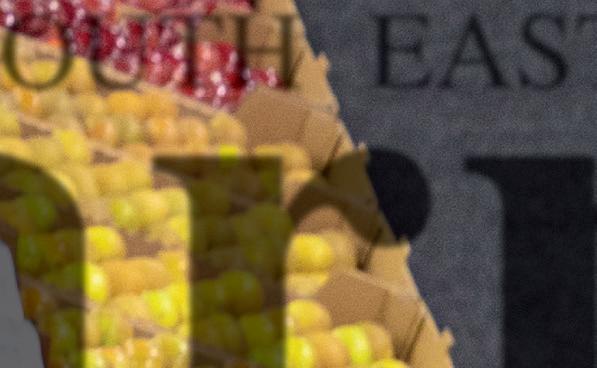











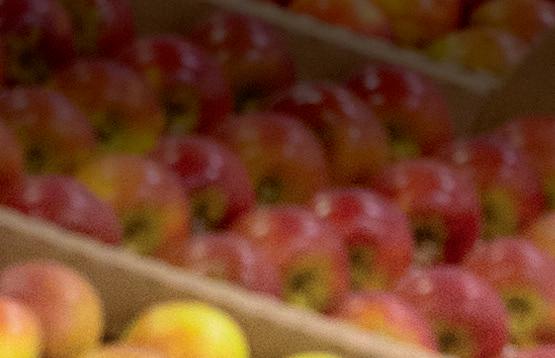

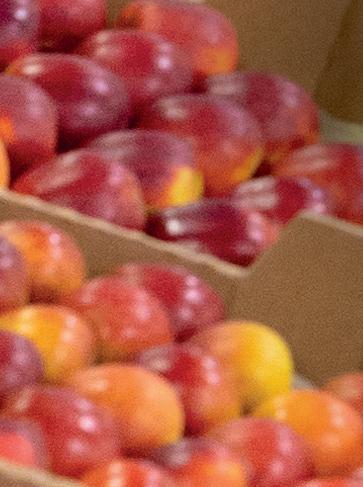



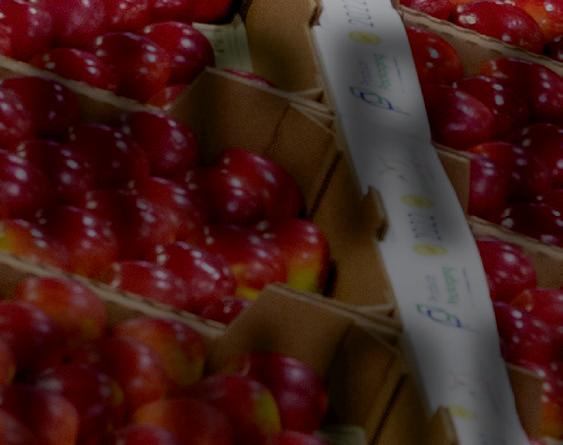







Farm business consultants with our roots in the South East • Farm business & estate management • Planning & development • Subsidies & grants • Land sales & acquisitions • Viticulture • Succession • Biodiversity net gain • Ecology • Natural capital • Residential and commercial property letting and management 01892 770339 www.c-l-m.co.uk Est 1982 PLOUGHING MATCHES Round up of the results NIGEL AKEHURST VISITS... a thriving mixed farming and food enterprises 90TH BIRTHDAY, SOUTH EAST FARMER TALKS TO SARAH CALCUTT, MOVING ON AFTER NEARLY 20 YEARS BEHIND THE SCENES. "AN INCREDIBLE HONOUR"
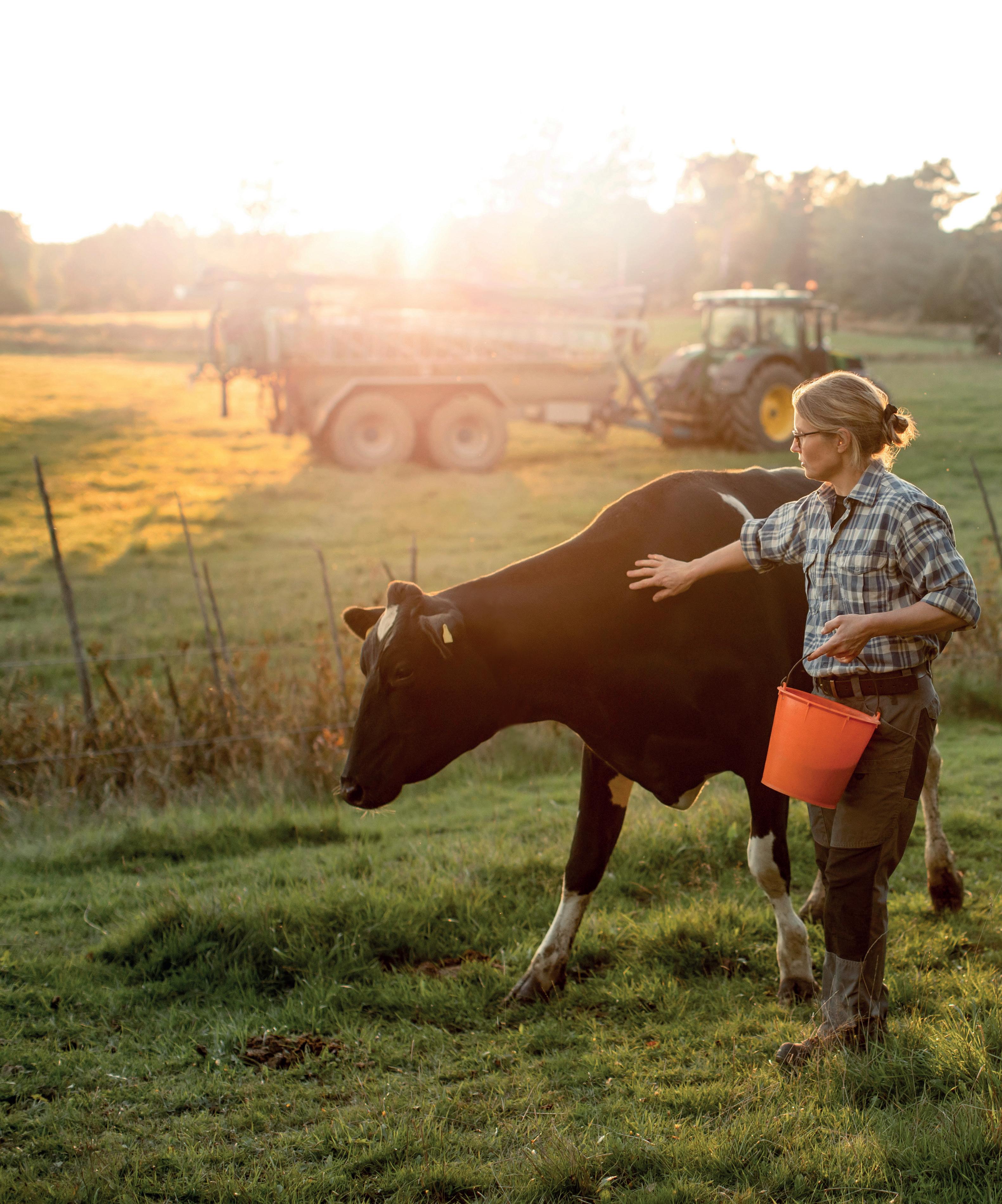
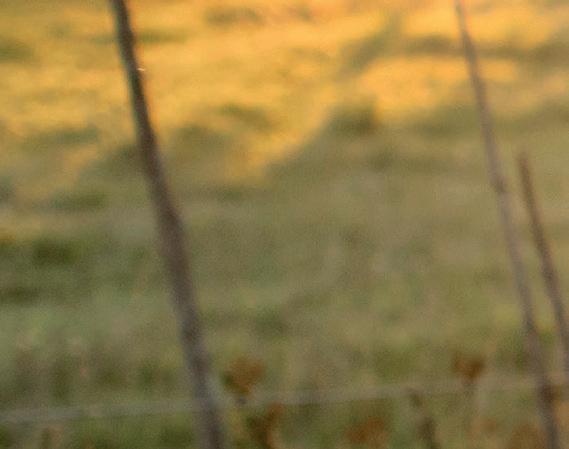





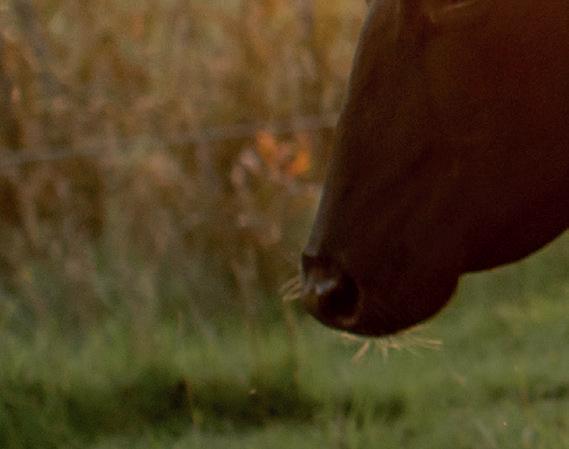





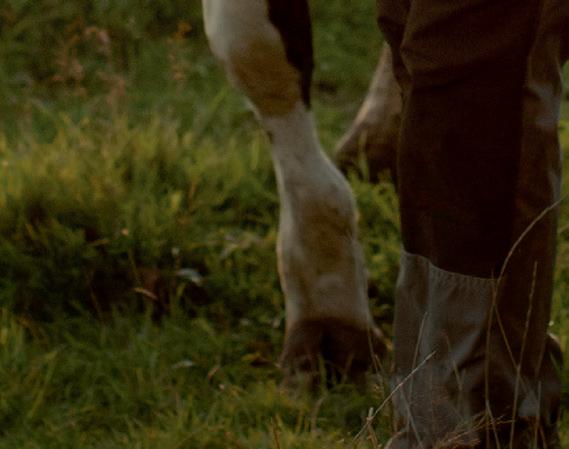


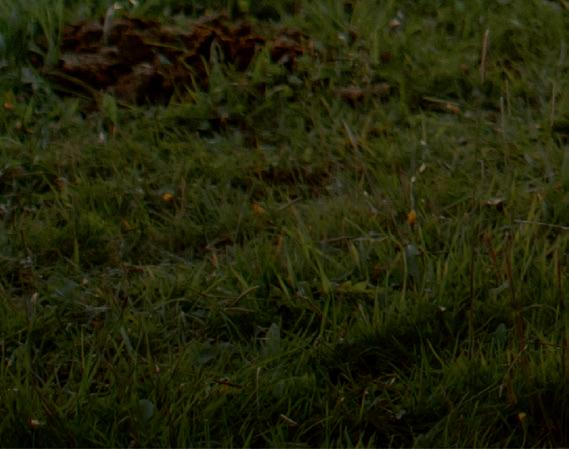
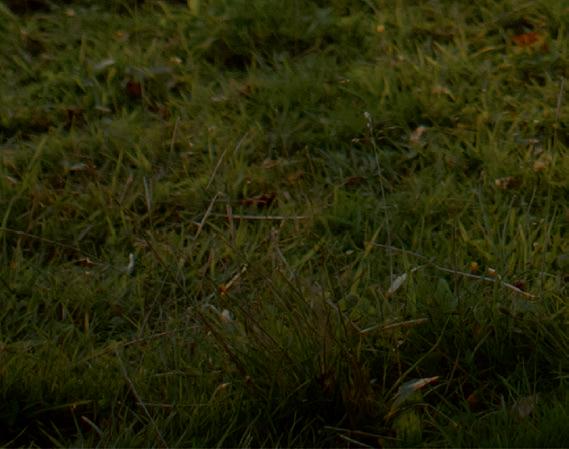
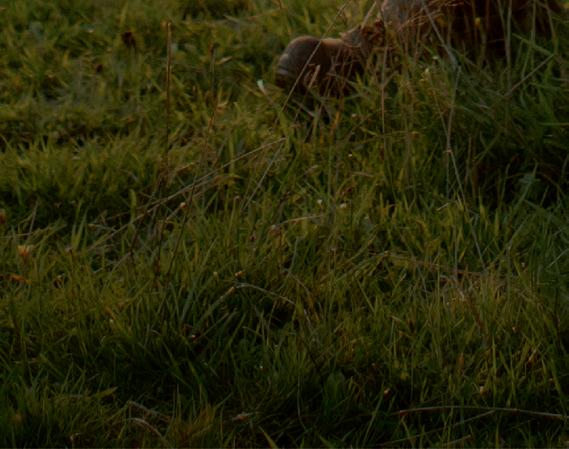








www.southeastfarmer.net
SOUTH EAST FARMER

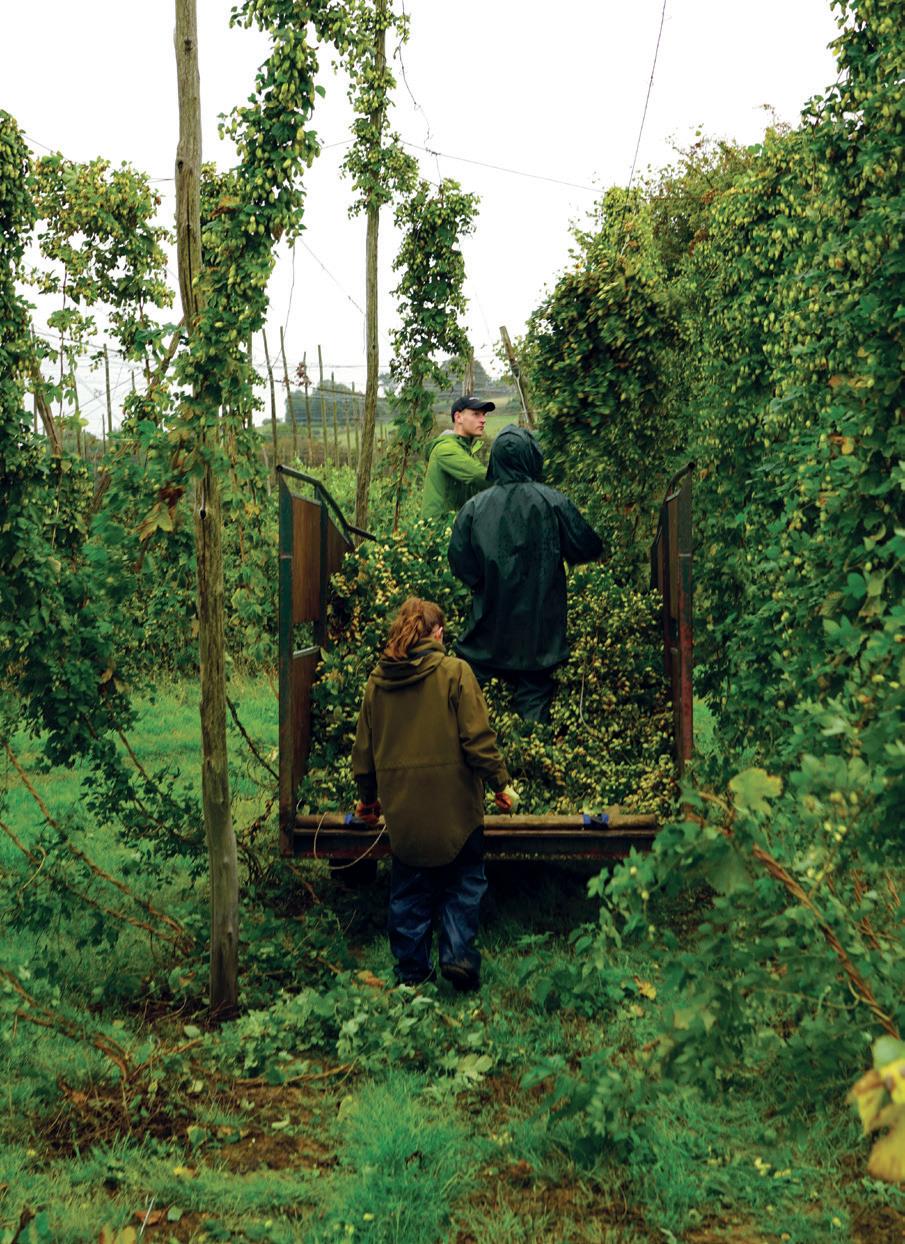
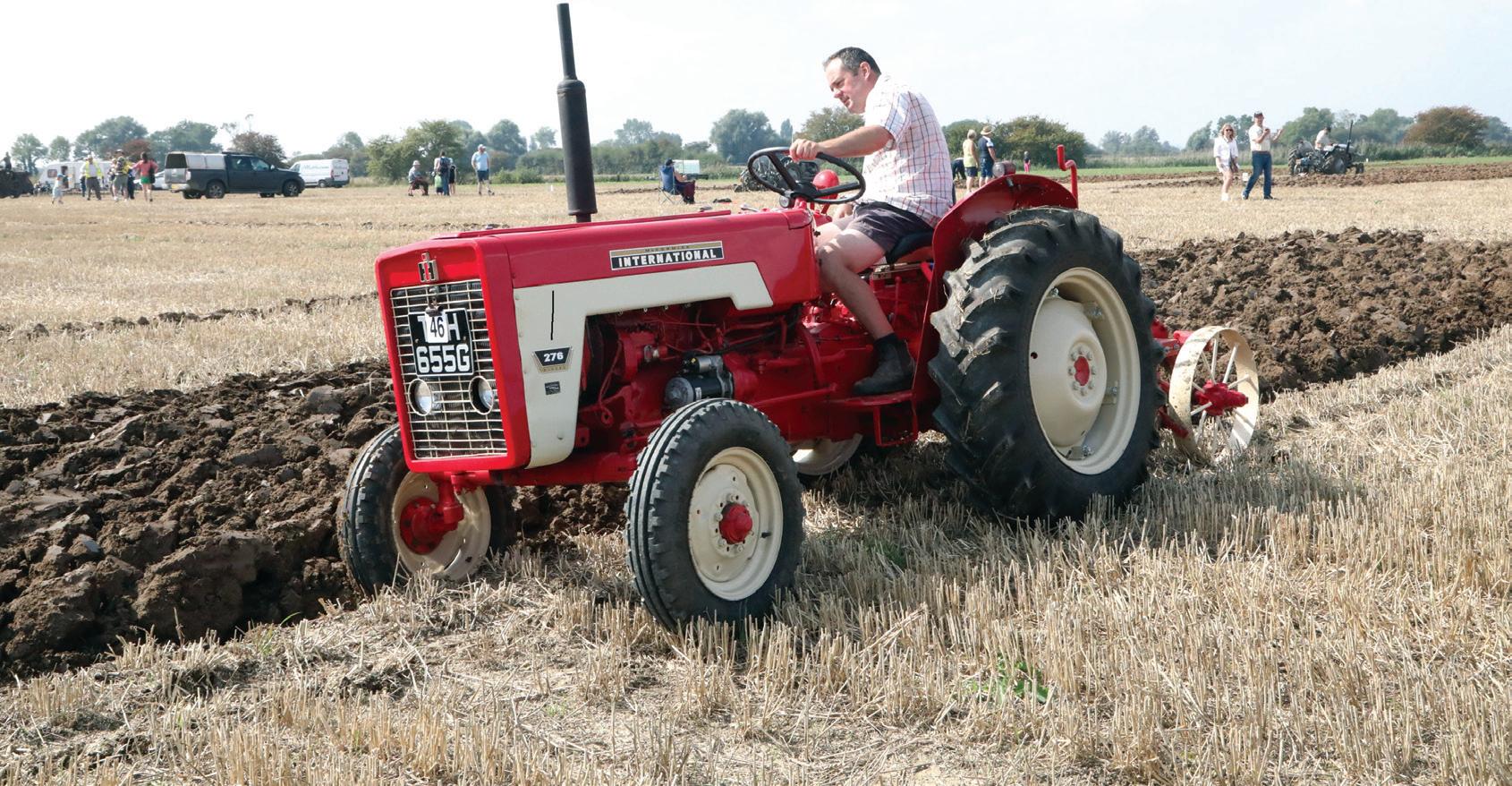
Kelsey Media, The Granary, Downs Court
Yalding Hill, Yalding, Maidstone, Kent, ME18 6AL 01959 541444
EDITORIAL
Editor: Malcolm Triggs
Email: sef.ed@kelsey.co.uk
Photography: Martin Apps, Countrywide Photographic
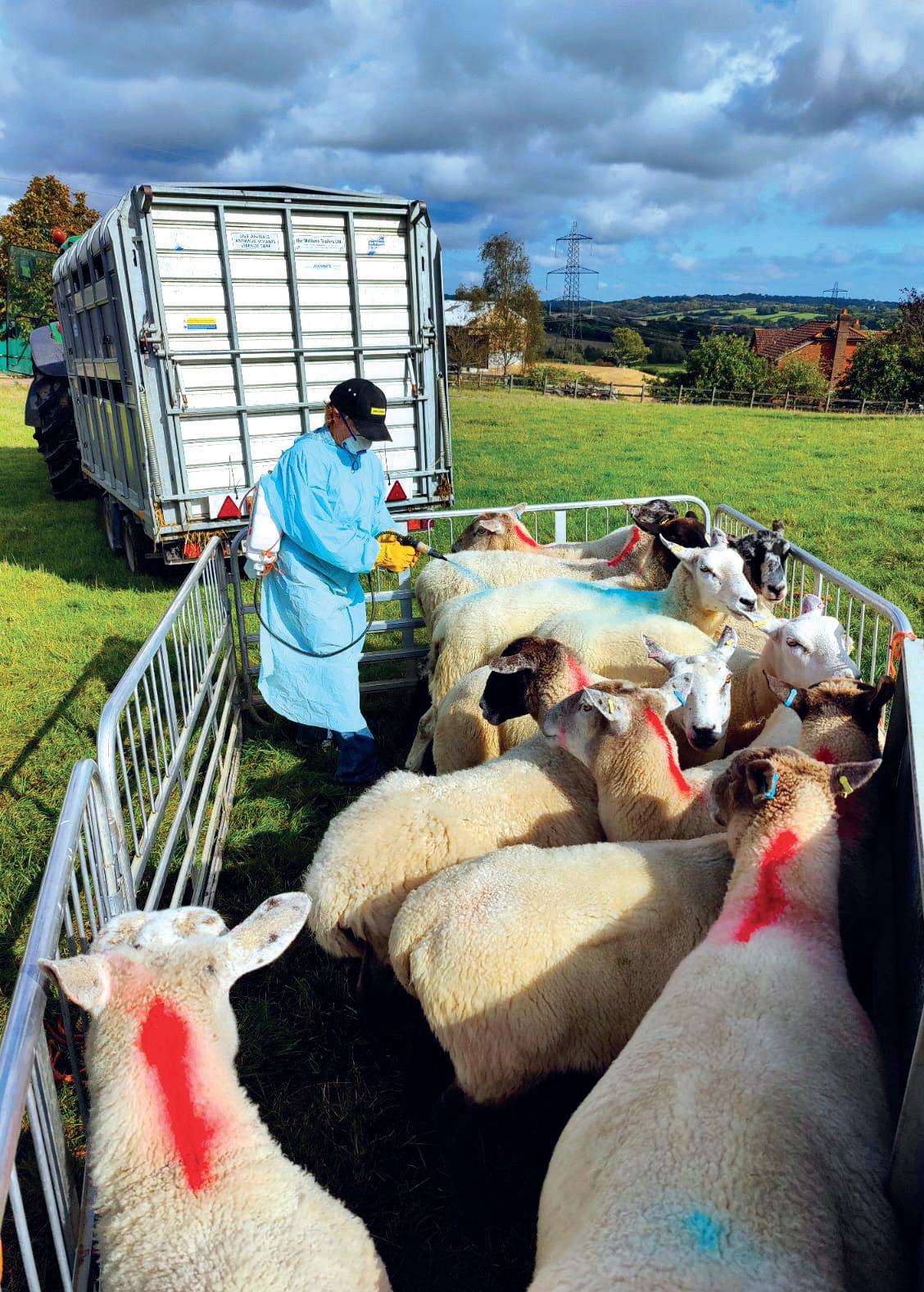
ADVERTISING & MARKETING
Jamie McGrorty 01303 233883 jamie.mcgrorty@kelsey.co.uk
GRAPHIC DESIGN
Jo Legg 07306 482166 jo.legg@flair-design.co.uk
MANAGEMENT
DIVISIONAL MANAGING DIRECTOR: Steve Kendall
PUBLISHER: Jamie McGrorty
RETAIL DIRECTOR: Steve Brown
SUBSCRIPTION MARKETING MANAGER: Claire Aspinall
PRINT PRODUCTION MANAGER: Kelly Orriss
DISTRIBUTION
Distribution in Great Britain: Seymour Distribution Limited
2 East Poultry Avenue, London
EC1A 9PT
Tel: 020 7429 4000 www.seymour.co.uk
Distribution in Northern Ireland and the Republic of Ireland:
Newspread
Tel: +353 23 886 3850
Kelsey Media 2023 © all rights reserved. Kelsey Media is a trading name of Kelsey Publishing Ltd. Reproduction in whole or in part is forbidden except with permission in writing from the publishers. Note to contributors: articles submitted for consideration by the editor must be the original work of the author and not previously published. Where photographs are included, which are not the property of the contributor, permission to reproduce them must have been obtained from the owner of the copyright. The editor cannot guarantee a personal response to all letters and emails received.
The views expressed in the magazine are not necessarily those of the Editor or the Publisher. Kelsey Publishing Ltd accepts no liability for products and services offered by third parties.
Kelsey Media takes your personal data very seriously.
For more information on our privacy policy, please visit https://www.kelsey.co.uk/privacy-policy/
If at any point you have any queries regarding Kelsey’s data policy you can email our Data Protection Officer at dpo@kelsey.co.uk www.kelsey.co.uk
Cover picture: Sarah Calcutt at the 2022 National Fruit Show
©Max MacGillivray, Beanstalk Media

18
47 NICK ADAMES
48 ALAN WEST
52 LEGAL
FEATURES
22 NATIONAL FRUIT SHOW PREVIEW
As it celebrates 90 years, this year’s show will be opened by Minette Batters, President of the National Farmers Union, who will give a keynote speech as well as touring the show and meeting with fruit growers and industry leaders.
36 PLOUGHING MATCH RESULTS
Results from across the region.
50 SUSSEX CATTLE SOCIETY
2023 herd competition.

NEWS & REPORTS 05 BNG introduction delayed. 06 Back British Farming Day. 07 SFI slippage. 08 Ukraine vehicle hub created in Kent. REGULARS 12 MONICA AKEHURST Impossible to prevent all perils. 18 NIGEL AKEHURST VISITS... L Wheeler & Sons at Parsonage Farm in Udimore, East Sussex, to meet the Wheeler family and learn more about their thriving mixed farming and food enterprises. 35 SARAH CALCUTT 41 STEPHEN CARR 43 ANITA HEAD 46 ADVICE FROM THE VET Autumn housing considerations. OCTOBER 2023 CONTENTS 12 36
®
55 LAND AND FARMS
Cockup or conspiracy? OPINION
Be careful what you wish for. As a football supporter (no names, no pack drill), it’s a comment I have often made when other fans call for a change of owner or manager, only to find the replacement no better than the man (inevitably, despite the current interest in women’s football) they want out.
Farmers, rightly, joined protests against Mayor of London Sadiq Khan’s plans to expand the Ultra Low Emission Zone (ULEZ) from the heart of the city, where it was arguably doing a worthwhile job, to urban areas that are, to all intents and purposes, in leafy Kent and Surrey.
They saw it as posing a threat to the livelihoods of contractors, Hadlow College students and equestrian types by adding £12.50 to the daily outgoings of anyone driving within the vastly (arguably unnecessarily) expanded zone in a non-compliant vehicle.
Few would argue with that, but as Stephen Carr points out in his column this month, the ULEZ row may just prompt a Government rethink across its whole ‘green’ agenda, and that wouldn’t be good news for farmers who are steadily losing Basic Payments and are yet to recoup the shortfall in new Environmental Land Management scheme (ELMS) cash.
Having picked up valuable votes at the Uxbridge and South Ruislip by-election on the back of the opposition to ULEZ, and pushed back a number of environmental targets, the industry needs to hope that Rishi Sunak and his team doesn’t chuck the baby out with the bathwater by rowing back on ELMS.
We can only hope the delay in launching the Single Farm Initiative was cockup rather than conspiracy, but it’s troubling to see that as South East Farmer went to press the Government announced a delay in the introduction of biodiversity net gain requirements for developers.
The difficulty for farmers is that, unlike the NHS, schools, roads and the like, agriculture is pretty much a niche topic when it comes to government decisions. While cuts to the NHS would provoke an outcry from Joe Public, slashing farming ‘subsidies’ (for want of a better word) would be given far fewer column inches in the noisy tabloids.
That’s one reason why raising public awareness should stay on every farmer’s agenda – and why the ploughing matches and agricultural shows that bring so much entertainment and education to a broad cross section of local people are so important. Farming is vital to the economy and plays a critical part in the rural community, and it’s vital to get that message across.
MALCOLM TRIGGS - EDITOR
EMAIL YOUR VIEWS, LETTERS OR OPINIONS TO: sef.ed@kelsey.co.uk or write to the address on page 3


CLA WELCOMES U-TURN
While Prime Minister Rishi Sunak has faced opposition from climate campaigners over his watering down of environmental policies, parts of his announcement were welcomed by the Country Land and Business Association (CLA).
The organisation was quick to point out that the Government's climbdown on banning new oil boilers and setting energy efficiency targets for landlords would be welcomed in rural areas.
Alongside the headline-grabbing announcement by Mr Sunak that the ban on sales of new petrol and diesel cars will not come into effect until 2035, he pushed back the ban on new fossil fuel heating for off-the-gasgrid homes to the same date – giving property owners an extra nine years’ grace.
He also scrapped the requirement on landlords to ensure all rental properties had an Energy Performance Certificate (EPC) of grade C or higher from 2025, something that will be seen as good news by landowners renting out farm properties as a business diversification.
The organisation heralded the announcement that the installation of new oil boilers will not be banned from 2026 and that landlords will no longer face fines if they fail to upgrade the energy efficiency of their properties as “a win for the CLA's lobbying efforts”.

Regional Director Tim Bamford said: “We are pleased that government has listened to our concerns about rural properties. Some of these proposals were simply unachievable and counterproductive. What we need now is a clear roadmap towards the new decarbonisation goals, with support for low-carbon heating innovation and take-up.
“Due to the nature of their construction, many rural properties cannot be suitably upgraded. Forcing many landlords to spend at least £10,000 on works with no guarantee such investment would actually improve carbon emissions risked damaging the supply of rural housing during a cost of living crisis; we know many good, responsible landlords have already sold up.
“The proposed 2026 ban on off-grid oil boilers would have affected one million, largely rural, households, targeting the highest-hanging fruit first as it would have come nearly a decade before a similar ban on new gas boilers. While heat pumps are an option for some, they are not feasible or cost-effective for all.”




4
More delay has again cast doubt over the Government’s commitment to the new environmental policies that are expected to help boost farm incomes following the ending of the Basic Payment Scheme.
As South East Farmer prepared to go to press, the Government announced that the introduction of biodiversity net gain (BNG) requirements, due to become a mandatory part of the planning system in England in November, had been delayed.
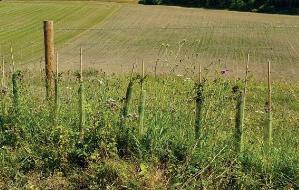
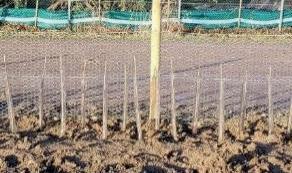
The slippage comes on the back of a delay in introducing the Sustainable Farming Initiative and government decisions to row back on other ‘green’ policies, including delaying the ban on buying new petrol and diesel engine cars, now not due to be introduced until 2035.
A government spokesman claimed that the requirement on developers to leave the land better off environmentally at the end of any scheme would still go ahead, commenting: "We are fully committed to biodiversity net gain, which will have benefits for people and nature. We will set out more details on implementation timings shortly."
When that happens, farmers are expected to benefit from developers who will be able to buy BNG credits that will fund ‘green’ initiatives elsewhere if they can’t create the required 10% net gain in biodiversity on site.
An early response to the delay came from Sarah Clark, partner at lawyers BDB Pitmans, who commented: “This isn’t unexpected as the question on my clients’ lips in recent weeks has been ‘will it happen?’ Landowners who were hoping to add their land to the new biodiversity site register will certainly be disappointed as this was due to be an important new income source for many of them.
“It does feel like a politically driven delay
given the tone of recent announcements from Number 10 on green matters. Until a new timetable for implementation is announced and the draft regulations are published, local authorities, developers and landowners alike are left with considerable uncertainty about when these significant changes will take effect.
“The pricing of statutory biodiversity credits, which can be bought from the Government as an option of last resort if BNG cannot be delivered, announced in the summer was considered high by many developers and they will unquestionably drive up the value of land on the biodiversity register.



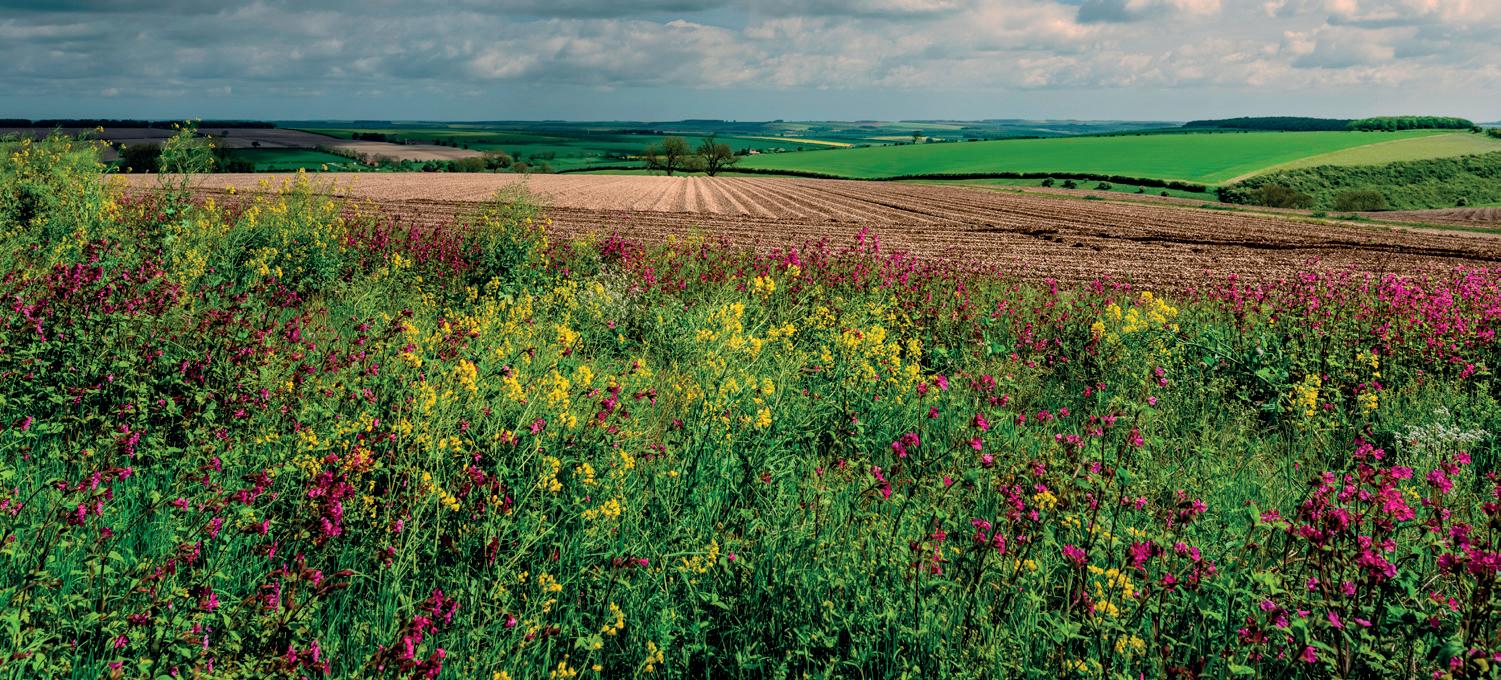
“More broadly and on the ‘levelling up’ agenda, this will have implications for landowners outside the South East who
would have had more opportunity to realise land value which has typically been lower due to grade and location.
“Some local authorities have planning policies in place which already require BNG but there are still a lot of projects which don’t deliver on it. Planning applications which have been made already won’t be affected by today’s news and there will be some developers who will be pleased about the delay as they can get applications planned for submission later this year into the system before the new requirements take effect.”
WWW.SOUTHEASTFARMER.NET | OCTOBER 2023 5 TO ADVERTISE CALL 01303 233883 NEWS
South East Farmer will have more coverage of the delay in the November issue. Write to the editor – sef.ed@kelsey.co.uk
BNG INTRODUCTION DELAYED King and Co The Tree Nursery Ltd. • 01376 340469 • sales@kingco.co.uk • www.kingco.co.uk ORDER BARE ROOT HEDGING NOW FROM KING & CO Contact us for: • Good stocks of UK provenance native plants, available from October to March. • Accessories including bio spirals, bamboo canes, tree shelters, tree strapping. • Hedging packs that include plants, spirals, and canes • Advice, approximate costs, and fast nationwide delivery. • 40 years’ experience in bare root planting King and Co The Tree Nursery Ltd. • 01376 340469 • sales@kingco.co.uk • www.kingco.co.uk ORDER BARE ROOT HEDGING NOW FROM KING & CO Contact us for: • Good stocks of UK provenance native plants, available from October to March. • Accessories including bio spirals, bamboo canes, tree shelters, tree stakes and strapping. • Hedging packs that include plants, spirals, and canes • Advice, approximate costs, and fast nationwide delivery. • 40 years’ experience in bare root planting CONTACT US FOR: • Good stocks of UK provenance native plants, available from October to March. • Accessories including bio spirals, bamboo canes, tree shelters, tree stakes and strapping. • Hedging packs that include plants, spirals, and canes. • Advice, approximate costs, and fast nationwide delivery. • 40 years’ experience in bare root planting. King and Co The Tree Nursery Ltd. • 01376 340469 • sales@kingco.co.uk • www.kingco.co.uk ORDER BARE ROOT HEDGING NOW FROM KING & CO
The 8th annual Back British Farming Day in September was billed as “a celebration and appreciation of a job ranked by the British public as one of the most important and well-respected professions, second only to nursing”.
That description was based on the results of a survey of 2,000 adults carried out by the NFU earlier this year which asked people to rate ten occupations and showed farmers finishing just behind nurses in popularity – an improvement on their 2022 fourth place.
The survey also revealed 87% support for increasing self-sufficiency in UK food production, up from 80% last year.
The results prompted NFU President Minette Batters to declare: “Britain’s farmers and growers are truly inspirational, and it is heart-warming to know the public really values the work we do in producing fantastic homegrown food.
“This food underpins the British food and farming sector and is worth more than £100 billion to the national economy, all while protecting and enhancing our iconic landscapes.
“As these survey results show, the public really appreciates what Britain’s farmers and growers
BACK BRITISH FARMING DAY
do day-in, day-out. 90% of the public feel farming is important to the UK economy, while 81% agree British farms should grow as much food as they can to provide national food security.”
Alongside the celebrations, the NFU took its message to Westminster, where a breakfast reception at the House of Commons gave the union the chance to lobby scores of MPs and stress the message that 87% of survey respondents support increasing self-sufficiency.

Ms Batters pointed out: “This is a clear message that the public backs our calls for government to prioritise homegrown food production and legislate to ensure the UK’s selfsufficiency does not drop below its current level of 60%.

“We’ve had everything thrown at us over the
Can We Really Save The Planet? (From a Farming Perspective)
This year’s Farming Conference will once again be held at the South of England Showground, Selsfield Road, Ardingly, West Sussex RH17 6TL or can be attended online. Find out more and register for your free place, in person or online, at seas.org.uk/ farming-conference

Wednesday 1st November 6-10pm (Online 7-9pm)

past 18 months – soaring production costs, global market instability caused by the ongoing war in Ukraine, extreme bouts of weather and significant delays to farm payments. The empty shelves we’ve seen this year speak for themselves; we need to be producing more of our food here.
“Now is the time to ensure those policies are in place to support the production of quality, climate friendly, homegrown food. As we’ve said before, government has statutory targets for the environment – why can’t food production have the same status?
“Investing in domestic food production means we can increase our productivity, create more jobs and deliver more for the economy and for the environment.”
CHAIR Charlotte Smith
Presenter on BBC Radio 4’s Farming Today
Sue Pritchard

CEO of Food, Farming and Countryside Commission, an independent charity set up to explore practical and radical solutions to the climate, nature, health and economic crises of our time and organic farmer with a focus on farming for conservation




Phil Jarvis
Chair of Albanwise Farming and Environment which manages land and estates in Norfolk and Yorkshire including sugar beet, cereals, oil seed rape, maize and potato arable rotation and wetland, woodland, hedgerow, peatland and agri-environment habitats
OCTOBER 2023 | WWW.SOUTHEASTFARMER.NET 6 NEWS
WITH THANKS TO OUR GENEROUS SPONSORS MEDIA SPONSOR
book your free place today! Register now at seas.org.uk @SouthEngShows #FarmingConference
DEFRA has responded to concerns raised about delays to the launch of the Sustainable Farming Initiative (SFI) by agreeing that farmers able to sign up in October will be paid 25% of the money this year once their claims have been agreed.
The NFU urged government to fill the gap in the finances of farmers after DEFRA announced a delay in the launch of the SFI, the first tier of the long-awaited Environmental Land Management scheme (ELMS).
With ELMS due to replace the fastdisappearing Basic Payment Scheme support many farmers have relied on to balance the books, the NFU had described the slippage in the launch date from August to mid-September as “unacceptable”.
After the NFU called on ministers to “do the right thing”, Secretary of State Therese Coffey recognised the issue by announcing that farmers would be given some cash before the end of December.

Farmers have been able to sign up from 18 September, but the slippage from the expected August roll-out had raised fears before the Environment Secretary’s intervention that even those who signed up on day one would be unlikely to see any money in their accounts before January 2024.
NFU President Minnette Batters said: “Today’s announcement will mean those farmers that are able to apply for SFI in October are being promised a percentage of their first payments before the end of the year.
“While this announcement will provide welcome progress, it doesn’t go far enough to
SFI SLIPPAGE
deliver on the promises made countless times that the replacement to BPS would be open to all, less bureaucratic and offer a profitable and seamless transition from old to the new. What we have today, after years in the making, is still a million miles away.
“Under the current plans the SFI is open to the few and not the majority. The lack of budget transparency in DEFRA makes it almost impossible to know where the BPS money, initially earmarked for SFI in 2023-24, has gone.”
The NFU used Back British Farming Day to warn that more still needed to be done on the key issue of farm support, with many farmers, the union says, facing a cash-flow crisis.
Ms Batters said: “While we have been working hard to prepare for changes to the essential support schemes that support farming and environmental management, delays in the rollout of the new scheme, coupled with reductions in the current scheme, mean most farmers have been unable to access the new SFI while facing significant holes in their finances from the withdrawal of BPS.”
Speaking at the Back British Farming Day reception in Parliament, the Secretary of State also unveiled a number of new measures.
Positive news for British farmers included support for 'a buy British button' in online supermarket shopping, a new grant
scheme for rooftop solar panel installation, confirmation that farmers enrolling in new environmental support schemes will be able to use them to meet public procurement standards and a new £4m fund to help upgrade small abattoirs to improve animal welfare, business efficiency and productivity.
GIVE YOURSELF A RASE
Candidates for Fellowship of the Royal Agricultural Society of England (RASE) will be able to nominate themselves following a change in the rules.
A membership shake-up announced by the society includes the option for anyone in the industry to nominate him or her self as a Fellow grade member.
CEO David Grint explained that Fellow applications will be reviewed by the Membership Council to ensure that the applicant demonstrates excellence in their area of work and a contribution to the
practical, commercial or scientific progression
of agriculture.
“It is important to us that we move away from the quiet tap on the shoulder to an inclusive system where anyone can be recognised for their contributions to agriculture,” he said. “I would encourage anyone who believes they meet the membership criteria to apply.”
In addition to the Fellow membership, the society now has student, associate and full membership options, plus corporate membership, which is open to any
organisation operating within the agricultural industry.
“RASE remains committed to the progression of knowledge within the agricultural community,” said Mr. Grint. “Agriculture is in the midst of huge changes, as the industry transitions to the use of practices and technologies that enable the levels of productivity required to sustain the human population, the profitability needed for farming businesses to thrive and the environmental benefits required to reverse both the biodiversity and climate crises.”
WWW.SOUTHEASTFARMER.NET | OCTOBER 2023 7 TO ADVERTISE CALL 01303 233883 NEWS
Photo: www.flickr.com ©UK Government
Therese Coffey
Principal and owner of Kent Mitsubishi and SsangYong dealership Humphries and Parks Marcus Joy has offered Ukrainian and British charities a ‘hub’ where they can drop vehicles before they go off to Dover and on to Ukraine.

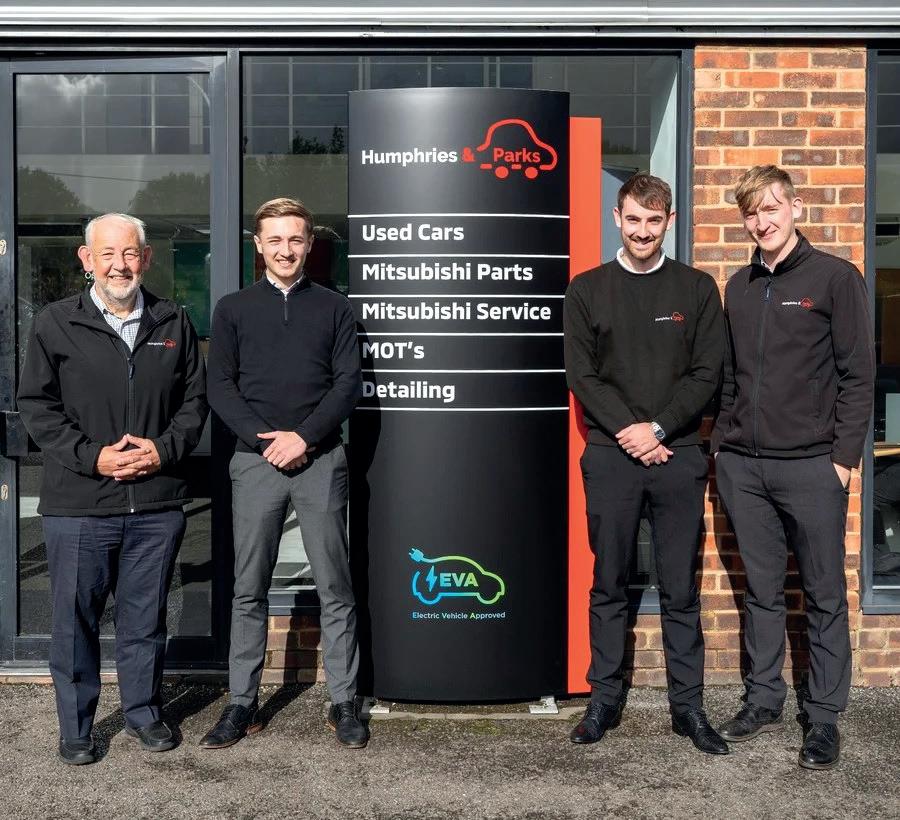
He met Ukrainian and British representatives of Car4Ukraine at the Kent County Show in July, where the organisation had a trade stand.
“It was a chance meeting but we stayed in touch. I had an idea that is already proving to be useful. We have parking capacity here in West Malling that is just at the confluence of the M20 and M26, south-east of London and pointing towards Calais.
“One of the issues of volunteer groups has been where to put these vehicles before they get exported, particularly if they have faults or are without MOTs and require trailering, and this location is an obvious solution.”




Car4Ukraine is a grassroots Ukrainian civilian organisation that has so far delivered 298 pick-up trucks to the Ukrainian armed forces where they perform a variety of tasks.
The first two trucks were deposited at Marcus’ Kent base by another volunteer,
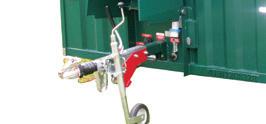




UKRAINE VEHICLE HUB CREATED IN KENT



Irishman Patrick McIntyre, on 30 August. British Car4Ukraine volunteer Richard Lofthouse explained: “It’s a valuable contribution by Marcus and it’s also a great fit for this broader endeavour. Mitsubishi is a revered brand in this context. The fantastically reliable and hardy L200 pick-up truck is one of the greatest vehicles of all time.
“Of over a thousand vehicles of this type that have gone over to Ukraine from the UK since the invasion last February, perhaps half have been L200s. SsangYongs have been less evident because they are much newer. We are only targeting older trucks, some of them 10 to 20 years old and still fantastic.”
The offer is open to all volunteer and charity groups, approximately a dozen of which have been active in the UK over the past year. Some focus on ambulances and others on SUVs, pick-ups and even civilian cars. The main







requirement is that they are 4x4 and diesel, offering another opportunity given the recent expansion of London Mayor Sadiq Khan’s Ultra Low Emission Zone out to the M25.

OCTOBER 2023 | WWW.SOUTHEASTFARMER.NET 8 NEWS
• Toilets & Showers for hire • Large range of Temporary canteens, stores & welfare units • E uent Tank Emptying • Events also catered for with chillers & toilets FOUR JAYS GROUP Tel: 01622 843135 Fax: 01622 844410 enquiries@fourjays.co.uk www.fourjays.co.uk HIRE SPECIALISTS ACROSS THE SOUTH EAST 15th November 2023 at Newbury Showground Register today www.southerncountiesmachineryshow.co.uk FREE ENTRY –REGISTER NOW Southern Counties Brought to you by: Auction Sponsor:
From Left: Marcus Joy and his three sons who all work in the business, Bruno, Sam and Soren Kingsland-Joy
FIGHTING FOR ITS LIFE
Can the controversial ULEZ scheme have a Ukrainian silver lining?
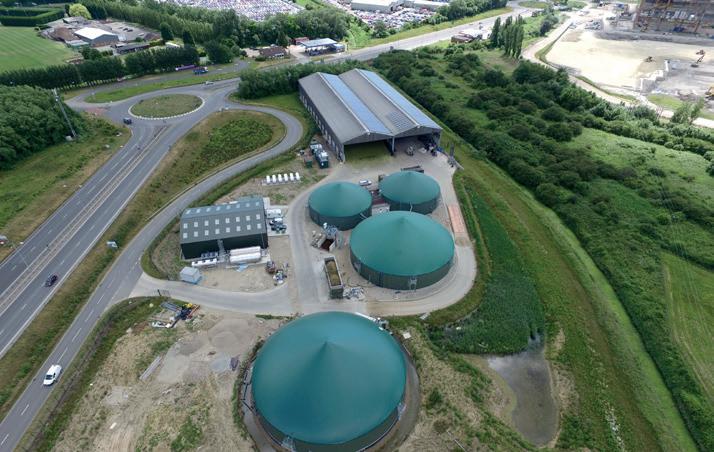 By
By
guest
writer Richard Lofthouse
The great thing about the farming community is how supportive it has been towards Ukraine. I think this is partly because Ukraine is a great farming nation, but it’s more than that. British farmers have given up their old pick-up trucks in some considerable numbers, whether as donations or on favourable terms, to donors and charities who have driven them over to Ukraine, myself included.
I’ve also got a strong notion, based on conversations with farmers, that they understand the nature of war and are more robust in supporting a nation fighting for its life – indeed, can see that Russia has been buzzing our airspace for years and one day they might try something, given that we are supplying ‘lethal aid’ to Ukraine.

I’m pretty sure that most members of the public can’t conceive of that or have even thought about it, yet almost everyone can trace their family trees back to D-Day participants or the Western Front of World War One. It’s not so very long ago.

And then there is London’s Ultra Low Emissions Zone (ULEZ). The Mayor won all the legal objections thrown in his path and the scheme expanded out to the M25 on 29 August.
Now you may be violently against it, or lukewarm, or in favour. But one thing I have noticed is that whether pro-ULEZ or anti-ULEZ, what all sides seem to agree on is the absolute tragedy of scrapping perfectly roadworthy cars.

The ULEZ scrappage scheme, currently set at £160 million and with an average pay-out of £2,000, is set to scrap tens of thousands of vehicles over the coming months, at a time when Ukraine is fighting for its life and desperately needs thousands of vehicles. Surely some of those vehicles could go to Ukraine in a heroic final act, bearing in mind that on the frontline they have an average life expectancy of three weeks?
I have been researching this subject. It’s not difficult in principle. The Transport for Londonadministered scheme would identify diesel 4x4s at the application stage. The donor would be offered an ‘export to Ukraine’ box to tick. The donor gets their scrappage pay-out as they would from taking the vehicle to an approved end-of-life facility, except that he or she would take the vehicle to our hub before it gets taken to Ukraine. They would either forego the £100 to £200 the scrapyard pays them or the money would be found by those of us who have spent thousands buying 4x4s at market rates. As things stand, it is actually worse than just a missed opportunity, or as my fellow volunteer Roger Lord put it recently: “I find it extraordinary that the efforts being made from every corner of Britain and Ireland to get 4x4s and trucks to Ukraine for humanitarian purposes are competing with a government organisation to acquire those same vehicles…”


Translation: in an already tight market, Transport for London is taking tens of thousands of additional vehicles out of the
system, driving up used prices and making it even harder for volunteers to buy them. Meanwhile I understand that the scrapyards are doing pretty well out of it, and that one man’s scrap is another’s shipping container full of valuable engines and other parts for export.
Anyway, as you may already know, Ukraine desperately needs diesel wheels and 4x4 diesel wheels, whether they’re old Chelsea tractors or ex-farm pick-up trucks with a million miles on the clock, lots of dents and barn yard detritus to savour.
And it is a numbers game. Charities have mustered in the region of 1,400 4x4s since the invasion – a remarkable effort I might add –but TfL will scrap many more than that. Like Sherman tanks, Ukraine just needs more, and quickly.
If you have one to spare, consider contacting Car4Ukraine or any of the several groups that have helped in recent months, such as Pickups for Peace, which is mid-Sussex-based and has done great work.
And please jot a note directly to the Conservative Chair of the London Assembly Andrew Boff (andrew.boff@london.gov.uk) and ask him to hold the Mayor of London to account and show that he really does care about Ukrainians.
Richard is a volunteer for Car4Ukraine as well as magazine editor for the National Hedgelaying Society.
WWW.SOUTHEASTFARMER.NET | OCTOBER 2023 9 TO ADVERTISE CALL 01303 233883 A PERSONAL VIEW GUEST COLUMN
Farm Waste Recycling Experts Providing waste solutions to Agriculture, Horticulture & Equestrian Collection & Recycling of... All types of Farm Plastics Workshop Wastes Veterinary Waste Waste Oil Waste Tyres Redundant Agri chemicals WasteTyresCardboard Tel 01264 736733 ian.kitson@kitsonrecycling.co.uk www.kitsonrecycling.co.uk No Membership fees Contact 01227 721437 Malcolm Cook M: 07543 801328 E: malcolm@torran.biz John Rodgers E: john@torran.biz The Old Tractor Shed, Preston Garden Centre, Preston, Kent CT3 1ED Commercial Buildings Groundworks Property Development A professional service at a competitive price TORRAN CONSTRUCTION LIMITED






OCTOBER 2023 | WWW.SOUTHEASTFARMER.NET Calculate your earning potential Simply scan the QR code to get started No hassle to join | No binding commitment | No initial service fee www.agreena.com Sign-up for 2024 harvest season is now open!
numbers
Agreena’s soil carbon programme has now paid out more than €6,000,000 in just 2 years. With over 1,000,000 hectares contracted across 17 markets, our UK farmers earn at least €36 per certificate for their climate-friendly practices. You’re only 1 step away from calculating your earnings. KENT'S AGRICULTURAL AND MACHINERY SHOW BOOK YOUR STAND FROM JUST £120 +VAT! 6MARCH 2024 NEW Demo Opportunities
EMAIL TRADESTANDS@KENTSHOWGROUND.CO.UK TO RECEIVE YOUR TRADE STAND INFORMATION PACK
Our
speak for themselves
Networking Trade Stands
THE DIARY OF A 53 YEAR-OLD SHEEP STUDY GROUP
Ted Sclater looks back on the origins and growth of a group that’s still going strong more than half a century after it was founded.


To readers of a certain vintage, the introduction in the early 1960s of ICI’s prilled nitrogen, Nitram, was pivotal to the growing of grass, in particular, following the move to introduce grazing ewes into an arable rotation for profit and soil health.
The late Dick Powell was in charge of Nitram promotion from Jealott’s Hill Experimental Husbandry Farm (EHF), then ICI's base in the south of England. In 1970 farmers producing sheep as prime lambs were invited to join what was then known as the ICI Sheep Study Group. At that time the fleece value would cover ewe depreciation!
As a measure of the sheep breeds and systems in the UK at that time, the Blue Faced Leicester crossed onto the Swaledale produced the Northern Mule. Hybrid vigour from this blend made for higher lambing percentages. Polled Dorset x Mule became popular for early ovulation together using Suffolk, the Kent Romney and Dorset Down, and were represented by group members from Cornwall to Herefordshire and from Norfolk to Kent. Memorable visits to 13 European countries as well as most counties throughout the UK and Ireland made for much thought-provoking debate.
When ICI stepped down from sponsorship in 1984, four senior members decided to continue the group as the Grosvenor Sheep Group (named after the hotel where the meeting was held), with Tony Cave-Penney as our organiser. His contacts allowed the group to continue, often making two visits a year in spring and autumn.
There have been many highlights. In 1973 Andrew Madel MRCVS showed scanning on a very simple screen. In 1981 at Barcelona Vet School on a trip led by the director, Tim Treacher MRCVS, we saw a first for the scanning for back fat and conformation, now an important tool for ram breeders. Eastern European countries, as new
members of the EU, made for fascinating visits, with large flocks of sheep and goats being milked for cheese making by hand, or with a simple portable frame away up in the mountains.
We visited Italy, together with Spain and Portugal, where prime lamb production was a priority. We were introduced to the lucrative market for suckler lambs for the Easter trade. In Portugal in 1997 we saw legumes and grass cover cropping grazed by sheep on droughtstricken arable areas. We often saw sheep guard dogs protecting flocks from wolves and lynx, particularly in Eastern Europe.
In Greece we were very well hosted but expected to eat at least one whole lamb between the group of 18 each day! The harvest was well on its way in Greece as we journeyed to altitude with a view of nearby Mount Olympus. As spring turned to summer so the milk sheep grazed towards the better grasses at the summit. Donkeys on auto pilot returned the milk to the village dairy many metres below.
We visited East Germany within months of the Berlin Wall coming down. This was probably the most fascinating of visits, taking in farms of over 10,000ha with hundreds of tractors but only half of them usable as the other half had been cannibalised for spares.
Not all our visits have been wholly sheep orientated. The Hungarian National Horse Stud was a highlight, together with a serious herd of red deer based on Warnham bloodlines from Sussex.
The highland of Le Midi, France, in 1972 was fascinating. We witnessed whole body scanners being used by humans during the day and animals at night. Many farms with vineyards had problems getting workers back to their duties after they had consumed their lunchtime wine allocation!
We had a week long instructive visit to Brussels to meet and talk to bureaucrats, directors of departments, politicians and
others in a bid to understand the workings of the EU. Over the years we developed strong working relations with the New Zealand Meat Board, ADAS, experimental farms and other organisations. At its prime the Group kept 24,700 ewes, with followers.
Tony Cave-Penney retired recently after 38 years planning and executing visits seemingly effortlessly. The group secretary now is Bob Blanden, who has extensive sheep experience, still travels the country scanning ewes and blade shearing and has held many senior roles within the National Sheep Association.
The Grosvenor Sheep Group has thrived with autumn and spring visits and we hope the group will continue to do so. Doubtless there will be a resurgence in the sheep industry in response to the trend of cover-cropping when, and if, systemic chemicals are frowned upon.
This spring we travelled around Kent, including visits to Merrick's Wildlife Reserve on Sheppey, Stuart Wood at Teynham, The Wool Marketing Board depot at Ashford, John Coultrip at Stalisfield and the Langrish family on the Romney Marsh with their excellent flock of registered Kent Romneys. Trips to Caithness, The Isle of Man, The Lake District, Northumberland, Wales and Ireland, amongst other places, have all featured in visits over the past 53 years.
WWW.SOUTHEASTFARMER.NET | OCTOBER 2023 11 TO ADVERTISE CALL 01303 233883 NEWS
Ted Sclater
Threats in response to a simple question do not help to form a conducive working relationship. Last year our TB test was in early October, rather than our usual November/December slot. This change caused us to lose grazing time on the marshes and we had to house the cattle earlier, which comes at a cost. The test was clear. Prior to this year’s official notification, we discovered we’d be expected to test early again, so I phoned the Animal and Plant Health Agency (APHA) to request we revert to our original testing times.
I was informed I’d have to talk to the duty vet, who would phone me back within four hours. This I did. The vet also sent me an email, explaining that my case would have to be made to the ‘overdue team, exceptions panel’ which reluctantly agreed that we could delay the test but stipulated that it had to be completed by 9/11/2023; TB restrictions would, however, apply to our herd during October. I was happy with the improved timing.
In all their communications, APHA included warnings that we might incur reductions of
IMPOSSIBLE TO PREVENT ALL PERILS
BPS and other agri-environmental scheme payments. This experience hasn’t encouraged me to rush into signing up for any government schemes. As a farmer I want the autonomy to do the best for my land and animals. Primarily I want to produce food and care for the environment, aims that should go together. I don’t like being dictated to by government bodies that sometimes fail to understand muddy boots on the ground situations.
Thank goodness the challenging weather during August was replaced (as soon as the kids went back to school) by September sunshine. My grandsons enjoyed their annual trip to the harvest field, where they checked out Bernard Hague’s Claas Trion 650, which is on tracks.
Bernard has been driving combines since the 1960s. He started his harvesting experience
bagging up corn on an International harvester trailed behind a tractor. The first harvester he bought was a Massey 500 with a 10ft header; no cabs in those days. Today he uses a seven metre header and enjoys the comforts of a cab, modern technology and a computer which prints out detailed analysis.
I guess the days of scratching about in the straw behind the combine to see how much corn is lost or bragging about tons per acre is long gone, because you can’t argue with a computer; or can you?
In the sheep world the high humidity helped to increase the early breakdown of fly cover. We experienced fly strike in lambs treated with Clik Extra after ten weeks, when it’s supposed to protect them for 19 weeks. We’ve had to apply Ectofly, which appears to be working although I’d rather use a more environmentally friendly product.
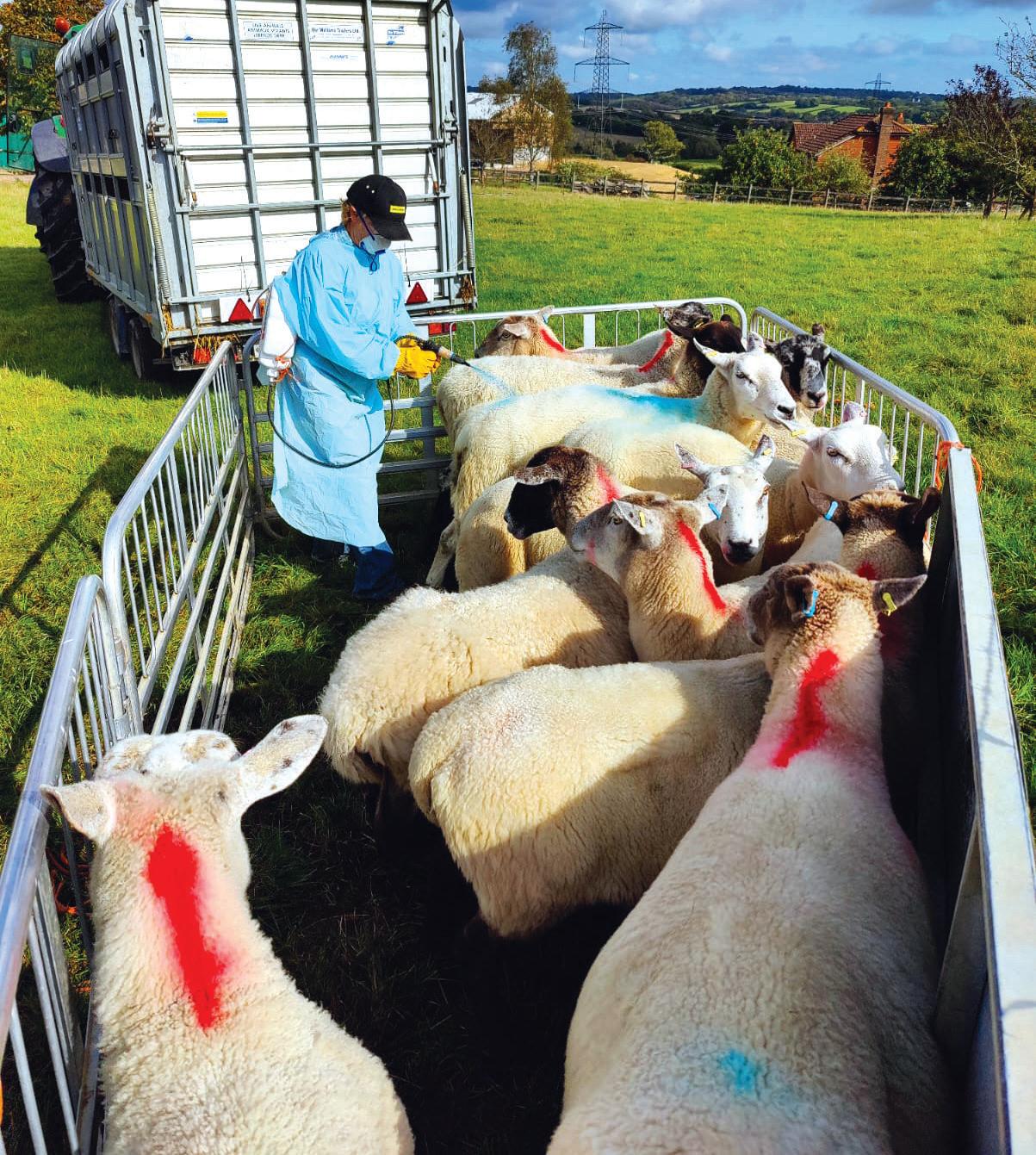
Checking the stock today, I was gutted to find that a very shapely Charolais lamb not far off being finished had managed to get the bottom line of poly wire electric fence twisted around its neck, strangling itself. It beggars belief as to exactly how it managed to get itself into such a predicament; the fencer was going and the line was still up. It made me feel sad. As stock keepers we do our best to protect our animals, but it’s impossible to prevent all perils.
I heard of a recent incident where a threephase electric cable fell onto a cattle electric fence, increasing the voltage; subsequently any cows touching that fence died. The farmer was checking the fence (unaware the line was down). Luckily he stayed on his quad bike but still received “a bit of a belt”. The fact that he didn’t get off his bike probably saved his life.
Several years ago, in a high wind, the pole that has our transformer attached to it snapped off at ground level. There was a large bang and our electricity was no more. The disruption was minimised as UK Power Networks supplied us with massive generators while they rectified the situation.
We all rely on electricity these days, and most farmers have power lines crossing their land; we need to stay vigilant about the
OCTOBER 2023 | WWW.SOUTHEASTFARMER.NET 12
MONICA AKEHURST AT THE KITCHEN TABLE
Applying fly cover, wearing protection because otherwise it affects me
Checking out teeth status
My helpers
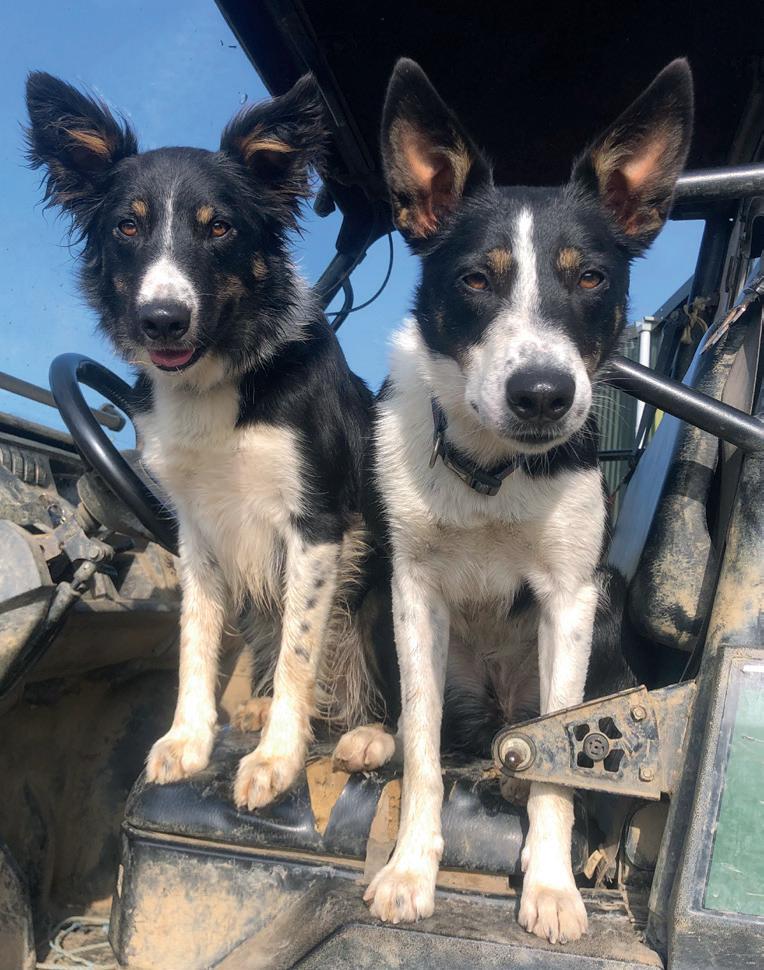
Weaned calves, back on pasture
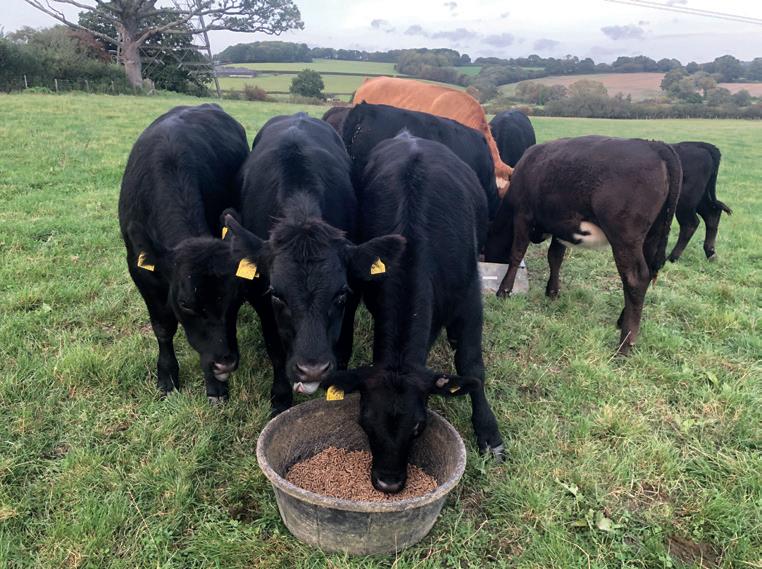
Grandsons visiting the harvest field
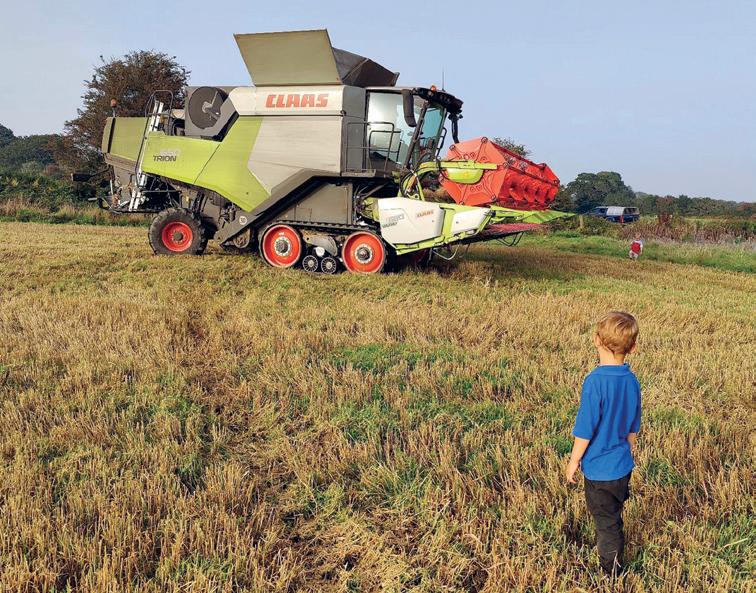

The gate that’s awaiting repair
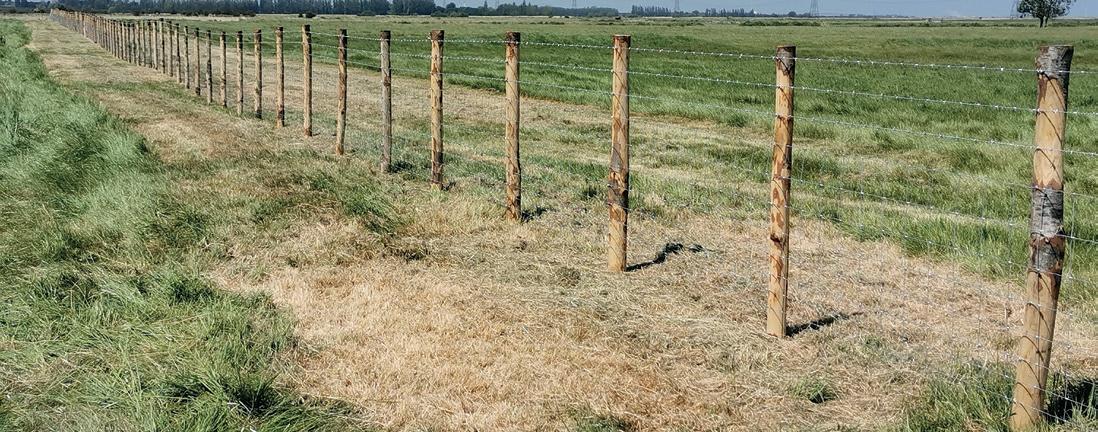
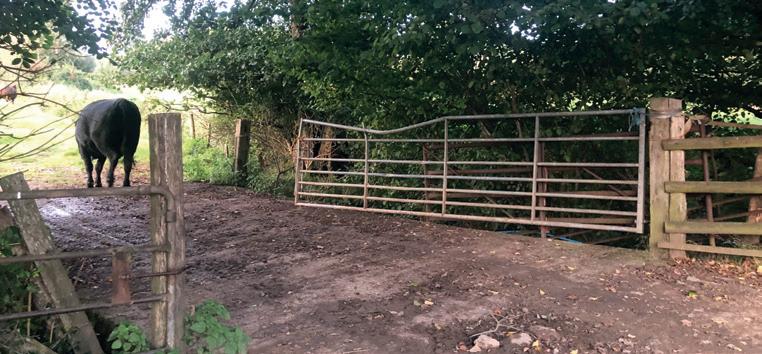
safety issues it poses. Electricity doesn’t come without risk; stay safe.




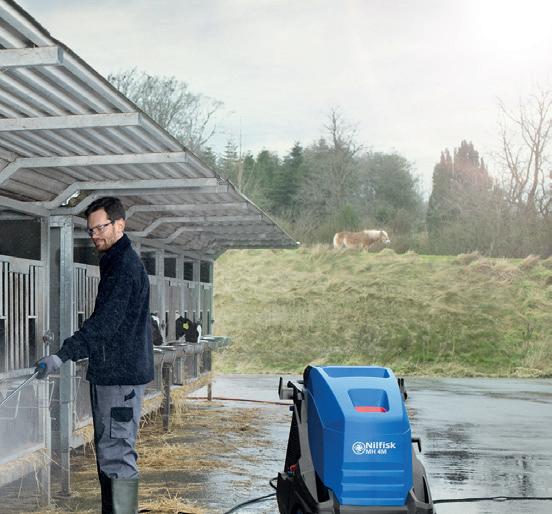


Last week we weaned a bunch of calves that are penned in a shed while they get acclimatised. Their mothers were returned to their usual field, which is accessed via a concrete bridge over a small stream. The first morning I went to check them one cow had crossed the stream. I simply opened the gate and Brie held the others back while I persuaded the cow to rejoin her cohort.
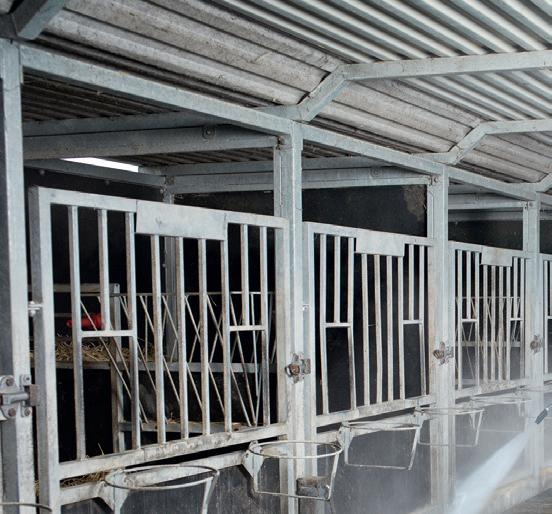
The second day a different cow had crossed the bridge and jumped the gate, dislodging the top rail and knocking out the top hinge. The

Oops! Not what you want when you’re moving bales
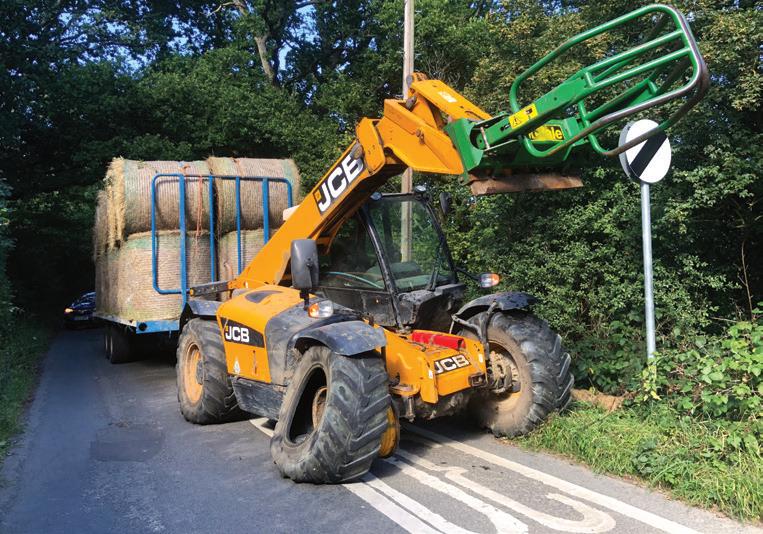
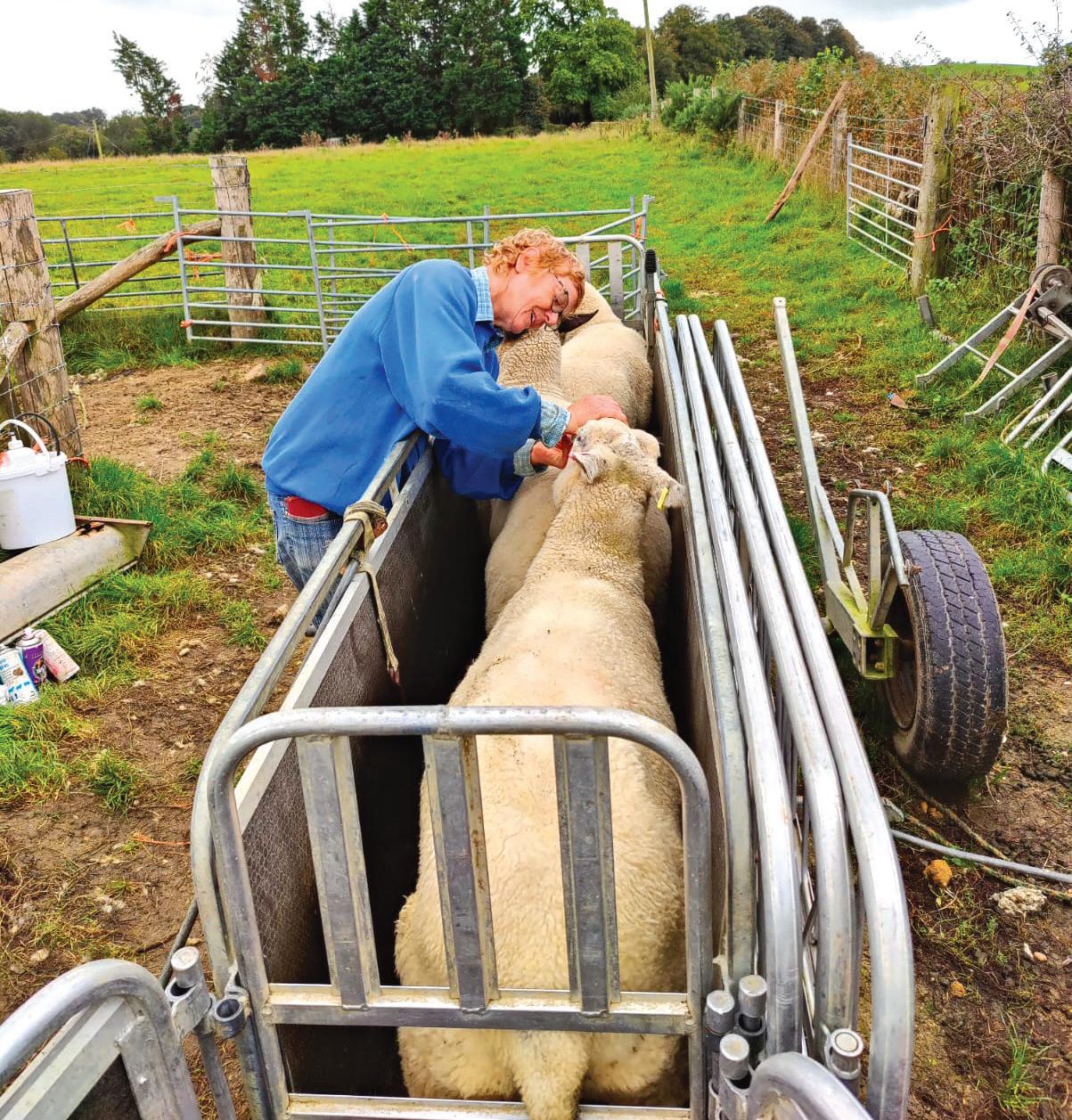
gate is now a pig to open and close. (Where did that expression come from?) I rather like pigs, but I’m not keen on operating this gate. This cow crossed two fields and placed herself in the shed next to the calves. She goes out to graze but returns frequently to check on her offspring. I was touched by her determined vigilance and everyone seemed content with this arrangement, so I let her stay. My sympathy, however, has limits. While I was attending to the calves, this cow nonchalantly lifted a half bag of cattle cake destined for our finishing cattle out of the back of Shrek (ATV), tipped it on the ground and calmly started munching on it.
Tomorrow she will return to her mates. Nigel had a tricky situation when heading home with the JCB pulling a load of hay. He suffered a sudden puncture in the front wheel, causing the tyre to jump off the rim. His load was blocking the road, but he couldn’t move without doing damage. We received a phone call, but by the time we arrived some neighbourly farmers were already helping to sort the problem and unblock the road. I’m grateful for their timely assistance. Next day the puncture was fixed, enabling us to finish getting the winter forage home. The race to get things done before winter is here.
WWW.SOUTHEASTFARMER.NET | OCTOBER 2023 13 TO ADVERTISE CALL 01303 233883
George wondering if combine driving is the way to go!
T: 01622 831 781 | M: 07710 179 600 enquiries@woodchurchfencing.co.uk www.woodchurchfencing.co.uk SUPPLY & INSTALL
in agricultural,
and equestrian fencing and gates Top quality materials. Top quality service.
01825
Unit
SALES SERVICE HIRE
Specialists
deer
We
are a leading supplier and an approved repair centre With 50 years trading in the cleaning industry. With our strong ties and long term relationship with the leading manufacturers
705777
4, 72 Bell Lane Uckfield, East Sussex TN22 1QL enquiries@pressureclean.co.uk
ATTEMPT TO STOP THE SPREAD
Dear Sir,
This week, the intensive badger cull starts again. Many areas across the South East, such as Hampshire, Berkshire, Buckinghamshire and Oxfordshire, have seen thousands of badgers culled in an attempt to stop the spread of bovine tuberculosis (bTB), which causes such suffering to cattle and farmers.
By the end of this year, a quarter of a million badgers could have been killed across England since the cull started in 2013, representing around half of Britain’s badger population.
And yet the main cause of the spread of bTB is cattle-to-cattle infection. The way to stop this disease is through effective cattle testing and vaccination, coupled with better biosecurity, for instance around cattle movements.
Scotland and Wales do not cull badgers and have been more successful in dealing with bTB than England. The badger cull is a wasteful and costly distraction which is also a national wildlife and ecological tragedy, and will never eradicate bTB - the science is clear on that.
Badgers are not even tested for bTB before or after shooting, and the most recent government study in Northern Ireland showed cattle were 800 times more likely to pass bTB to badgers than the other way around. Badgers are being scapegoated and blamed instead of the Government getting on with an effective cattle testing and cattle vaccination programme.
The Government now plans to consult on extending badger culling past 2025. I would urge members of the farming community to consider why they would support this wasteful and destructive policy, which continues to fail their industry and waste their own money.
England is already one of the most wildlife-depleted countries on Earth. Intrinsic to our native wildlife, badgers have been here for 250,000 years.
We all want to reduce bTB as quickly as possible, and that should be the Government’s focus, not the costly distraction of badger culling.
Peter Hambly, Executive Director, Badger Trust
FREE EXPOSURE?
Dear Sir,
I feel I have to respond to Mike Kettlewell (Radical Change, September issue). Do you normally let every crank or weirdo have free exposure in your magazine? Next the man will be informing us that he has spotted Elvis in Chipping Norton!
You can never replicate the flavour of well-hung British beef. The highly skilled farmers and butchers of this supreme country produce the best product in the world.
Jeremy Brown, Somerton, Oxon
The editor replies: A brief look at Mike’s CV would suggest that your description of him is wide of the mark. It will be interesting to look back on this exchange in ten years’ time.
BACK ON THE SHELVES
Dear sir,
I hope you will allow me to alert your readers to the fact that stock challenges earlier in the year have now been resolved, meaning that ewes can now be vaccinated with Cevac Chlamydia®.
Vets are urging sheep farmers who are tupping in late October to vaccinate their flocks with the EAE (enzootic abortion of ewes) vaccine to help protect the health and welfare of their ewes and prevent abortions during lambing.
Please note:
• The vaccine can be used no later than four weeks before the rams go in
• Shearlings (one year plus) and older can be vaccinated within four months before tupping
• Ewe lambs can be vaccinated with Cevac Chlamydia from five months of age.
While we realise that the temporary delay of the vaccine has been inconvenient to our valued sheep farmers, we would like to thank them for their patience and support during this challenging time.
The vaccine supply is now available in the UK for the latter end of the season. Farmers tupping later in October should vaccinate their flocks to protect their ewes from this devastating disease.
To order Cevac Chlamydia or for information on EAE and vaccination, please contact your vet. For further information go to www.enzooticabortion.co.uk
Roy Geary, Regional Director for Northern Europe, Ceva Animal Health
‘SOCIAL CARE FARMING’ IS THRIVING
Dear sir,
I thought your readers might like to know that ‘social care farming’ as a method of farm diversification is thriving, with over 70 enterprises now in operation across the South East region.
For those that are unfamiliar with the concept, social care farming is the therapeutic, social and educational use of farming practices for anybody aged nine to 90 who has mild or moderate additional needs of any kind. There are five-minute guides to the subject for both farmer and parent/teacher at www.farmbuddies.org.uk
Participants usually visit the farm one day a week and farmers enjoy sharing the farm and seeing the remarkable benefits the idea delivers, often in just 12 weeks. The extra income also supports the farms involved, which are usually between five and 500 acres in size.
On 25 October the first conference in the South East for those offering this service and other interested parties will be held at Bore Place near Sevenoaks. The conference programme and joining information is at bit.ly/3R2iSja
Stephen Sellers, South East Regional Network Co-ordinator FarmBuddies, Petersfield, Hampshire
OCTOBER 2023 | WWW.SOUTHEASTFARMER.NET 14 LETTERS SEND YOUR VIEWS OR COMMENTS: SEF.ED@KELSEY.CO.UK twitter @SOUTHEASTFARMER facebook-square SOUTH EAST FARMER
INAUGURAL ON FARM RAM SALE
James Hamilton's first on-farm ram sale at Hole Farm, East Sussex, saw more than 150 potential buyers for Suffolk and Durno rams, with 50 more joining the sale online via MartEye.
James had 26 high index Suffolk shearling rams forward from his Houdshall Suffolk flock. Half of the Suffolks were in the top 1% of the breed on index, with the other half in the top 5%. Also on sale was an exceptional run of 25 Durno Hybrid rams from breeders Logie Durno.
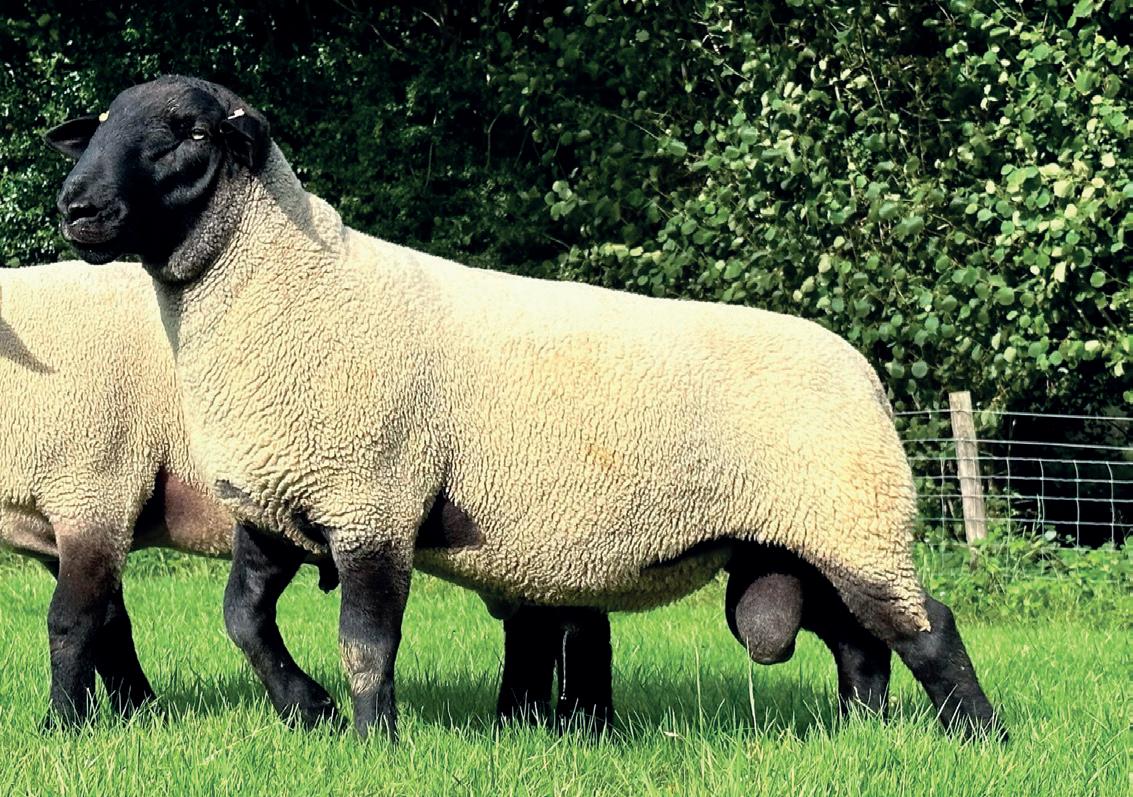
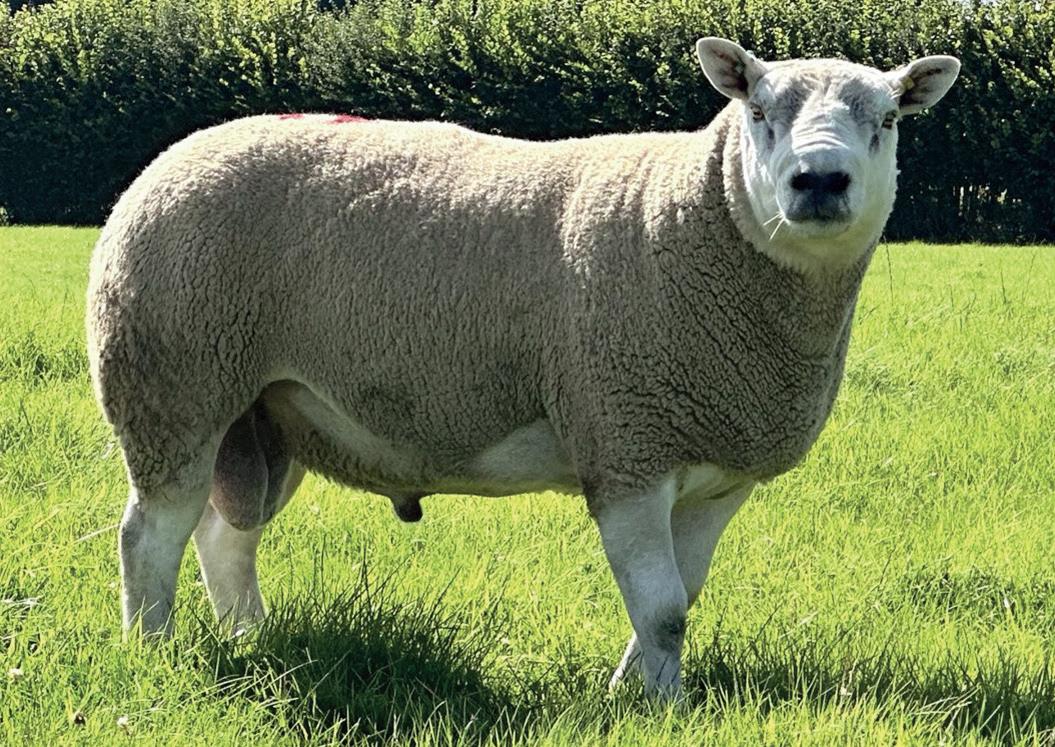
The sale, conducted by South East Marts in conjunction with guest auctioneer Scott Lambie of Livestock Marketing (Borders) Ltd, resulted in 100% clearance, with 26 Suffolks selling to an average of £1,032 and the Durno rams knocked down for an average price of £933.
Durno rams have been in demand in the South East for a number of years, with Durno-sired lambs regularly topping the local markets.
The top priced Suffolk, with an impressive index of 353, was lot 4, which was sold for £3,500 to Andrew Elliot and will join his Blackhaugh Suffolk flock. Second highest price was lot 5 at £1,500, sold to John Coultrip, Wingfield Farm. Fuggle rams, another Suffolk ram breeder, purchased lot 12 for £1,100.
The Durno rams met a level trade, reflecting the quality on offer from Logie Durno. The top priced Durno shearling was lot 31, knocked down at £1,200 to Ben Foy. This was a seriously powerful, tight-coated shearling with a tremendous carcass.
Join
Three course dinner with English sparkling wine reception

Presentation of the 2023 Bonanza Prize sponsored by Graham Hill

1st November 2023

£75 per person
Venue: Clive Emson building
Celebration drinks reception: 6.30pm

Carriages: Midnight
Dress code: Black tie preferred
Hosted by: Nigel Barden
Sponsored by
















WWW.SOUTHEASTFARMER.NET | OCTOBER 2023 15 TO ADVERTISE CALL 01303 233883 NEWS
Lot 4 Lot 31 TheNationalFruitShow nationalfruitshow nationalfruitshow @nationalfruit
us for our 90th
celebration
anniversary
dinner
Email to book tickets: info@nationalfruitshow.org.uk www.nationalfruitshow.org.uk
WELCOME BACK
September may see summer come to an end, but for many students it marks the start of another exciting academic year full of possibilities.
That has been very much the case at Hadlow, which has been welcoming new and returning students to the beautiful surroundings of our large managed estate set in over 265 acres of prime arable land.

As Kent’s only rural and land-based college, Hadlow has students studying a huge range of courses in the sector, and all benefit from the stunning location and the cutting-edge facilities. So, what can you study at Hadlow? Let’s take a quick look…
COURSES AT HADLOW COLLEGE
Agricultural Engineering
Agricultural engineering is for you if you want to learn about the latest developments in farm machinery and practices. You will be involved in every aspect of engineering, from fabrication to diagnostics, work on all types of agricultural machinery and take part in restoration projects.

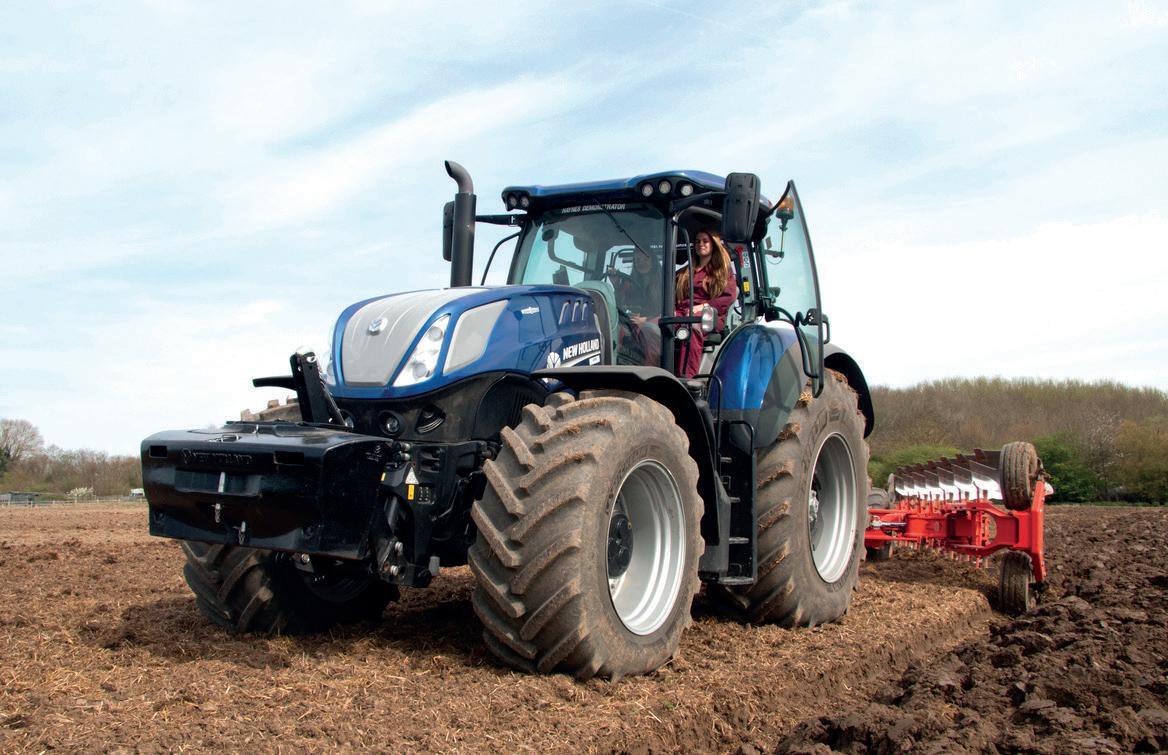
Agriculture
Our agriculture courses allow you to gain practical experience working with Hadlow’s beef herd, as well as working on machinery and in our workshop facilities. Not only that, you will be involved in all aspects of the farming year, including lambing, shearing, ploughing and harvest.
Animal Management
As an animal management student, you will learn all about animal husbandry and management from planning animal collections and designing and maintaining enclosures to day-to-day animal care within an animal collection, all in our custom-built animal management unit.
Equine Management
Equine management students can gain hands-on practical experience as well as ride and compete quality horses. This includes learning about horse husbandry, handling, grooming, behaviour and welfare and more. Our extensive facilities include two indoor arenas, a large outdoor arena and stabling for 64 horses.
Fisheries Management
If you are interested in learning fishery management skills, knowledge of fish biology and health, disease identification and treatment, management of aquatic environments and developing your angling knowledge and skills then you should consider a fisheries management course. All are taught in our specialist fisheries facilities.
Floristry
Our floristry courses help you develop both your floristry practical skills and your knowledge of design theory. We have floristry studios and design spaces, a cutting garden and opportunities to design and display floristry installations in our beautiful Broadview Gardens.
Horticulture
A wide range of subjects is covered in our horticulture courses, and each will help you grow your knowledge of scientific principles, maintenance and propagation techniques. Learn in cutting edge facilities that include a concept orchard and vineyard that showcases the latest technology in sustainable horticulture.
In addition, carpentry and joinery courses are run in our dedicated workshop and we have a fully functioning garage, diagnostic centre and workshop where we run motor vehicle courses.
HADLOW COLLEGE UNIVERSITY CENTRE
You can experience university life at our friendly Hadlow campus as we also offer several higher education courses and have residential accommodation for all students. All our higher education courses include strong job-related elements to help you develop your practical skills and we have excellent links with the industry to give you the best chance of securing a job in your favoured industry when you leave.
WHAT TO FIND OUT MORE?
If you are interested in studying at Hadlow College and want to find out more, come along to our next open morning which runs from 10am to 1pm on Saturday 4 November. Here you will be able to get a taste for the College, experience our facilities and speak to current staff and students.
OCTOBER 2023 | WWW.SOUTHEASTFARMER.NET 16 EDUCATION
Visit www.hadlow.ac.uk/events to register or find out more or call 01732 850551
A TRADITIONAL DAY OUT
I breathed a massive sigh of relief on the evening of 2 September. After much preparation, a fair amount of DEFRAinduced stress and a thwarted bid for freedom by a bull in the grand parade, my first Alresford Show as livestock chairman had passed by without major incident.
Cattle numbers were up slightly on 2022 and sheep numbers were as healthy as ever. Some sheep classes may need splitting. It was mentioned to me that if the rare breed ewe lamb class attracts 26 entries, then perhaps the breeds aren’t that rare after all!
The goat tent ran smoothly as normal and Dave the pig man was happier after the pig pen pins were located hiding at the bottom of a wheelie bin by the toilets. My own entry of ewes stood out a mile, and indeed a month later, back in their field, still do. Newmer Farm’s first ever foray into the world of sheep bloom dipping was slightly over enthusiastic, and the resulting colour of the ewes made them look like they were off on a hen do to Blackpool. We will go easier on the Tango next year.
In a former life as an agricultural sales rep for a dairy chemical manufacturer, I attended many shows all over the South of England. Although all shows are different, they have one thing in common; they rely on a community that pulls together to produce a special event once a year. Each local show is the ‘Big Day Out’ for that area and, largely speaking, everyone is in a great mood as a result. I found good moods tended to lead to good sales.
Although it is a fun, traditional day out, it is important to remember how much business is done on the day. In the livestock area, breeding animals were viewed and purchased, appointments to view other animals on farm were made and meetings set up to discuss grazing agreements.
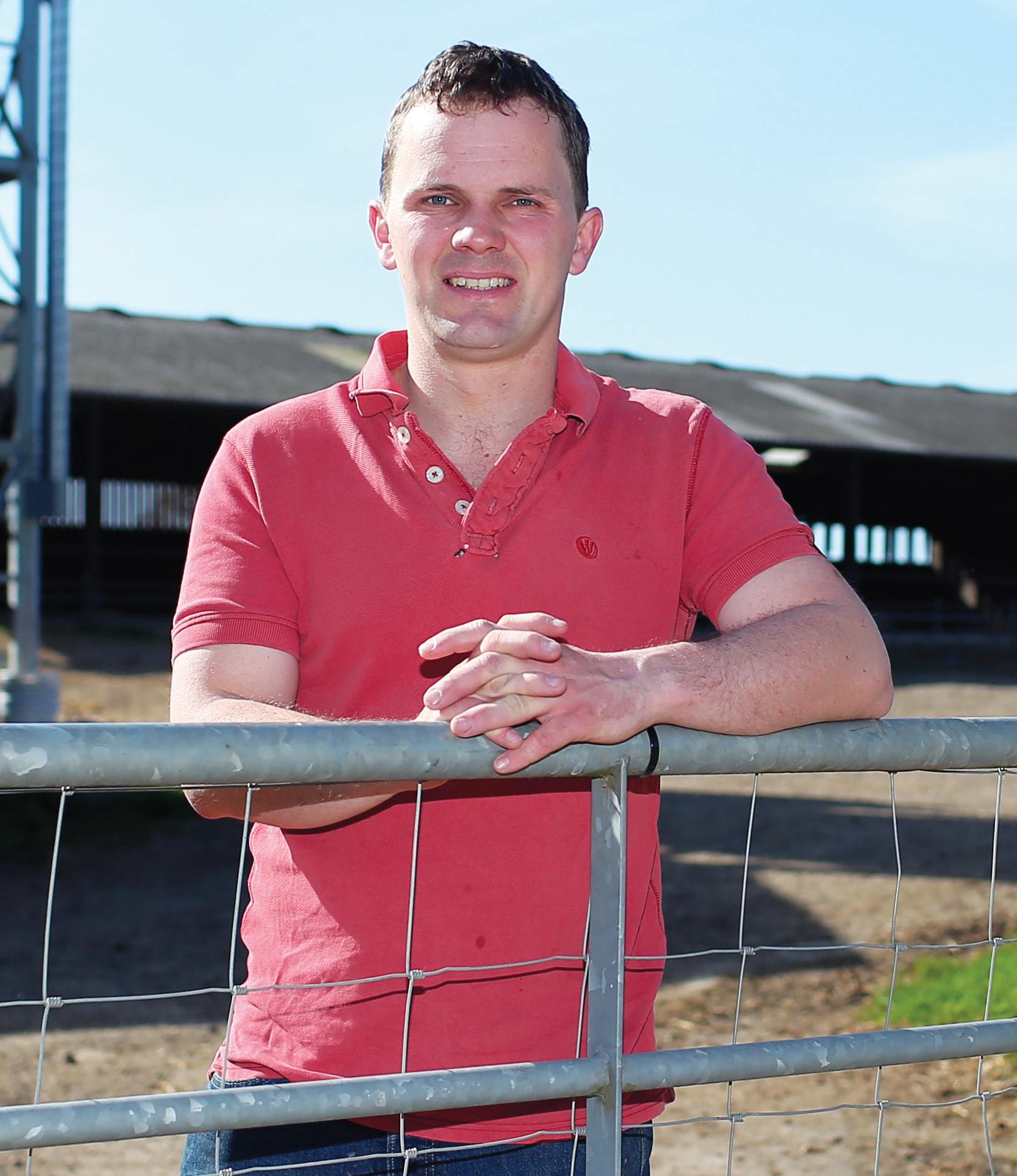
At the machinery end of the showground, dealer’s reps were busy shaking hands on deals, arranging on-farm demos and of course handing out the odd beer. The commercial side of an agricultural show is really key, as firms and farmers must see profit in attending. Showcasing agriculture to the public is wonderful, but shows must meet
the needs of current agricultural businesses so that the public gets to see the displays of top quality machinery and livestock.
On farm we have been busy selling finished lambs that have been growing well on the herbal leys over August and September. We also sold a couple of hundred forward store lambs at Wilton Sheep Fair. I quite often sell lambs in the 35kg to 38kg weight category as stores at this time of year. These lambs often don’t quite finish off grass as the sward quality declines in autumn, but if they were kept for the turnips after Christmas they would often turn into the very large hoggets for which there is sometimes only a limited market.
Any smaller lambs I keep to graze the forage crops. Wilton Fair, held on a grass field north of Salisbury, is a good social event as well as a place to view and market stock. I couldn’t quite help lifting an eyebrow at times round the ring, so the lorry was filled back up with breeding ewes for the return journey. These have now been Footvaxed, Zolvixed and Enzovaxed in preparation for the rams going in around 15 October. Footvax is a new vaccine for us, with the aim of reducing lameness in the flock. Lameness is such a drain on time and resources that even if we can reduce it by 50% the vaccine will have been well worth it.
WWW.SOUTHEASTFARMER.NET | OCTOBER 2023 17 TO ADVERTISE CALL 01303 233883 FROM THE FRONT LINE IN CONJUNCTION WITH
Ben Robinson, who farms near Alresford, looks back on his first show as livestock chairman.
BREWING SUCCESS
Visiting the farm for their final day of the hop picking season, I met Simon Wheeler for a tour of the hop growing operation.
As we headed down to the hop garden on his quad bike, Simon explained that he and his brother Phil are the seventh generation of the Wheeler family to grow hops.
They grow four varieties on 40 acres of their farm but it’s been a tough few years financially, he added.

British growers have faced higher costs for labour and inputs coupled with lower prices brought about by pubs being shut during Covid-19 and then changing trends, with more consumers switching to drinking at home.
Not helping matters is the fact that of the 31 varieties of hops grown here, most are for traditional beers (brown ales such as Harveys), a market that has been hit badly by the Covid-19 pandemic and by more beer drinkers switching to lagers.
A recent BBC Farming Today report revealed that there are now only 50 hop growers
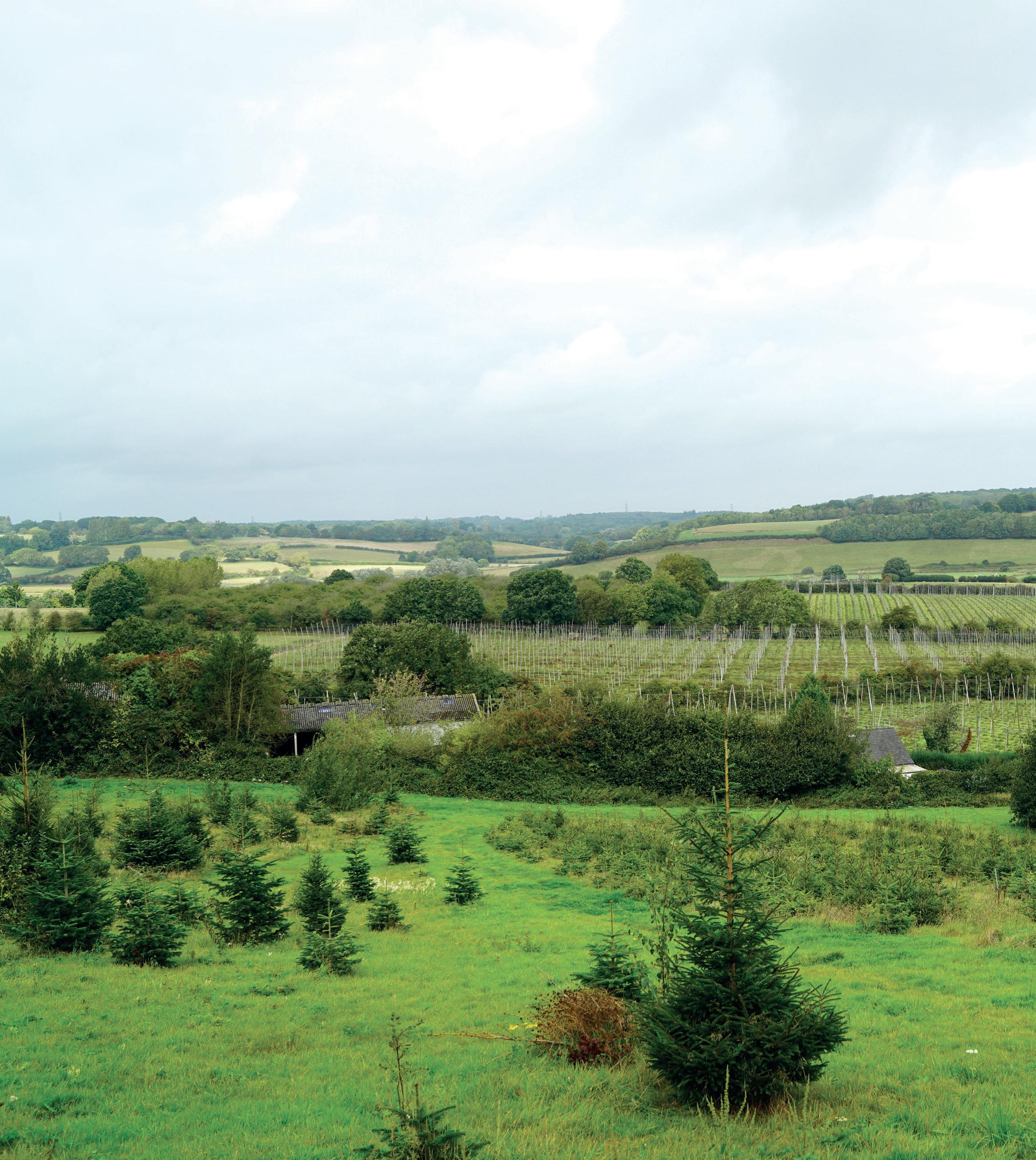
left, with a number of larger growers going out of business recently. Britain was once a powerhouse of hop growing and brewing, but now Germany and the US account for between 75% and 80% of all hop production.
The industry is trying to adapt, said Simon, and there is work going into breeding varieties that offer citrus flavours and clean lager flavours to supply the demand for lagers. English Hops Limited (EHL) is helping develop new varieties to help brewers’ cut their current carbon footprint that reflects the need to transport hops half way round the world. He said sales of their hops had been more encouraging this year and that they were feeling a bit more optimistic about the future.
Arriving in the hop garden, I watched their hop picking team in action using an old Massey 135 with a small trailer behind. As the tractor drove between the hop poles, two pickers on the back trailer pulled down 15-foot bines until it was full.
Back at the yard the trailer was unloaded and the bines hung onto a machine by two workers. The first process is plucking, then the hops go through a long sorting machine that separates out the leaf from the hop. The hops then go onto a conveyor that transports them to a modern oast house next door to be dried to around 8% moisture in large kilns.
We moved next door and Simon showed me around their state-of-the-art oast house,

OCTOBER 2023 | WWW.SOUTHEASTFARMER.NET 18 NIGEL AKEHURST VISITS: L WHEELER & SONS
This month Nigel Akehurst visits L Wheeler & Sons at Parsonage Farm in Udimore, East Sussex, to meet the Wheeler family and learn more about their thriving mixed farming and food enterprises.
which was designed and built from scratch in 2018. Unlike a traditional oast, where a lot of the work is carried out by hand, the whole facility is mechanised, with conveyors moving the hops to and from the kiln and several large bins where the hops are stored before being pressed into rectangular 50kg bales. It’s an impressive setup and the whole operation is managed by Robert Wheeler, Simon’s father. Robert described their old workflow as “hard work”. Previously all the hops were put into bags, or ‘pokes’, and lifted onto a trailer by hand (80 bags to a load) and transported to the old oast house. Typically in a good year they would manhandle around 240 bags per day. They would then be unloaded by hand and emptied into the kiln to be dried and put into cylindrical bags, called pockets, and loaded by hand back onto a trailer to be taken to a storage shed ready for collection.
Our conversation moved on to the market. “The thing about hops is it’s forever been up and down. It’s not an easy business, but this particular year we are feeling a little more optimism with new sales coming in after three very difficult years – but that’s farming isn’t it?” Robert added with a wry smile.
FARM FACTS
• 450 acres of land owned, another 150 rented locally


• 40 acres of hops growing four varieties, Fuggle, Goldings, Admiral and Target
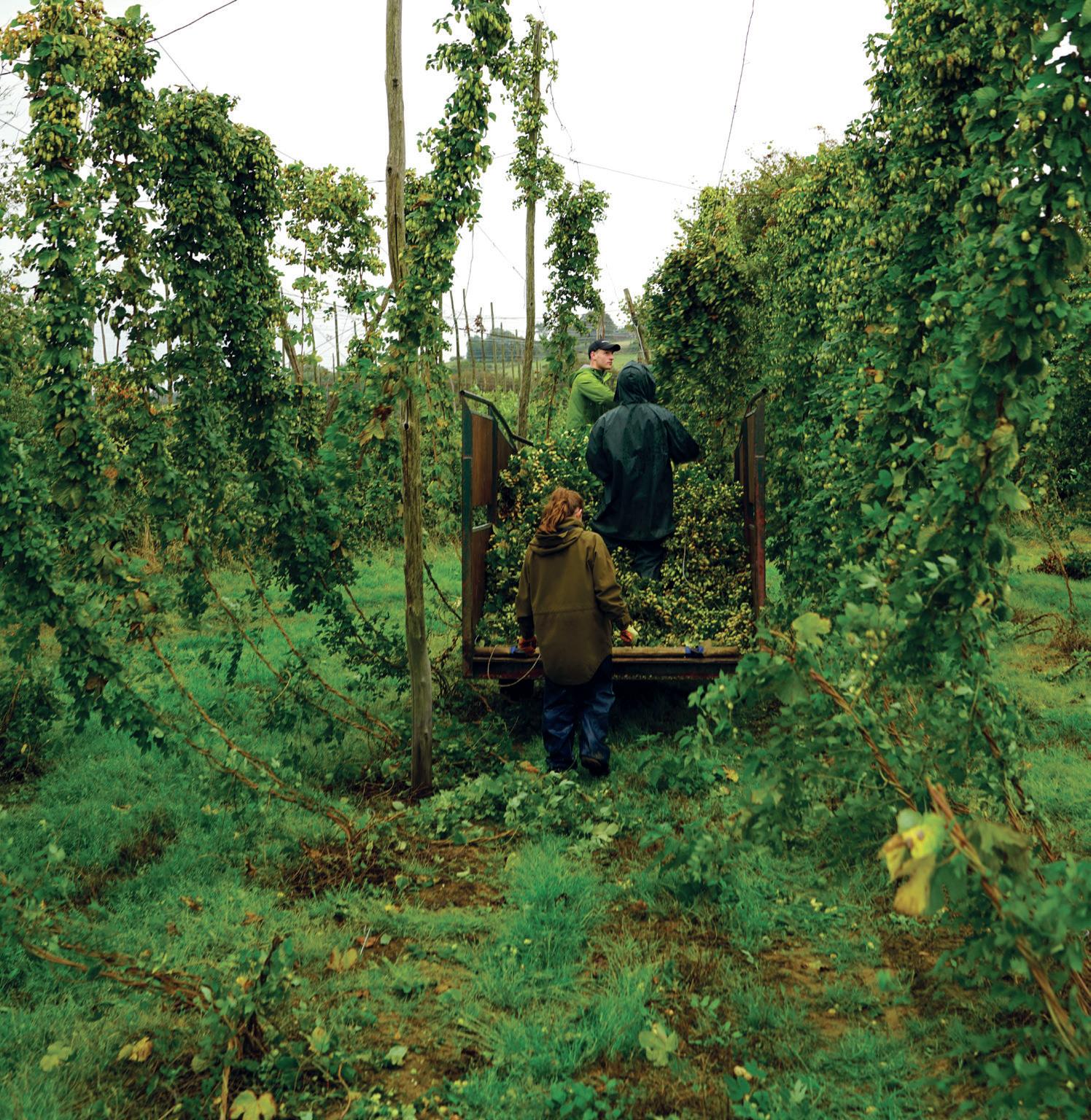
• Invested £400,000 on a new modern oast house completed in 2018
• 1,600 Romney ewes, all lambed outdoors in two flocks (one mid-March and the remainder in April). 95% of lambs sold as stores in Ashford and some finished and used for their own cafe and events
• 25-acre pick-your-own fruit enterprise set up in the late 70s when Robert and his brother David bought the neighbouring Tibbs Farm
• Tibbs Farm cafe and farm shop opened in the summer of 2020 as a farm diversification
• Started running Tibbs Farm feasts this year, along with hop harvesting tours
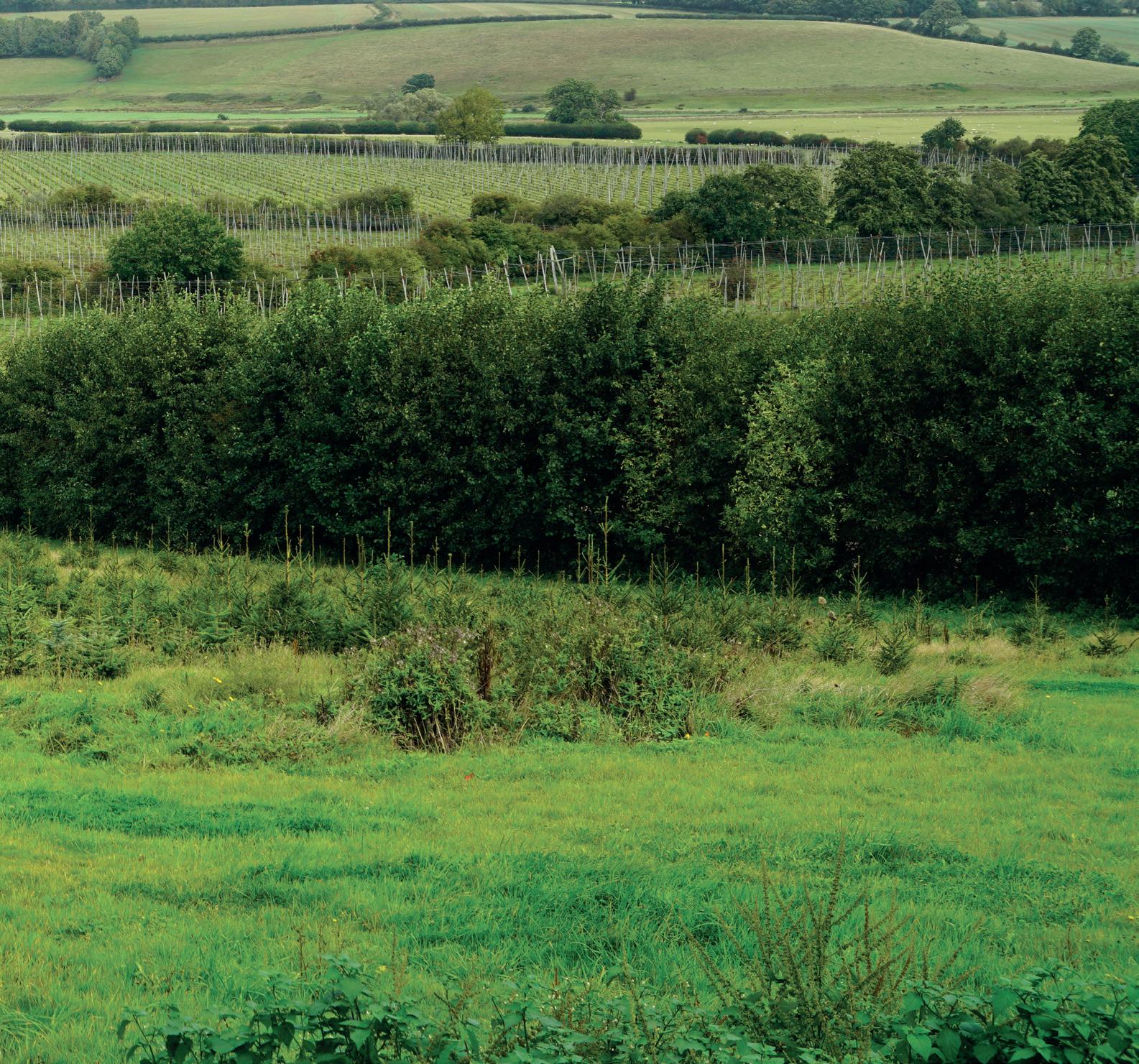
• Small flock of free-range hens and some woodland-reared pigs
• Next generation of Wheeler family now involved in the business – Simon, Phil, Emily and Tabby
WWW.SOUTHEASTFARMER.NET | OCTOBER 2023 19 TO ADVERTISE CALL 01303 233883 >>
<<
One of the many challenges is recruiting staff to help during the four weeks of harvesting. They target local labour and try to attract university students, "though the long hours and manual work don’t suit everyone," he said.
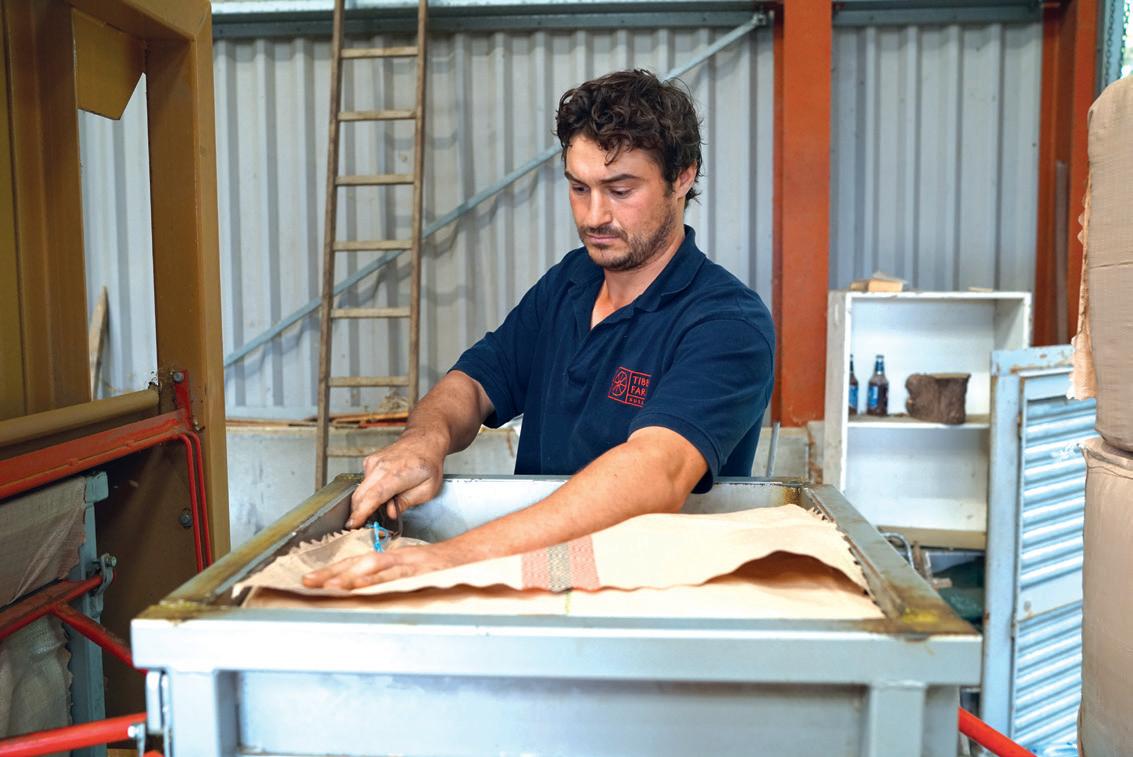
There’s also a lot of behind-the-scenes work that goes into managing the bines through the winter months, when they employ two horticultural workers to cut the bine plants back, and ensuring all the infrastructure is up to scratch. "Renewing all the wiring and hop poles is an expensive business and 'the true test' of whether you’re going to stay in the industry," said Robert.
“It’s skilled, dangerous work – you’re up
high and you have to get the (wire) tensions about right. It’s also hard to find the people to do it these days,” he added.
They put up their last hop garden in 2014 and are committed to staying in the industry. The Wheeler family can trace its hop-growing roots back to 1690, with his father Kenneth Wheeler moving down from Kent to Parsonage farm in 1956.
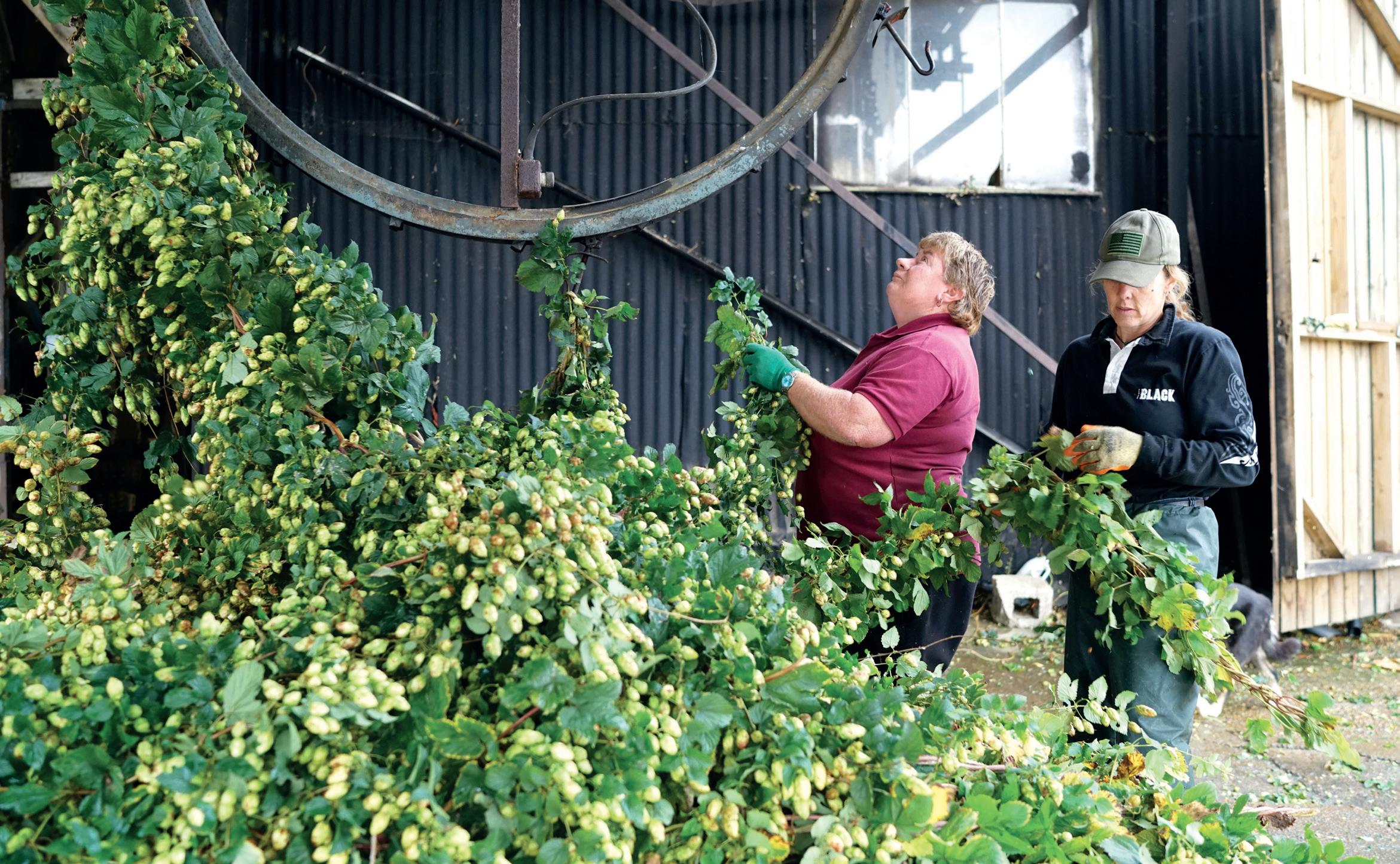
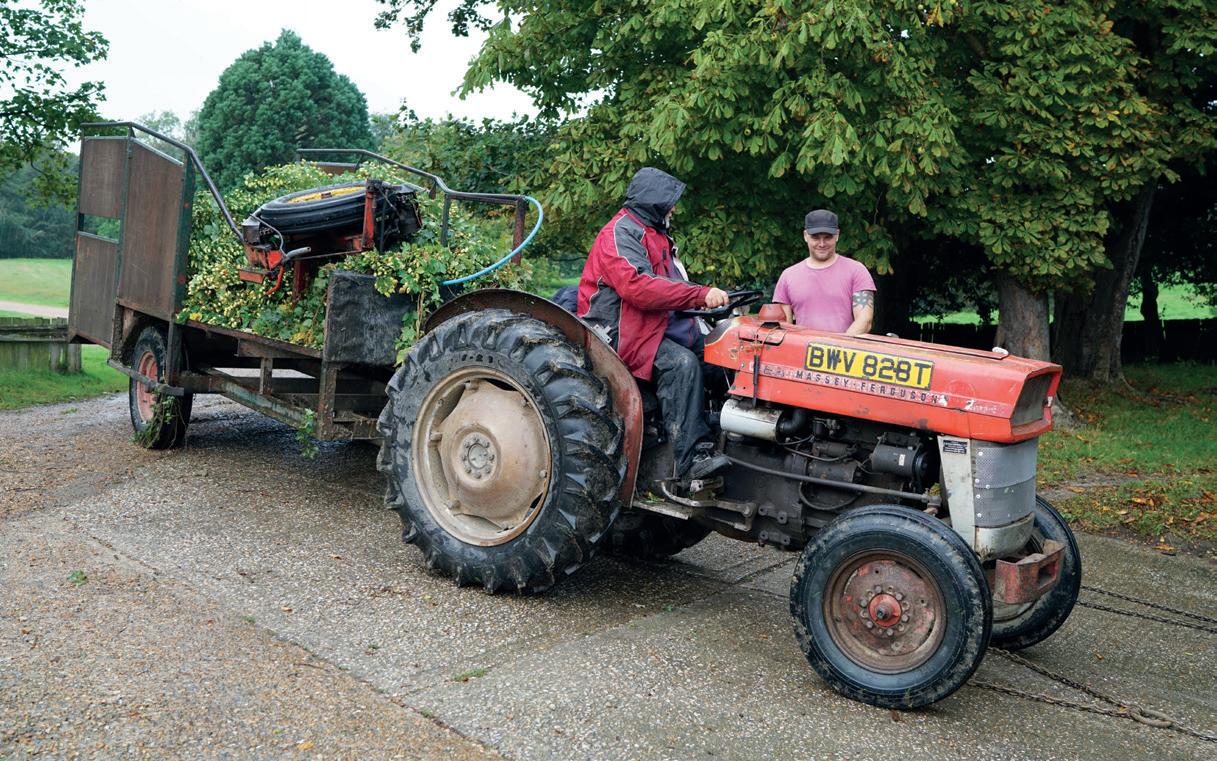
Robert and his brother David continued the hop growing and family farming tradition and now the next generation is taking up the reins.
SHEEP
In addition to hops the family runs a
number of other enterprises on the farm, including a flock of 1,600 Romney ewes mainly on their lower marsh ground.
They lamb outdoors in two batches, the first in March and the second in April, explained Simon. Percentages were a bit disappointing this year, not helped by the drought last summer, but lambing went well. The biggest challenge was grass, with much of their marsh ground underwater until the weather improved.
The vast majority of their lambs are sold as stores through Ashford, with a small percentage kept back for their own farm feast events that they run from a venue below the Tibbs Farm café.
OCTOBER 2023 | WWW.SOUTHEASTFARMER.NET 20 NIGEL AKEHURST VISITS: L WHEELER & SONS
Simon Wheeler
PICK YOUR OWN (PYO)
Originally set up by Robert and his brother David in 1978 at Tibbs Farm, next door to Parsonage Farm, the PYO covers an area of 25 acres. It’s a stunning site located on a slope, offering good drainage and spectacular views overlooking the Tillingham valley. Today they have one of the largest ranges of PYO fruits across the South East.
"The season starts off with strawberries and tart cooking gooseberries, with masses of other fruit following from June onwards," said Simon.
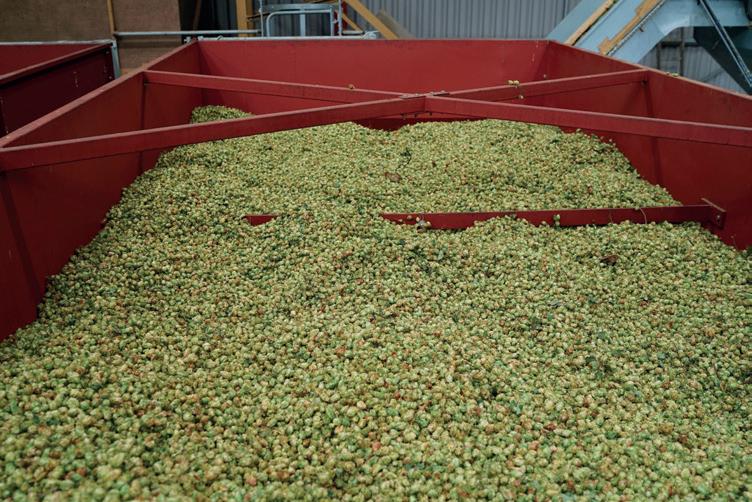
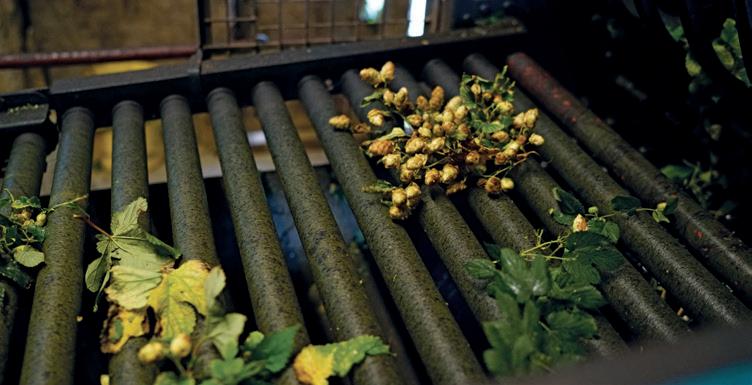
As well as growing the traditional favourites, Tibbs also champions some more unusual fruits. This includes seven different varieties of gooseberries and most recently the planting of the first honeyberry plantation (that they know of) in the South East. In addition to the fruit, the PYO site also has its own beech maze which customers can explore.
NEXT GENERATION AND OPENING THE TIBBS CAFE AND FARMSHOP
With the next generation coming into the fold, the family decided to open a farm café and shop at Tibbs Farm.
They also set about creating a modern brand that encapsulates the farm as a whole. Their Tibbs Farm logo features the wheel that was used by Kenneth Wheeler as a stamp on the farm’s apple bushel boxes.

The café itself has a laid-back, farm-to-fork feel and opened in the summer of 2020, said Simon. It’s been a worthwhile venture and gets busy in the summer months, with an influx of pick your own visitors and tourists spilling out onto a good-sized outdoor picnic seating area.
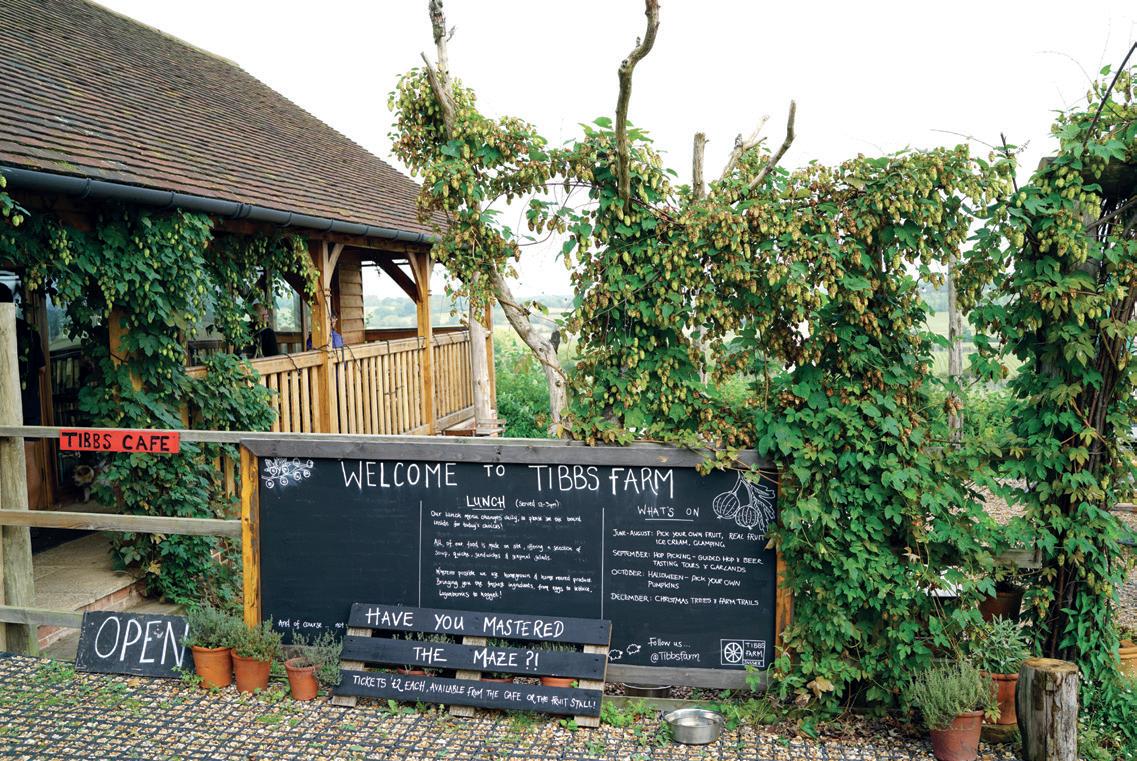
Tabby Wheeler, the youngest member of the family, is the mainstay of the cafe and recently returned from a three-month cookery course at The Ballymaloe Cookery School in Shanagarry, County Cork, Ireland.
Recruiting and retaining staff is challenging for the business, as is anticipating customer numbers, which can vary enormously from day to day. This year the business has run a number of farm feasts from a rustic venue below the shop which overlooks the valley. These ticketed events have been great fun and provided a showcase for the farm's produce. In addition to the farm feasts, hop picking tours are also available, these are promoted through social media channels that link back to their modern website at www.tibbsfarm.com. All social media and the website is run by Phil Wheeler, who I met briefly and who was busy in the cafe on the day of my visit.
SOCIAL MEDIA AND WEBSITE
With nearly 10,000 followers on Instagram and 6,500 followers on Facebook, social media is a key part of the marketing for the farm, café and shop. Checking out their accounts I spotted a recent post highlighting a visit from Marcus Wareing, who came hop picking with them for his latest BBC season of Tales from a Kitchen Garden.
A FAMILY FARM FIT FOR THE FUTURE

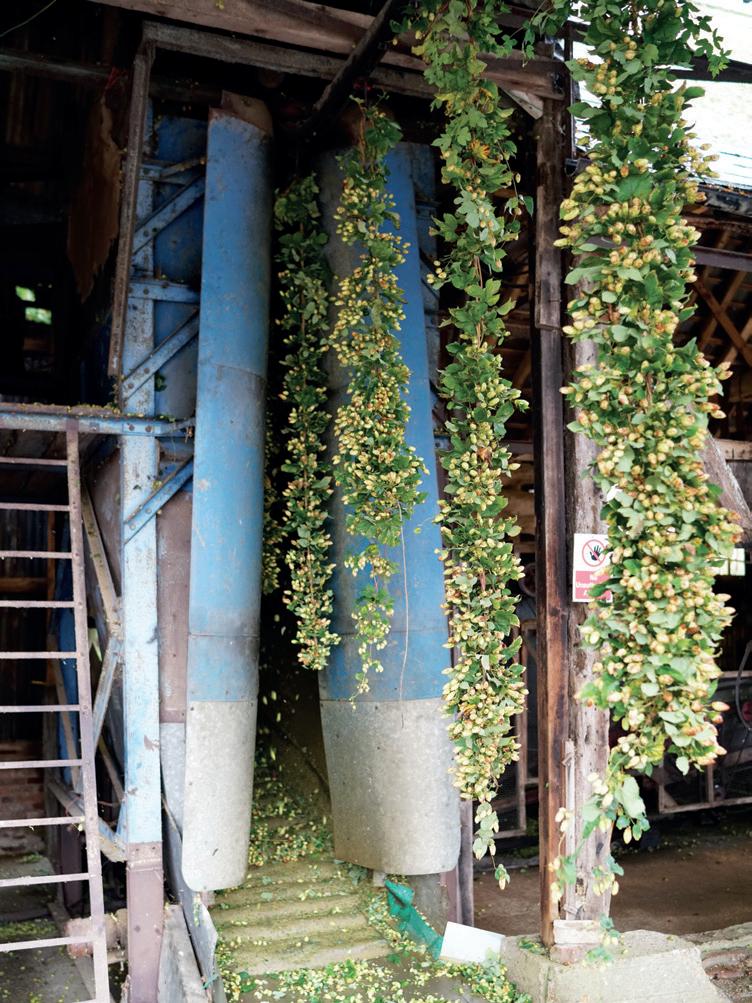
Leaving the farm, I felt inspired by the different enterprises and how they have managed to create a family business capable of not only employing themselves but other people, too. So often family farms become neglected due to lack of opportunity or interest from the next generation. Tibbs Farm offers an alternative narrative and shows what can be achieved with a bit of investment and hard work.
I look forward to following their story online and will be back with my own family next summer for the pick your own season and some of their coffee and delicious cake in the café.
WWW.SOUTHEASTFARMER.NET | OCTOBER 2023 21 TO ADVERTISE CALL 01303 233883
Mark Cleverdon
CELEBRATING 90 YEARS
The National Fruit Show celebrates its 90th year at the Kent County Showground on Wednesday 1 and Thursday 2 November 2023.

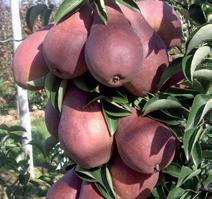

This year’s show will be opened by Minette Batters, President of the National Farmers Union, who will give a keynote speech as well as touring the show and meeting with fruit growers and industry leaders.
The National Fruit Show is organised by growers, for growers, and showcases the finest British apples and pears, soft fruit and nuts with a large display at the centre of the show. The National Fruit Show is sponsored by BASF, Hutchinsons, N.P. Seymour Ltd and Worldwide Fruit.


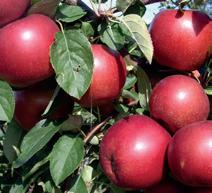
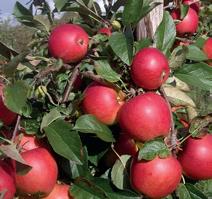
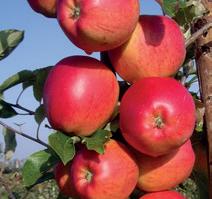
Sally Flanagan, CEO of the Marden Fruit Show Society, organisers of the show, commented: “We are inviting growers from across the UK to help us to celebrate the show’s 90th year by putting on the largest display of fruit ever and we also have a real focus this year on the future for the industry with an exciting ‘teacher encounter’ event on Day 2.
“The show will be packed with exhibitors and there is a terrific range of speakers and information for fruit growers. We look forward to welcoming everyone and hope they enjoy the show.”
Catherine Paice, President of the National Fruit Show, added: "The National Fruit Show is not only for growers by growers, but a showcase from which to take new ideas, developments, energy, education and, of course, the best fruit to the outside world.”
Broadcaster, food and drink expert and all-round ‘bon viveur’ Nigel Barden will host

several talks over the two days. The draft speaker programme, sponsored by Gullands Solicitors, is opposite.
Other highlights of the show include a focus on education, young people and teachers, highlighting careers in the fresh produce sector and the skills needed by employers.
On day two, the Kent and Medway Careers Hub will be running the first ever Kent and Medway Teacher Encounter event, free for teachers and hosted by The National Fruit Show Education Programme.
This ground-breaking event will bring together career educators, senior leaders and curriculum teachers from mainstream secondary schools, colleges, SEND (special educational needs and disability) and alternative provisions and businesses from the horticulture and wider fresh produce sectors exhibiting at The National Fruit Show. This promises to be an exciting opportunity to understand, develop and ignite connections between the world of
J R BREACH
education and the world of work.
The Teacher Encounter will enable more than 100 educators to hear guest speakers, network with fresh produce industry leaders and meet exhibitors demonstrating the dynamic and varied careers paths available.
Linking careers within horticulture and fresh produce to science, technology, engineering, art and mathematics, the event is designed to allow educators to take real-life examples back to the classroom to enrich their teaching and conversations about careers in the sector.
Educators and businesses will have the opportunity to discuss the challenges in growing careers aspirations and access to the industry through networking and to create new working relationships to support the local economic need of Kent and Medway and inspire well-skilled, career-ready young people to work in the sector.
This event aims to deliver exciting outcomes for both educators and businesses, including:

OCTOBER 2023 | WWW.SOUTHEASTFARMER.NET 22 NATIONAL FRUIT SHOW
PREVIEW
The first ever National Fruit Show held at Walton Hall in 1933
Please contact us for wholesale supplies of the products below DALIVAL FRUIT TREES & ROOTSTOCKS DESINDO STAKES & BAMBOO STILMER METAL POLES also, the following exclusive NuvarTM varieties jrbreach.com office@jrbreach.com 01580 891756 CHEERFULL GOLDTM STARDANCETM CABARETTM MISTY ROSETM THE SOUTH EAST PRODUCT TO LONDON AND IT’S WHAT WE DO W.NEWSPITALFIELDSMARKET.CO.UK We’d love to hear from you! New S pi talfields Wholesale Marke t @ fruit nv eg spit s +44 (0) 208 5 56 147 9 j a n@ n e wsp it alfieldsmarket.co.u k THE SOUTH EAST PRODUCT TO LONDON AND IT’S WHAT WE DO W.NEWSPITALFIELDSMARKET.CO.UK We’d love from you! New S pi talfields Wholesale Marke t @ fruit nv eg spit s +44 (0) 208 5 56 147 9 j a n@ n e alfieldsmarket.co.u k Best Wholesale Market 2018 We’d love to hear from you! jan@newspitalfieldsmarket.co.uk +44 (0) 208 556 1479 @fruitnveg_spits New Spitalfields Wholesale Market
EDUCATORS
• Challenging misconceptions of horticulture and the wider fresh produce industry
• Embedding curriculum learning in the context of work
• Offering examples of positive and diverse role models
• Supporting students to recognise skills employers’ value
• Reflecting both growing and declining sectors through teaching
• Developing sustained and embedded employer relationships to support school engagement.
BUSINESSES
• Increased awareness and visibility of the sector within the wider community

• Better prepared young people/applicants
• Developing future pipeline and future skills need
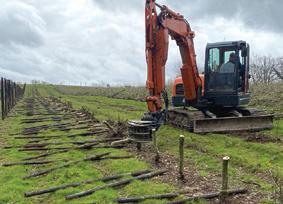







• Increasing interest/applications to employers (specifically areas with skills gaps)


• Increased diversity in the workplace
• Improved recruitment practises to attract young people.
WHAT IS A TEACHER ENCOUNTER?
Teacher encounters with employers enable educators to fully understand current industry practice and share up-to-date knowledge and skills with their students.
They help educators maintain a breadth of knowledge and an understanding of the latest technical and professional developments relevant to the subjects they teach, including present and future career opportunities and pathways and the knowledge, skills and behaviours required for different roles. Educators can use these insights to inspire their students and keep their teaching and
Draft speaker programme



Wednesday 1 November
10am
NFU President Minette Batters officially opens and tours the show.
10am Nigel Barden and Chris Newenham, The Worshipful Company of Fruiterers.
10.10am Cindayniah Godfrey.
10.30am Samantha Lynn.
11.00am John Gray.
11.30am Minette Batters keynote speech, followed by Q & A session.
1pm - 1.30pm Gullands Solicitors talk.
2pm - 3pm Rural Policy Group. A panel of experts will debate the Government's most recent announcements on environmental policy and what they mean for fruit businesses. We discuss what the new stance on nutrient neutrality and BNG means for landowners among other business-critical changes to the UK's green strategy.
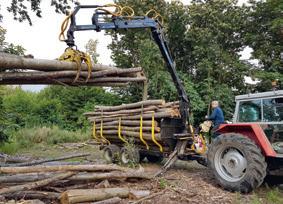
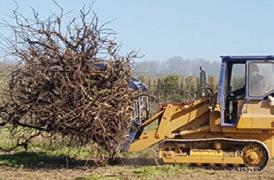
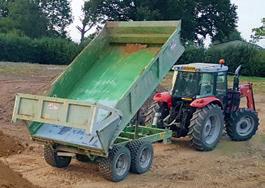




6.30pm - midnight Drinks reception and celebration dinner (ticketed).
Thursday 2 November
10am - 10.30am Regenerate Earth.


10.45am - 11.15am Westrock packaging.
11.30am - 12.30pm Panel discussion with Ali Capper of British Apples & Pears, fruit growers, Gullands Solicitors and guests talking about the future of fruit growing.
2pm Prize giving
curriculum up to date. Employers can support educators to shape the curriculum and provide relevance to the world of work to ensure young people are best prepared as a future workforce.
Matt Peake, operational hub lead at the Kent and Medway Careers Hub, commented: “An important part in making careers education inspirational, relevant and sustainable is endowing teachers with the knowledge of what is happening in the industries and businesses that directly relate to the curriculum they are teaching.
“Teacher encounters, combined with experiences of the workplace for students, can bring to life job roles and career pathways for learners and enable them to see school or college as an integral part of their journey into the world of work.”
Samantha Smith, education lead at The National Fruit Show, said: “Understanding the comprehensive and contextual needs of the education sector and the needs of the fresh produce industry has played a vital role in us organising this relevant, meaningful and critically timed event which supports schools to achieve the Gatsby benchmarks.
“Our immediate aim is to give a real and practical insight into how young people can become part of an exciting and vital industry in the UK and to connect educators and employers to better support each other and these future employees.
“Significantly, we will use this event to gather and disseminate the lessons learned to all parties, bridging a long overdue skills and labour gap.”
WWW.SOUTHEASTFARMER.NET | OCTOBER 2023 23 TO ADVERTISE CALL 01303 233883
Service | Hire | Sales | Training | Transport CALL NOW ON 01580 852473 Throughout the UK we can support your ever growing business by specialising in most popular makes and models of materials handling equipment. Our highly skilled team can provide the rapid support you need. Service Hire Sales Training Transport Grandshore Wood Farm Grandshore Lane, Frittenden, Cranbrook, Kent, TN17 2BZ See us on stand K20 W.H.Skinner & Sons GRUBBING, TIMBER & GROUNDWORK SERVICES Orchard grubbing Windbreak removal Timber extraction Fallen tree removal Ground contouring Land clearance Excavations Cultivations Pond dredging 01622 744640 - 07711 264775 www.whskinnerandsons.co.uk
Landowner interest in vines shows no signs of abating. In the five years to 2022, the area under vines across Britain increased by 74% to 3,928 ha. A further 400 ha are estimated to have been planted in 2023. Projections produced by WineGB, the industry body, suggest the area will maintain its growth of recent years to reach 7,600 ha by 2032.
Much of this growth, said Ben Brown, viticulture specialist with Agrii, a leading viticulture advice, technology and supply business, has come from growers producing grapes on contract.
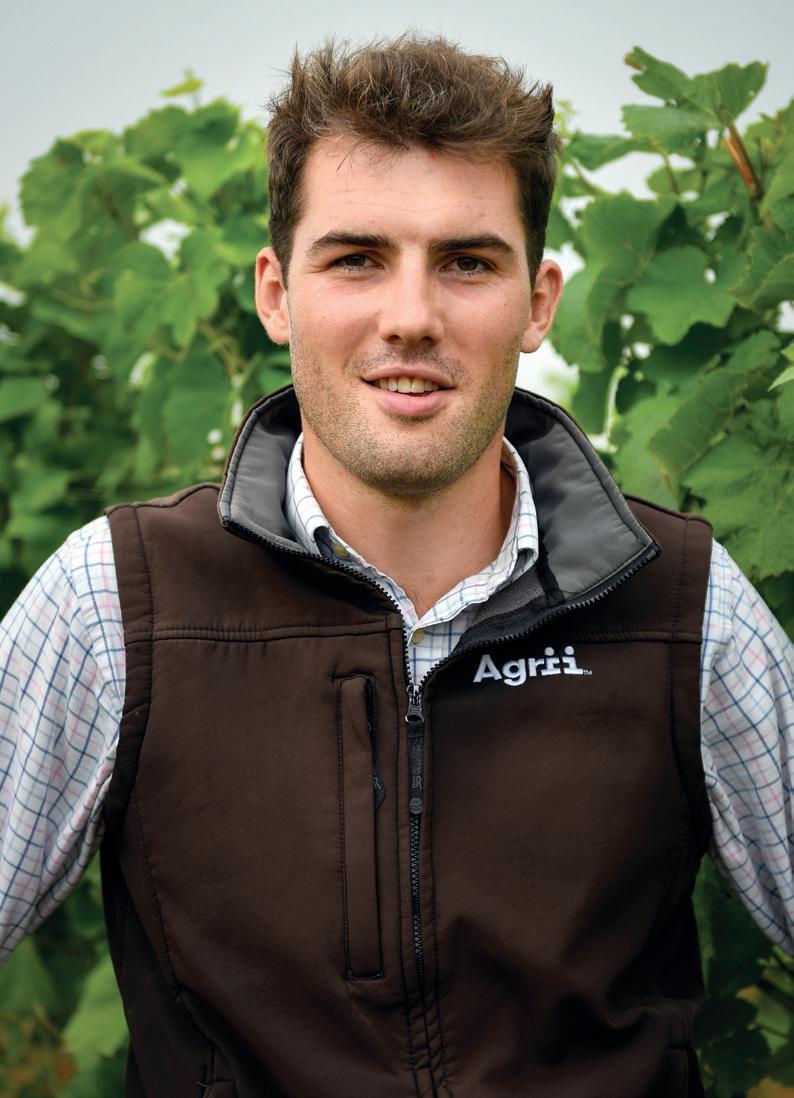
“Vines represent a considerable investment and managing them well takes skill. Growing on contract means new entrants can gain scale without needing to invest considerable sums in a winery,” Ben said.
Interest in vines among prospective producers has stimulated demand for Agrii’s site selection and assessment expertise as a necessary first-step towards establishing a vineyard.
“If you want a vineyard to last 20 years, you need to know your soils and its characteristics. This analysis determines the rootstock to be used and influences the variety of grape. Making good on bad decisions later is highly costly, so time and effort invested at the early stages is always worthwhile.
“Traditionally, sparkling wines have thrived on the chalk soils of the Champagne region, where the soils support a balanced aromatic profile enjoyed by consumers. Conversely, water-limited soils tend to produce grapes with more desirable phenolic characteristics and higher quality tannins, which is why red wines
do better on soils where moisture can be in short supply,” he added.
There are more considerations, such as what to plant between the rows that won’t harbour pests or disease or negatively affect soil pH. The most suitable options are often soil-type specific, so sound experience is essential to making the best decision.
Visit Agrii on stand K32 to speak to a specialist adviser.
GROWTH IN VINES SPURS NEED FOR SPECIALIST SERVICES SUPPLYING AND MANAGING STEEL-FRAMED BUILDING PROJECTS
Wealden AM are always excited to attend the National Fruit Show. The company has been supplying and managing steel-framed building projects in the South East of England for nearly 30 years. In that time, Wealden AM has delivered projects to meet a wide range of needs for agricultural, industrial and commercial customers, with a large proportion of those in the fruit industry. Wealden AM understands understand that there is more to a building project than just a building.
Providing first-rate customer service is at the heart of what Wealden AM does and they pride themselves on being able to offer a complete building package, from


expertise and advice during the planning and design stages through to the supply and management of the construction itself. Their in-house team provides the variety of skills and enthusiasm needed to give every project its all. Working alongside suppliers and contractors, Wealden AM will put together a team best suited to each individual project.
This can include planning consultancy, groundworks, all building elements, electrics, white walling and refrigeration. The company is based in East Sussex, with most existing customers based in Kent and Sussex. If you have a project in mind you think Wealden AM could assist with, please visit us at stand K30.
OCTOBER 2023 | WWW.SOUTHEASTFARMER.NET 24 NATIONAL FRUIT SHOW PREVIEW
Ben Brown
As the National Fruit Show celebrates its 90th birthday, BeBa is proud to reflect on its own achievements over the past 15 years.



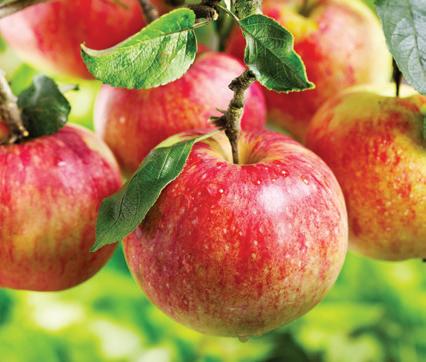

Since 2010 BeBa has installed over 35,757kWp of solar PV power across 501 sites, the vast majority of which has been for agricultural clients. The company has worked, and continues to work, with Driscolls (Berry Gardens), FW Mansfield & Son, Hugh Lowe Farms and AC Goatham & Son to name but a few.


Collectively, the systems BeBa has developed, designed and delivered save around 5.8million tonnes of C02 per year. If all the panels were laid end-to-end, they would stretch from London to Liverpool.
BeBa does not just install new systems but also manages, maintains and monitors over 45,000kWp across 512 locations and cleans just under 75,000 panels each year.

As the company looks to the future, it is excited to see how dynamic energy storage – coupled with solar PV systems – can help fruit farmers manage their electricity demand to not only ensure they are purchasing energy in the most efficient way but are also being helped to decarbonise their operations at night.

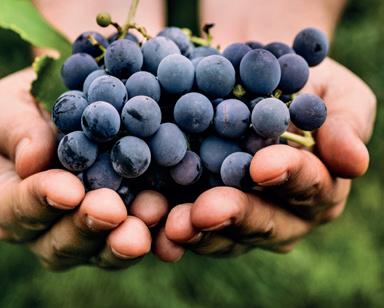


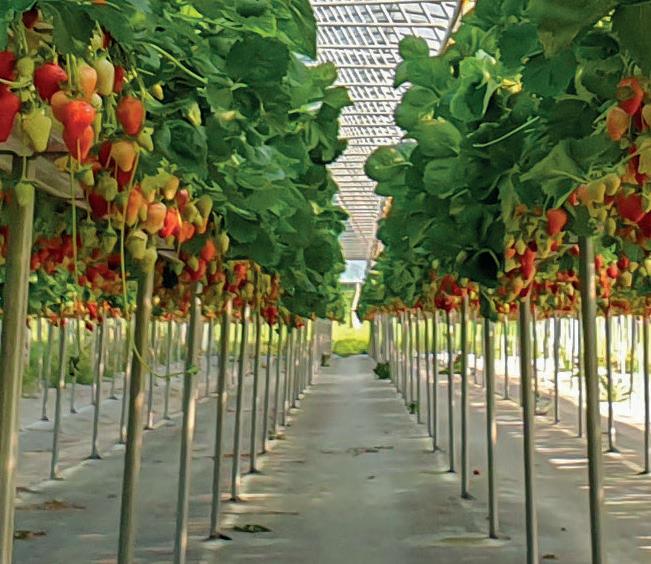
Happy birthday, National Fruit Show – here's to the next 90 years. Visit BeBa on stand S12.
LOOKING TO THE FUTURE SPECIALIST ADVICE ON RURAL MATTERS
As a rural law practice, Warners’ agricultural lawyers have a long-established relationship with farmers, landowners and landed estates, having acted for several generations of farming families for over 200 years.
Warners know that this industry faces unique challenges, which is why they have a dedicated team of agricultural and landed estate solicitors who all have a detailed understanding of the issues of relevance to rural landowners.
Their agricultural and landed estate team has regularly been recognised as a leading firm in the legal directories Legal 500 and Chambers UK. Their agricultural solicitors provide specialist advice on rural matters and draw on expertise from other areas within the firm, allowing them to offer an integrated approach based on a clear understanding of your needs.
Warners are delighted to be exhibiting at the 90th National Fruit Show; come and find them on stand S7


WWW.SOUTHEASTFARMER.NET | OCTOBER 2023 25 TO ADVERTISE CALL 01303 233883
Engage are leading the way in Fruit Nutrition and Crop Enhancement Come and see us on Stand K25 and find out why e info@engagecropsolutions.com t +(0) 1257 226590 engagecropsolutions.com
SPECIALIST FERTILISERS



Hortifeeds manufactures in the UK, producing the highest quality specialist fertilisers.







Hortifeeds’ specialist fertilisers and bio-stimulants efficiently overcome growing challenges. The company works with leading growers in the UK, using expert knowledge gained over many years. Its wide range includes liquid, water soluble and granular fertilisers suitable for any growing situation.

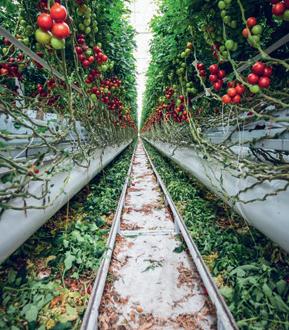

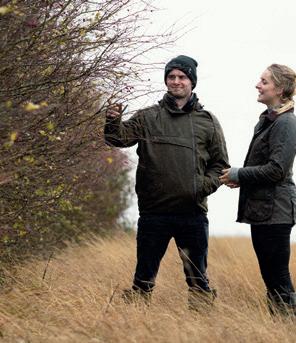
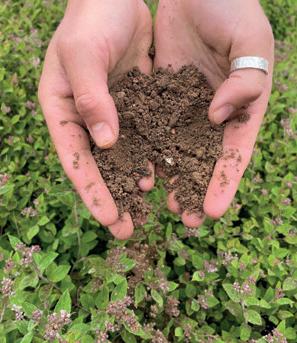

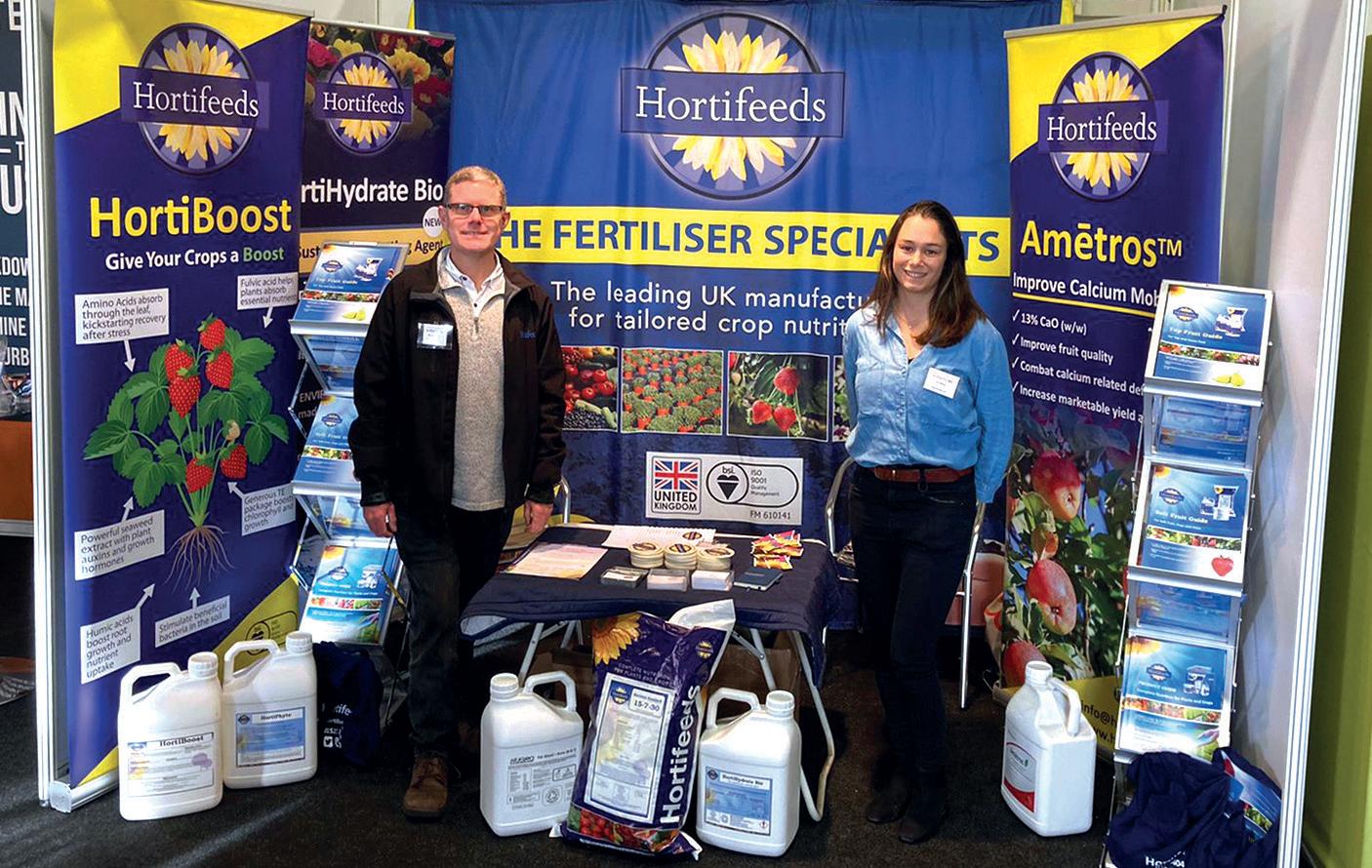
Their leading products include:



HortiMix – A range of water-soluble fertilisers specially formulated for fruit crops grown in a range of substrates or soil. It includes mixes designed for both hard and soft water, with generous magnesium and trace element levels to suit specific crop requirements.
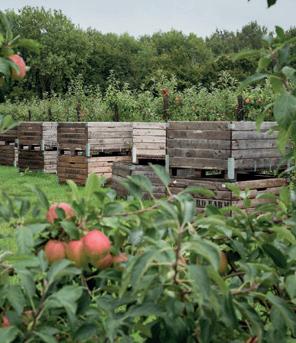

HortiHydrate Bio – A high-performance wetting agent uniquely formulated from environmentally friendly ingredients but with a performance equivalent to standard synthetic surfactants.









































HortiBoost – A powerful package of 20 essential amino-acids, humic acid complex, seaweed and major and minor nutrients that produces the complete biostimulant.
Amētros - Powered by Plant Impact's CaT ᵀᴹ technology, Ametros® leads the market for optimisation and distribution of calcium.


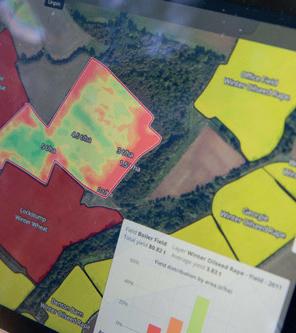
HortiPhyte – A highly mobile phosphite fertiliser that increases crop resilience and improves rooting and nutrient uptake.
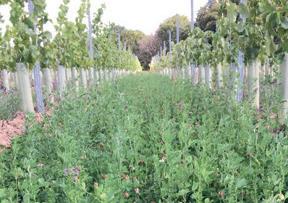
HortiHydrate Pro – Hortifeeds’ powerful specialised horticultural wetting agent, ideal for use in coir and other substrates.

For a comprehensive guide to Hortifeeds products please visit: www.hortifeeds.co.uk

OCTOBER 2023 | WWW.SOUTHEASTFARMER.NET 26
Varieties Digital Environmental Services Agroecology Services Advanced Agronomy Digital Soil Mapping Farm Business Consultancy Nutrition Hutchinsons - General Horticulture Ad - 93 x 270mm OL.indd 1 08/09/2023 16:46 WORLD HEADQUARTERS SPARTA, MICHIGAN, USA WWW.STORAGECONTROL.CO.UK PADDOCK WOOD, KENT, UK +44 (0) 1892 831 702 UKSALES@ STORAGECONTROL.COM Please contact James Hancock for your instrumentation requirements, and Dean Giles or Mark Bigg for Design and Construction enquires.
SCS Ltd: THE PREMIER COMPANY IN THE UK FOR CONTROLLED ATMOSPHERE CONSTRUCTION AND INSTRUMENTATION.
DESIGN AND CONSTRUCTION OF PACKHOUSES, COLD STORES AND CA STORES FOR THE FRESH PRODUCE INDUSTRY.
GLOBAL CROP NUTRITION


Yara grows knowledge to feed the world responsibly and protect the planet. Supporting its vision of a world without hunger and a planet respected, it pursues a strategy of sustainable value growth, promoting climate-friendly crop nutrition and zero-emission energy solutions. Yara’s ambition is focused on growing a naturepositive food future that creates value for customers, shareholders and society at large and delivers a more sustainable food value chain.
To achieve its ambition, Yara has taken the lead in developing digital farming tools for precision farming and work closely with partners throughout the food value chain to improve the efficiency and sustainability of food production. Through a focus on clean ammonia production, Yara aims to enable the hydrogen economy, driving a green transition of shipping, fertiliser production and other energy intensive industries.
Founded in 1905 to solve the emerging famine in Europe, Yara has established a unique position as the industry’s only global crop nutrition company. It operates an integrated business model with around 17,500 employees and operations in over 60 countries, with a focus on providing products, knowledge and support to farmers and growers.
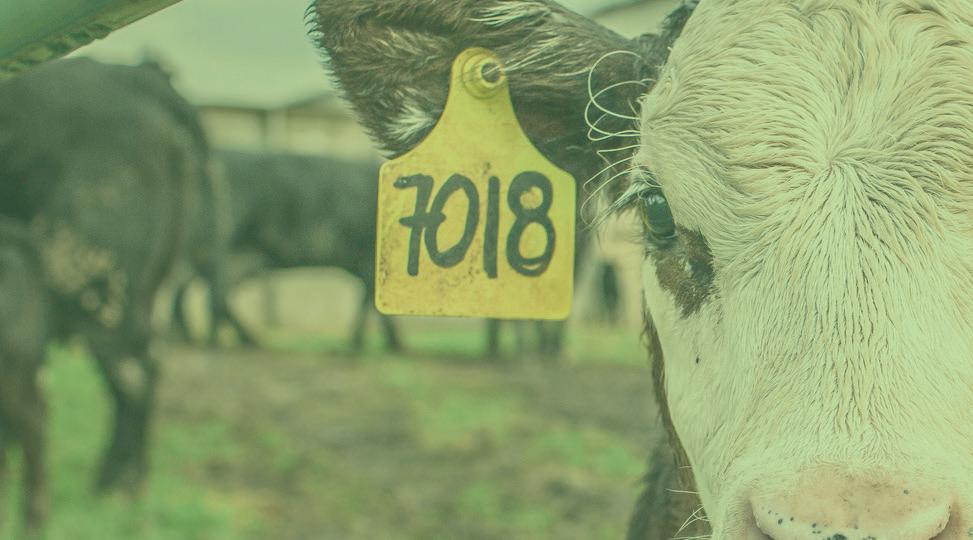
Yara looks forward to talking to visitors at the National Fruit Show. Find them at stand K28, where they will be showing how they can support growers and farmers through their crop nutrition services and digital tools.
Hadlow College is Kent’s only rural and land-based college and one of the top colleges in the UK. Its aim is to provide students with a solid foundation on which to build a career or further studies.
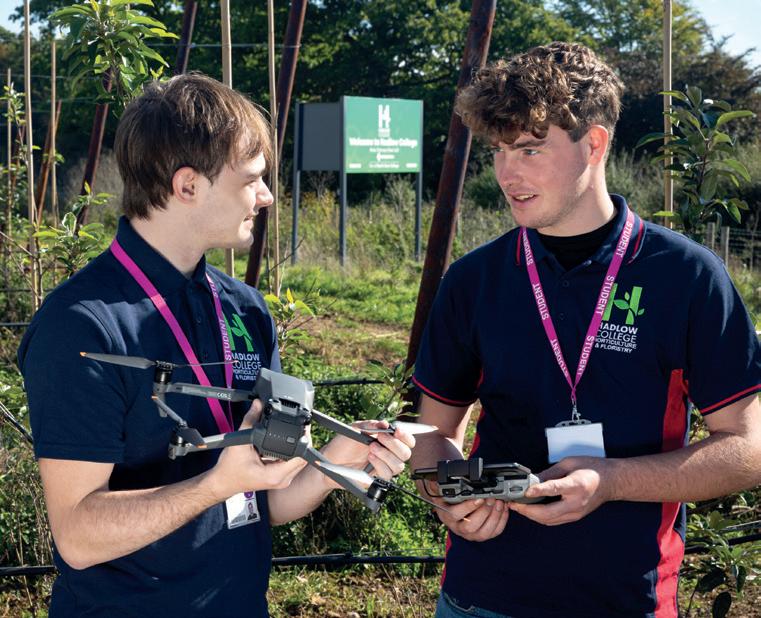
Hadlow College has a proud heritage within the land-based sector and takes pride in being a community. The college has two campuses; for over 50 years we have been based at our current site, just outside Tonbridge, and our history can be traced back over 100 years.
Former students have won major prizes in several prestigious national events and play a key part in the county’s rural economy. In addition to their main site, the campus includes the Royal Borough of Greenwich Equestrian Centre, which opened in 2013.
TOP COLLEGE
MANAGE RISKS AND PROTECT YIELDS
Let’s talk ‘quality crop nutrition’ – visit ICL at the National Fruit Show for information on how their products can help you manage risks and protects yields.

Growers are facing ever increasing challenges such as climate change, irrigation, disease and sustainable practice, all while working hard to maintain productivity and profit margins.
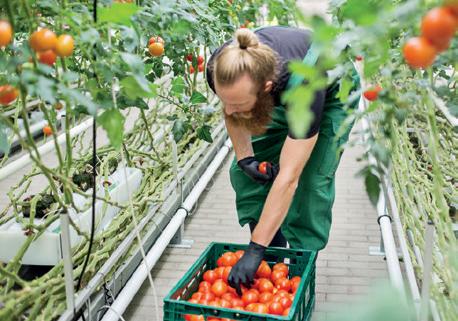

ICL offers a range of quality products that will maximise crop nutrition with minimal effort.





Nova: Nova speciality fertilisers are of unrivaled quality and are highly soluble. They can be mixed with other straight fertilisers or compound water-soluble fertigation fertilisers. Agrolution pHLow: Perfect for growers who deal with a high pH and high alkalinity in their irrigation water and/or soils. An all-in-one fertiliser with acidifying power for better nutrient uptake.
Agrolution Special: An easy-to-use, single bag solution to improve the availability of nutrients through formulations that prevent magnesium and calcium deficiencies.
Solinure: The cleanest raw materials for trouble-free mixing and application. Trace elements and NPK analysis are ideal for soilbased crops of fruits and vegetables.
Improving irrigation efficiency: H2Flo is a market-leading advanced wetting and water conservation agent. A blend of soil surfactants reduces surface tension of irrigation water and spreads water over a larger surface area.
Agroblen:


A controlled release fertiliser designed to deliver precision crop nutrition that can be matched to your specific crop, stage of growth, climate and overall nutrition programme.
Talk to ICL at the National Fruit Show on stand S21, about how we can help grow your business.
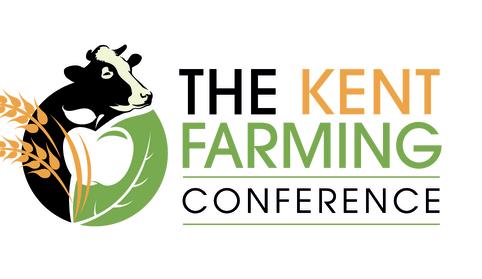
WWW.SOUTHEASTFARMER.NET | OCTOBER 2023 27 TO ADVERTISE CALL 01303 233883
www kcas org uk/the-kent-farming-conference Kent Showground, Maidstone, ME14 3JF Hot industry topics 24 January 2024 1st & 2nd
Speak to the experts to find out everything you need to know about Hadlow College, including their residential offer.







OCTOBER 2023 | WWW.SOUTHEASTFARMER.NET 28 would like to say… Thank You … to all of our customers for another season together. Installed c.35,757kWp of solar across 501 individual sites Managed over 45,000kWp across 512 separate locations Since 2010 BeBa Energy have... Saved c.5.8 million tonnes of CO2 per year with their solar arrays Cleaned 72,400 solar panels every year across 180 individual sites BE SMARTER • BE GREENER • BEBA info@beba-energy.co.uk beba-energy.co.uk 01442 220 100
It’s not unusual for someone to refer to a comfortable and supportive working environment as being “like family”, but it’s rare for it to be true.
For Sarah Calcutt, though, her time at the helm of the National Fruit Show reflected the close involvement of her family in the show throughout much of its history. “If you threw a stick into the exhibition hall during a show you would probably hit someone I was related to in some way,” she commented.
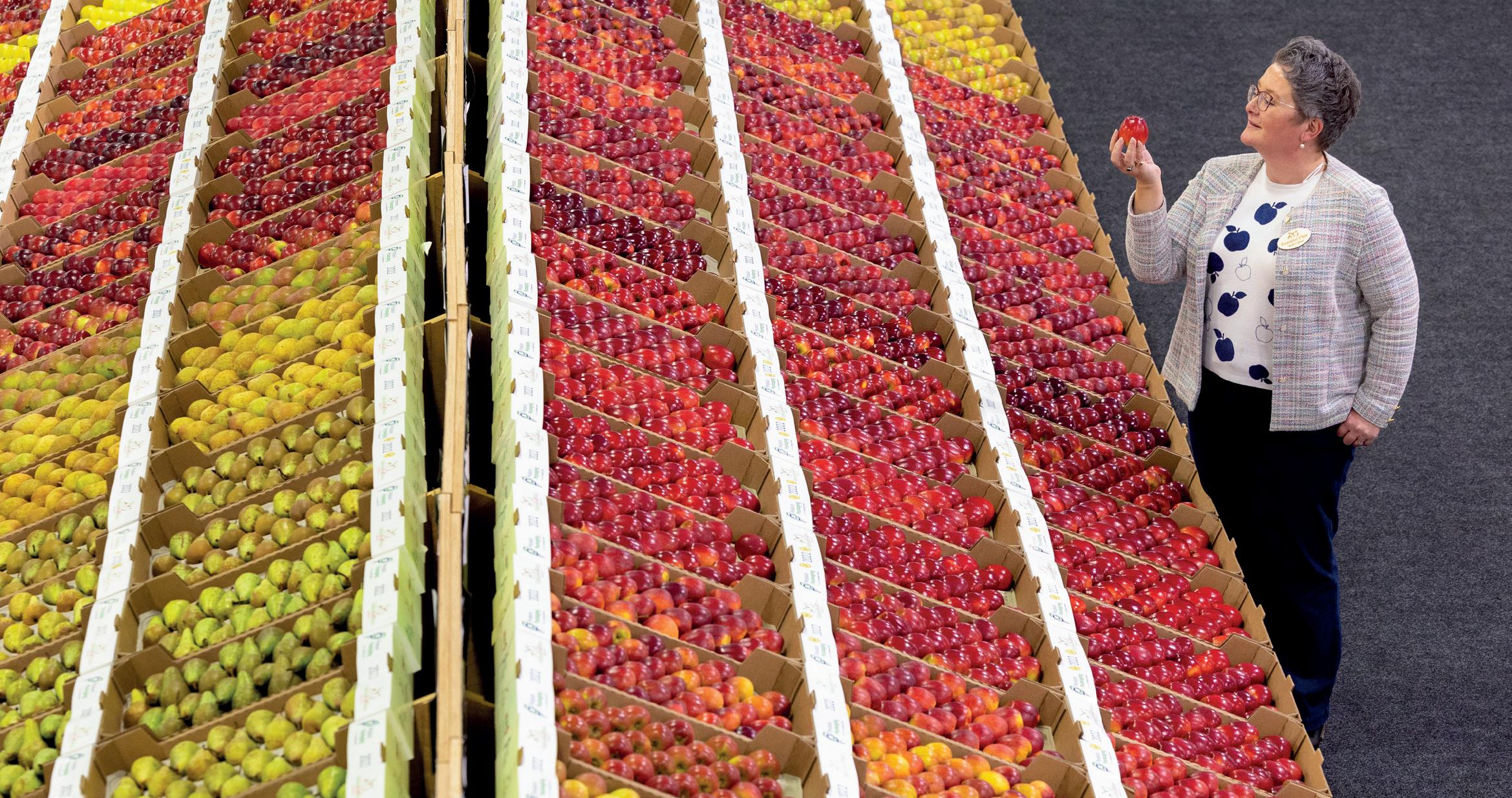
After nearly 20 years supporting the show, including the past two serving as executive chair of organisers the Marden Fruit Show Society (MFSS), Sarah has moved on to a new role as chief executive of City Harvest London, handing over the reins of an institution that is celebrating its 90th birthday this coming November to the capable hands of Sally Flanagan.
In that role, Sarah heads up a charity that has just delivered its 50 millionth meal to deserving families – without ever buying a single item of food. The food it distributes is diverted from waste streams and instead donated to the cause (“anything that’s good to eat but too ugly to sell or is close to its expiry date,” she explained).
With female chief executives now more common than they were when Sarah first chaired the MFSS 14 years ago, and the city perhaps less ‘traditional’ than the male-dominated world of horticulture, she no-doubt had a warm, equal opportunities
FRUIT SHOW IS A FAMILY AFFAIR
welcome from her City Harvest colleagues.
In contrast, she recalled bringing members to order when she took the chair at her first committee meeting. “A voice from the back of the room piped up with: ‘Young lady, if I had wanted to be nagged, I would have stayed at home’,” she explained.
It was a challenge she overcame, and, as she admitted, was somewhat self-inflicted.
“I joined the committee when Jeremy Scott was chairman,” she said. “I drove him mad continually telling him how I thought it could be improved, and so in 2009 he decided to make me put my money where my mouth was, as they say. He made me junior vice-chair, giving me three months’ notice before I took over the hot seat.”
It was a baptism of fire for someone who had just returned from a year abroad on a Nuffield Scholarship and who also gave birth to daughter Aurelia that same year, but she had considerable support.
“Robert Oliver was a great vice chair, offering the best kind of support you could wish for,” Sarah recalled. “He was dedicated,
intelligent and had no desire to sit in your seat. I came in with all guns blazing and in contrast he provided a steady hand and was able to knock the rough edges off my enthusiasm and occasional ability to annoy people!
“It was also Robert, who is still on the committee and had served as Jeremy’s vice chair, who was the inspiration and driving force behind the suggestion that we should turn the fruit show society into a CIO (Charitable Incorporated Organisation).”
Norma and Brian Tompsett, themselves stalwarts of the fruit show, first held in 1933, championed the ‘young lady’ whose ideas were always going to upset some of the longstanding members.
“I had a vision for the show which was based on transforming it,” she recalled. “I knew we had to make it commercial and ensure it was nationally relevant or go back to showing a few apples in a shed in Marden. We had to go for it, shake it up, and I am so grateful that the committee was brave enough – and hard-working enough – to help me realise that vision.”
WWW.SOUTHEASTFARMER.NET | OCTOBER 2023 29 TO ADVERTISE CALL 01303 233883 NATIONAL FRUIT SHOW PREVIEW
>>
Sarah Calcutt































































































































































































































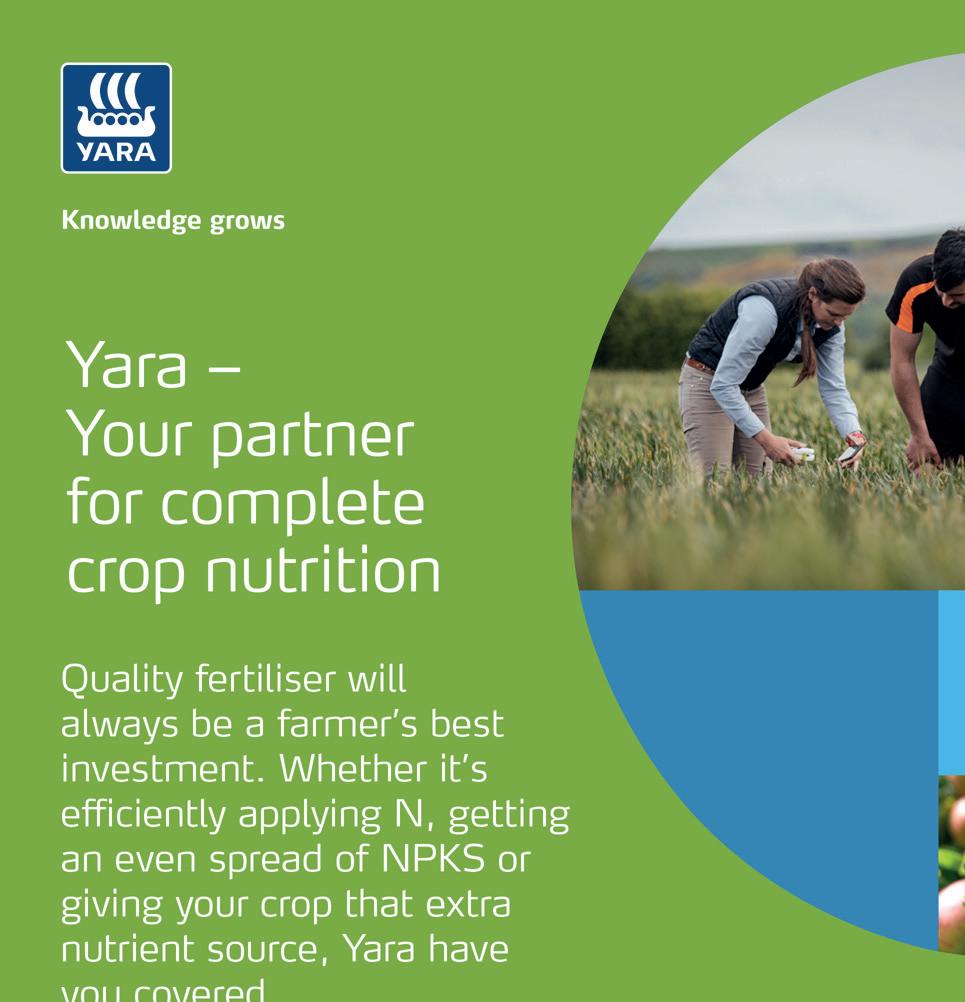




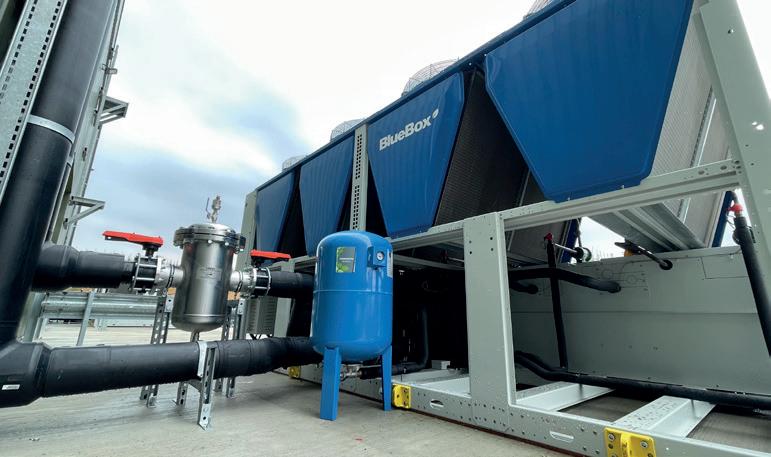




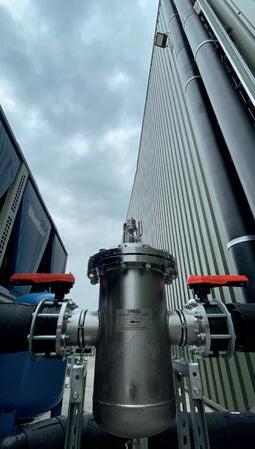
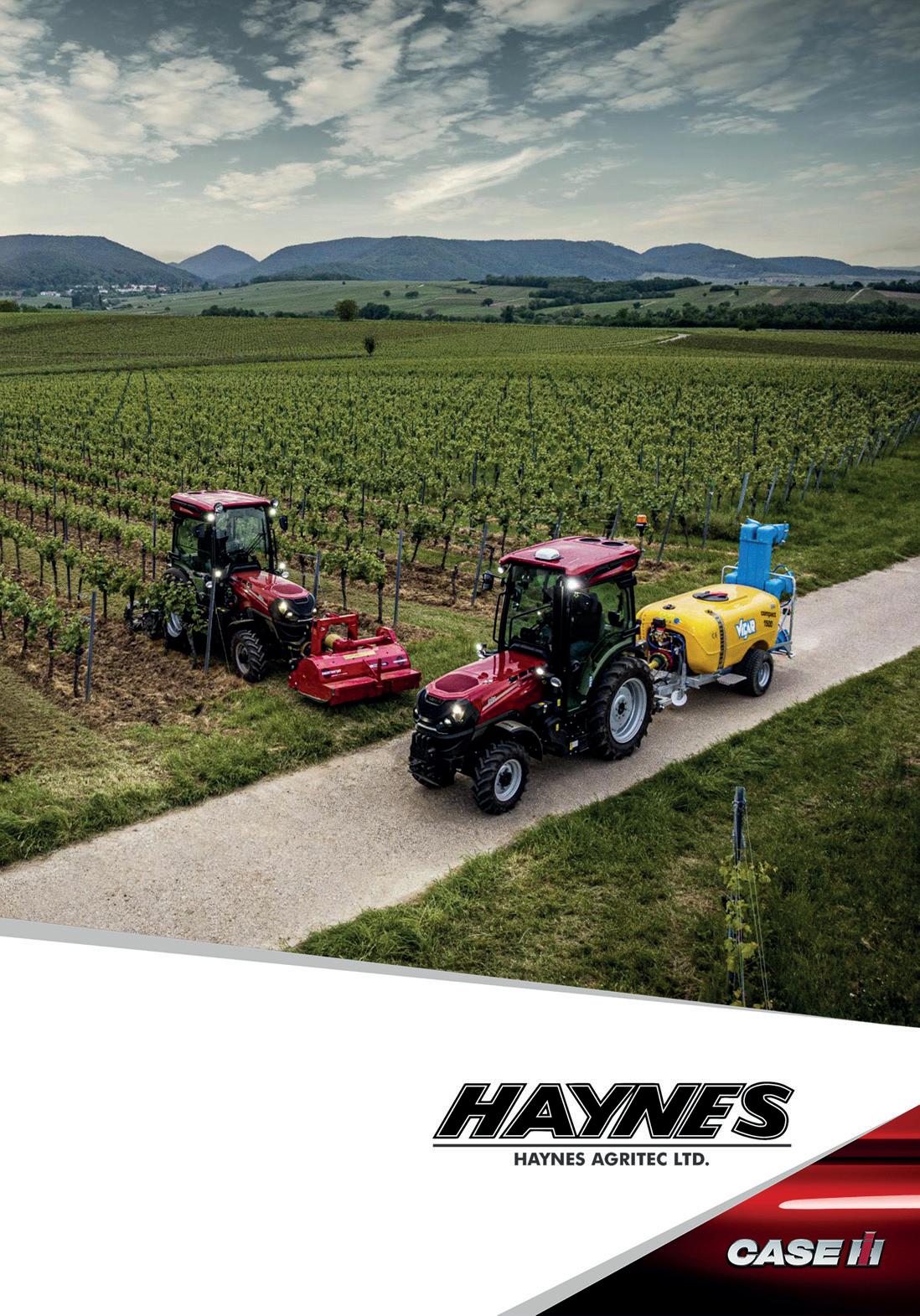

OCTOBER 2023 | WWW.SOUTHEASTFARMER.NET 30 OPEN PRE-REGISTER NOW AT: HADLOW.AC.UK/EVENTS Kent’s only rural and land-based college Saturday 4th November 10:00 am – 1:00 pm TEL: 01622 861989 www.orchardcooling.co.uk | info@orchardcooling.co.uk Rumwood Green Farm, Sutton Road, Langley, Maidstone, Kent ME17 3ND “Ecologicool RefrigerationSystems Specialists in controlled atmosphere stores Rapid chilling systems for soft fruit and fresh produce Secondary cooling systems with energy efficient defrosting using air source heat pump technology Retrofitting of existing high cost electrical defrost heaters with air source heat pumps Electrical engineers and contracting Refrigeration and Electrical service, maintenance, and breakdown cover Testing and certification to NICEIC Mains power solutions for distribution and installations Temperature controlled wine storage solutions using DX or Secondary refrigeration with heating options Qualified to install EV chargers Refrigeration gas leak detection systems F-gas compliance and record keeping Refrigeration system controls with remote monitoring Dave Reynolds Director 07418 005959 Sean Macoy Service Director 07872 557934 Rob Burbridge Director 07858 195633 Paul Kennett F.Inst.R Refrigeration systems 07903 462933 Heather Borland Admin 01622 861989 Knowledge where it counts is critical to providing the right cooling system to ensure produce is kept in excellent condition during storage. & Engineering Services
<< Sarah first attended the National Fruit Show in a pram, aged just four months. It was the start of a long relationship with something that has been – and will doubtless continue to be, despite her new role – an important part of her life.
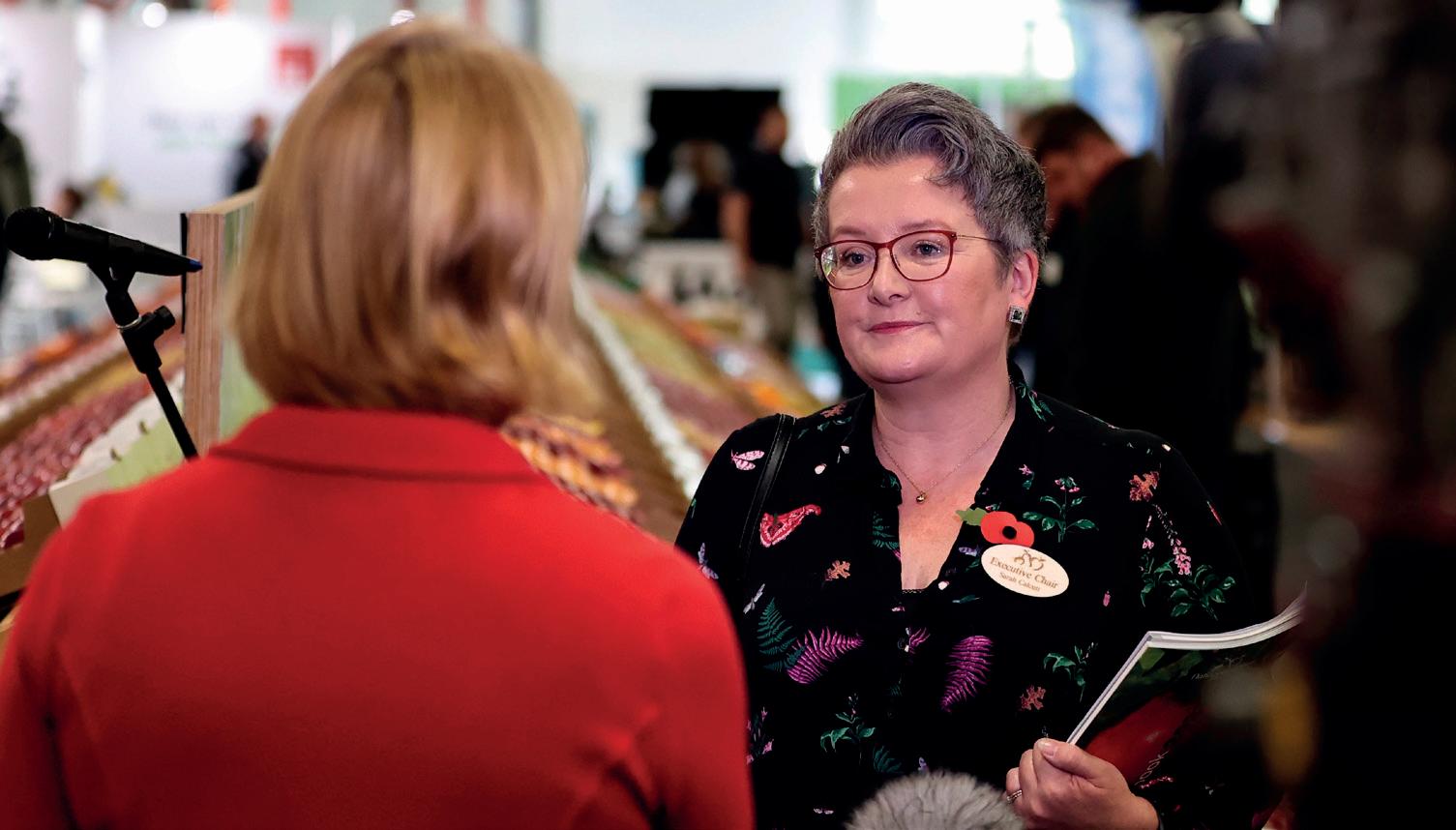
Her great uncle Stanley was also part of the team for many years and was on the committee when much-missed former South East Farmer correspondent the late Peter Tipples was in the chair. “They had a great friendship but it was a bit up and down over the years,” said Sarah. “The minutes indicate the odd row – usually over the hospitality budget for the show lunch!”
Sarah has a complete collection of show handbooks covering the events she has attended. One of the less obvious things she is proud about is how the look and feel of the book has become more professional in recent years.
“The handbooks include lots of the same family names recurring over the past 90 years,” she said. “And the classes have stayed essentially the same, too. Those who took part in 1933 would recognise the schedule today.”
Fruit played a part in bringing together Sarah’s parents, Susan and Bill Calcutt, who farmed Four Wents Farm in Goudhurst, where Sarah still has 60 acres, now farmed by tenants.
Bill’s uncle Stanley asked John Lawrence, who farmed at Hartley Dyke, Cranbrook, to plant an orchard of Conference pears for him, which is how John and Mary’s daughter Susan met Stanley’s nephew Bill – and the rest is history.
Bill’s mother – Sarah’s grandmother Biddy Tassell – and her sisters also all married local farmers, which is another reason why each National Fruit Show is akin to a family reunion. Either her father Bill or her maternal grandparents took her to the show as a youngster and she can recall helping to pack fruit samples for the show as a child.
Dad Bill, who died just before the show last year at the age of 84, had stewarded at the show in his twenties and continued to be a regular attendee and supporter.
Sarah was not encouraged to go into farming as a child and instead studied for a music degree in Cardiff and enrolled on a graduate training programme to become a buyer, still in Wales.
She recalled how she found herself back on the farm. “I was home for dad’s 60th birthday party, and towards the end of the evening he became rather emotional about the fact that there was no-one in the wings to take over from him if and when he retired,” she said.
“I took this as my cue, quit my job and was back home by Christmas pruning pear trees –the same pear trees that brought my parents together – in the snow.”
Sarah worked alongside her father for almost seven years, studying for a part-time horticulture degree at Hadlow College at the same time, although she admitted: “He never really managed to get his head around the idea of a woman running the farm.”
She then worked for Lantra, the land-based training and qualifications provider (“still in farming but supporting the economy and helping with training and skills”) before being invited to join Hadlow College as a skills adviser and later as business development manager.
“The first thing I did was organise a big party to bring industry leaders together as this was 2004 and everyone was working hard to save Hadlow from being absorbed into a larger organisation. I was part of a brilliant team that helped relink it with the community and made sure that what it was delivering was relevant,” she recalled. That same year she joined the MFSS committee.
Missing farming, Sarah then moved to work with top fruit marketing company Norman Collett, dealing with technical issues such as audit and quality control and working closely with Tesco and other large supermarkets.
In 2008 on 16 October, the day after that year’s National Fruit Show, she left the UK on her Nuffield Scholarship trip, looking at
effective marketing strategies for fruit across the United States and New Zealand.
When she joined the fruit show team Sarah’s ambition was clear, at least to her. “I wanted to turn it into a kind of UK-focused Fruit Logistica – a great trade show featuring the best technology, the latest innovations, great fruit and a chance to hear from all the people you wanted to listen to while catching up with friends and colleagues.
And looking back, does she think she succeeded? “Yes. We have got the fruit show to the size where it has real relevance to all fruit industry professionals and can do better for the industry and the growers. It was always my ambition to create a paid role at the head of the organising team and we achieved that two years ago.”
The number of trade stands at the Detling showground event has risen from 62 when Sarah joined the committee in 2014, to 98 this year, while the lunch has become a popular and well-attended dinner.
The fruit display has grown and contracted over the years, reflecting the fortunes of the industry but always stunning and the result of a great deal of enthusiastic work by growers, committee members and judges.
“It’s a myth that it’s hard to pack a sample of fruit,” Sarah added. “The challenge now is to get retailers involved again. Tesco and Waitrose have been involved in the past and it would be good to have more support from that direction.
Industry body British Apples and Pears continues to support the event, with chair Ali Capper due to speak at this year’s show on 1 and 2 November. “BAPL and MFSS working closer together has been a long-held wish of mine,” Sarah commented. “It’s started >>
WWW.SOUTHEASTFARMER.NET | OCTOBER 2023 31 TO ADVERTISE CALL 01303 233883 NATIONAL FRUIT SHOW PREVIEW
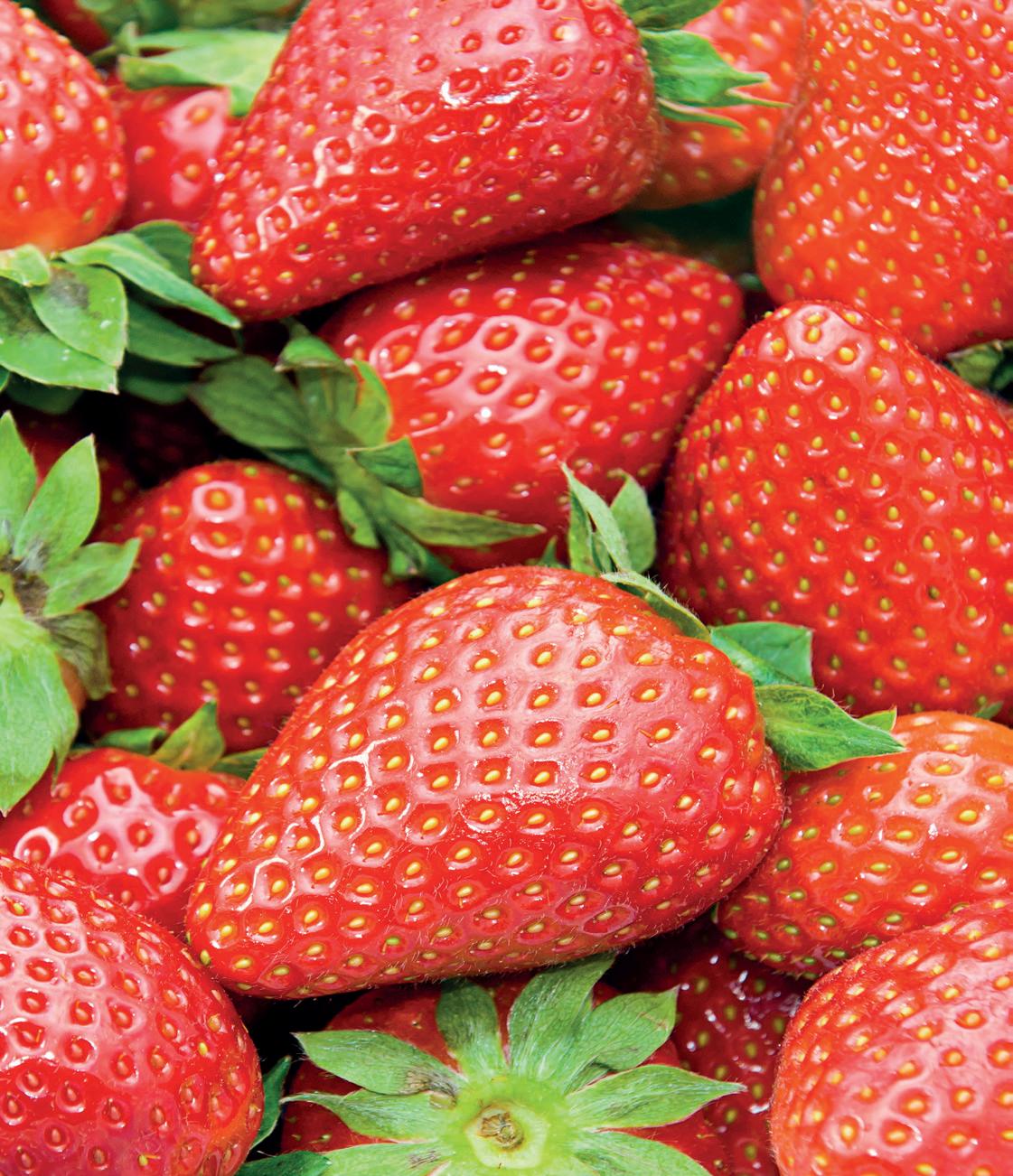
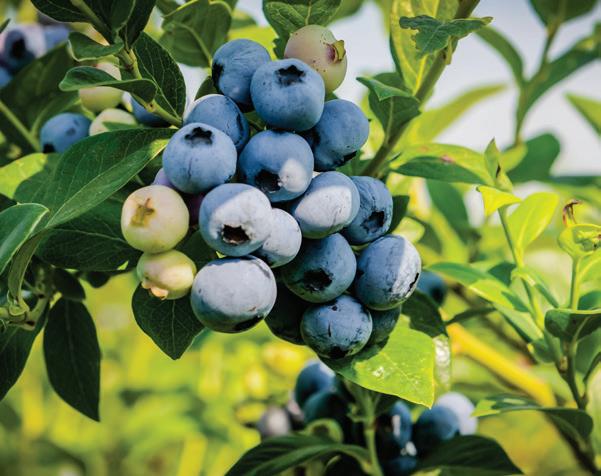




32 Precision crop nutrition Meet the team at The National Fruit Show visit stand S21 www.icl-growingsolutions.com “Building the Future of Farming and Industry” steel-framed building projects in the South East of England for over 25 years. Contact: Robert Kendall • Sean Chaplin • office: 01323 833086 • email: office@wealdenam.com
to happen, with a joint AGM planned for 2024, and it’s something that I am sure the new team will build on. The show generates a great deal of publicity for English top fruit.”
In 2014 the committee re-introduced the idea of taking a tray of fruit from the show to the Late Queen, the Prime Minister, and the Secretary of State, while the following year similar gifts were also taken to Mansion House and to the DEFRA headquarters in Smith Square.
In the past the committee had taken the fruit display on tour the week after the show, transporting it lock, stock and barrel to places including Chatsworth, Basingstoke, Harrogate and Kew. “It took a huge amount of work by a dedicated team, but it simply wasn’t sustainable, so we ended that and instead concentrated on the high-profile visits to Number Ten and the like.
“We began donating the display fruit to charities, ensuring that children could enjoy some of the amazing quality fruit. That is how I came across City Harvest, having been introduced by Teresa Wickham, former president of the National Fruit Show, via the Lord Mayor of London in 2020.”
The profile of the show has been raised in recent years, with national press coverage now common and appearances on shows such as
Countryfile. NFU President Minette Batters first attended in 2018 and has been to the show three times during her ten years in office.
DEFRA Minister of State Victoria Prentis opened the show in 2021, while last year saw a real coup when the guest of honour was The Countess of Wessex, now Sophie, Duchess of Edinburgh.
Sarah is particularly proud of the society’s education programme, set up by Sam Smith and now nationally recognised and utilised. Running now for almost 12 years, it links with the STEM (Science, Technology, Engineering, and Mathematics) curriculum and features a broad range of online teaching resources.
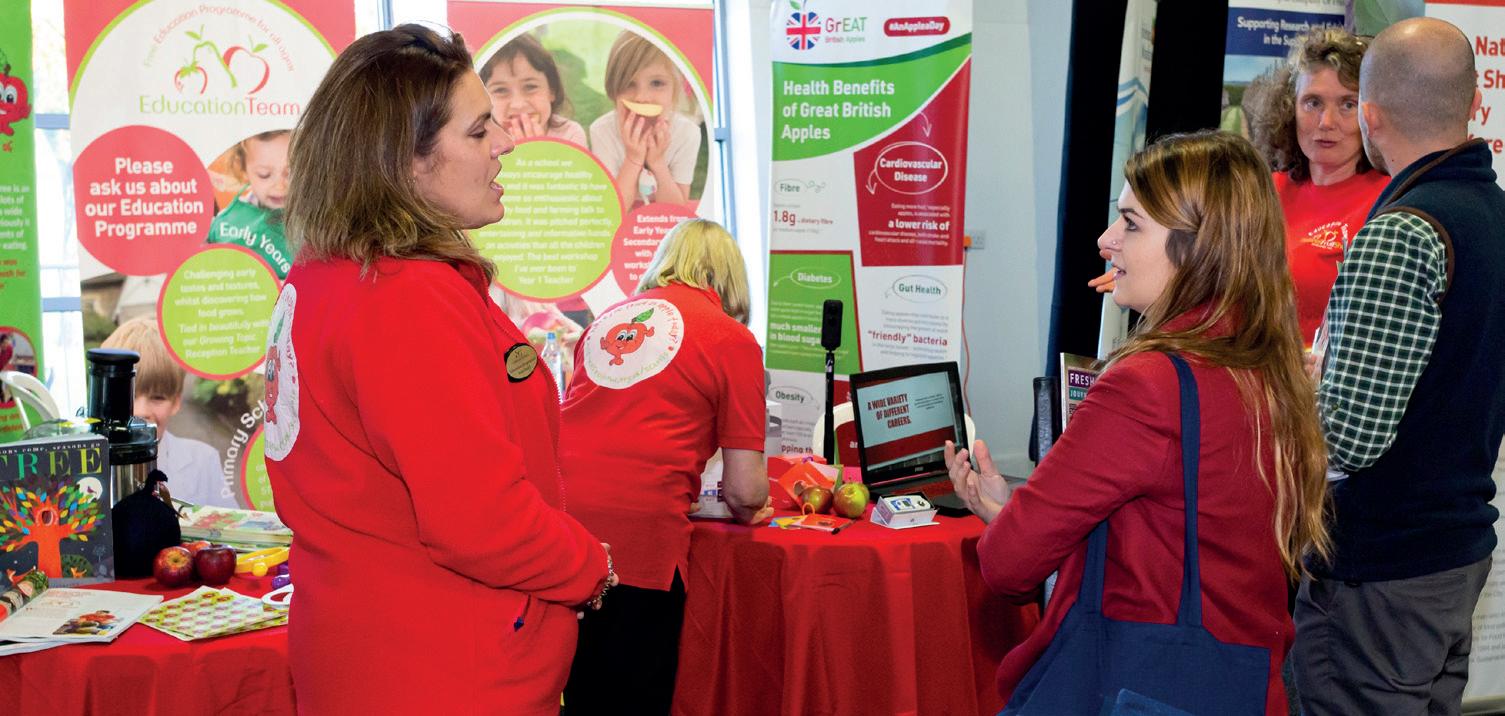
Alongside the successes, there have been challenges, not least in 2013 when hosts the
Kent County Agricultural Society were ‘between halls’, having been given permission to build a new venue to replace what had been a former Afghanistan field hospital.
“They put up a large canvas tent, but because it was cold we had to heat it, which meant that with rain outside and the condensation inside it became a miserably wet experience for everyone,” Sarah recalled. “There were puddles everywhere, along with the sound of exploding lightbulbs.”
But while that may have been a miserable experience, the future is exceptionally bright, in Sarah’s view. “The show is in very, very good hands. Chairing the society has been an incredible honour and will always be one of the greatest things I have achieved,” she concluded.
CUTTING THE COST OF DEFROSTING COOLERS
It has never been more important for businesses large and small to be energy efficient, both to highlight their environmental credentials and, increasingly, to offset the huge rise in energy costs affecting all consumers.
It’s an area that’s always been important to the team at Orchard Cooling Ltd, the Langley, Maidstone-based refrigeration company with a sustained focus on delivering the most efficient equipment possible on new cold storage and controlled atmosphere installations.
In a move that now seems to have put the experienced team well ahead of the game, Orchard Cooling developed and trialled an innovative approach to defrosting cold store coolers some four or five years back.
The warm fluid defrosting system, now fully up and running and tweaked even further ‘in the field’ over the past year, uses air source heat pump technology which cuts the cost of defrosting coolers by as much as 80%. It is vitally important to incorporate this new concept in any new glycol cooling systems working on chill storage or chill process.
“Suppliers like fruit growers and wineries have always had ambitions to be energy-efficient because it’s what the supermarkets expect, but these days saving money by using less energy is critical in a far more fundamental way,” said a spokesperson.
Not surprisingly, Orchard Cooling’s expertise in refrigeration and
associated electrical work has seen the company continue to grow over the past year, working on major contracts with two of the South East’s largest suppliers of supermarket fruit.
As well as the refrigeration, the company carries out electrical wiring, mains control panel installations and switchgear. The team looks after the entire electrical fit out once UK Power Networks has installed the main supply, and find that many clients like the fact that they can do the rest of the electrical work as well as the refrigeration.
While supporting the larger players in the top fruit world, Orchard Cooling is also making its mark among businesses in the rapidly expanding world of viticulture.
Orchard Cooling has an in-house service and maintenance team that can provide out-of-hours backup when required and focuses on using eco-friendly secondary refrigeration systems. The company can still install direct expansion (DX) refrigeration systems using modern, more efficient refrigerants.
The team is proud of the bespoke, customer-focused solution provided to all clients, whether well-established names or newer faces. It offers a full range of refrigeration and electrical services and is always looking for ways to make systems more efficient in order to keep clients’ costs down. Talk to Orchard Cooling at the National Fruit Show Stand S37.
WWW.SOUTHEASTFARMER.NET | OCTOBER 2023 33 TO ADVERTISE CALL 01303 233883
NATIONAL FRUIT SHOW PREVIEW
<<
The Education team
START OF TERM HAS ARRIVED
Alan Johnson, curriculum manager for agriculture, reports.
This is always an exciting time for all concerned in the preparation and build up to the new academic year. It is also important that we provide our new students with the information they require before they arrive at college to enable them to take part in the activities we have on offer.
Through meeting Plumpton staff and seeing our excellent facilities and resources first hand, students are able to appreciate fully the benefits of the Plumpton College experience. Few other colleges offer such wonderful surroundings and such caring, supportive and dedicated staff that will enable students to achieve their full potential.
We are proud of our strong links with industry, which, coupled with our specialist facilities and staff, will help our students develop the skills and knowledge that will provide them with the best possible start to their agricultural career. Many of our former students tell us that their time at Plumpton was not only enjoyable but changed their lives.
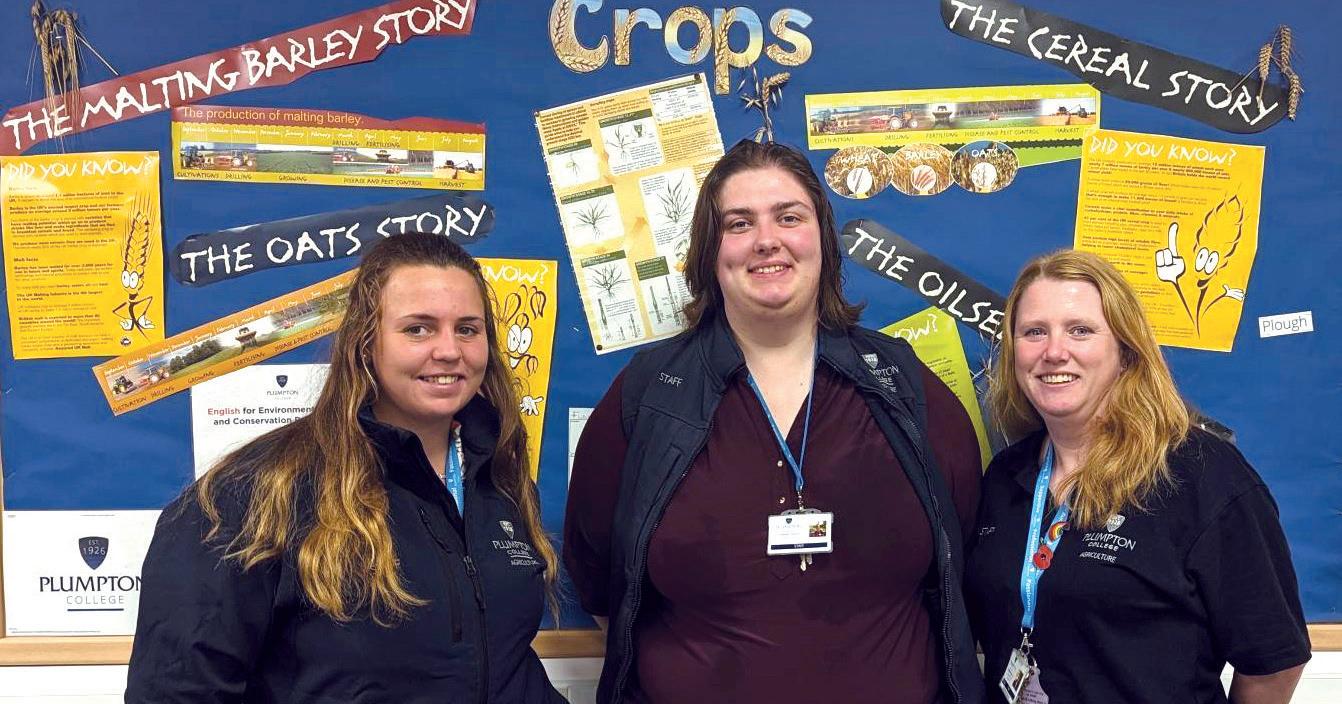
We are delighted to have three new lecturers who have joined the Agriculture team; they summarise their careers to date below.
LINDSAY HAYNS
I started my agricultural career at the age of 16, following in the steps of the level 3 students I teach now. I managed to graduate from my local agricultural college with a distinction. I felt I needed to gain further experience before starting my degree, which led me to work on a few farms, lambing, milking and calf rearing across the UK for a year.
I then began my degree in agriculture with animal science at Aberystwyth University where I enjoyed three years, (half of which was affected by Covid-19) and finished my studies with a first. During my degree I worked the
holiday periods at dairy farms. Towards the end of my degree I was exploring my career options and trying to decide what type of job I would like to do within agriculture. I started applying and received three job offers from across the South of England. I ultimately settled on committing to teach agriculture at Plumpton College as I thought it was an exciting place to be, with a specific attraction to the level 3s having a year in industry to gain commercial skills.
ELLIE HUSK
I have been involved in livestock farming all my life and a keen member of the Young Farmers since 2016. I studied for a level 3 extended diploma in agriculture at Hartpury. For industry experience since 2017 I have worked on the Duke of Norfolk’s estate and at Ashford livestock market. I am also in the process of developing my own flock of sheep.
I am really pleased to be teaching at Plumpton College. It is a great opportunity to help further develop the next generation’s knowledge of farming. I am pleased to be predominantly teaching practical lessons as I am able to pass on my knowledge to these willing students. Plumpton offers great
FIND OUT MORE
At Plumpton College we have apprenticeships available at level 2 and level 3, with a potential start at any time of the year, and we are currently recruiting for both levels. Talk to our team to find out more by phone or email: Business@plumpton.ac.uk
facilities to help introduce the next generation to best farming practices, and with best teaching practices I am looking forward to my future here at Plumpton.
STACEY INGAMELLS
I discovered agriculture when I was on a working holiday in Australia. I was there for a year and worked with beef and sheep, as well as packing bananas and picking watermelons. When I returned home I decided I wanted to study agriculture and attended Plumpton College, studying for the three-year national diploma as a mature student and achieving a distinction.
Whilst I was at Plumpton I worked on a dairy and sheep farm, which I thoroughly enjoyed. Subsequently I have been working in the education sector for the past 10 years before joining Plumpton College. I very much enjoy working at Plumpton; it’s what I wanted to do when I was a student here it’s so good to have the students back keen and willing to learn.
Further information can be found on our website: www.plumpton.ac.uk/business-services/apprenticeships-for-employers
OCTOBER 2023 | WWW.SOUTHEASTFARMER.NET 34 EDUCATION
SARAH CALCUTT Chair, National Fruit Show


Last week saw the annual launch of the NFU’s Back British campaign, aimed at retailers, politicians, and consumers and designed to put British-produced food at the top of everyone’s shopping lists.
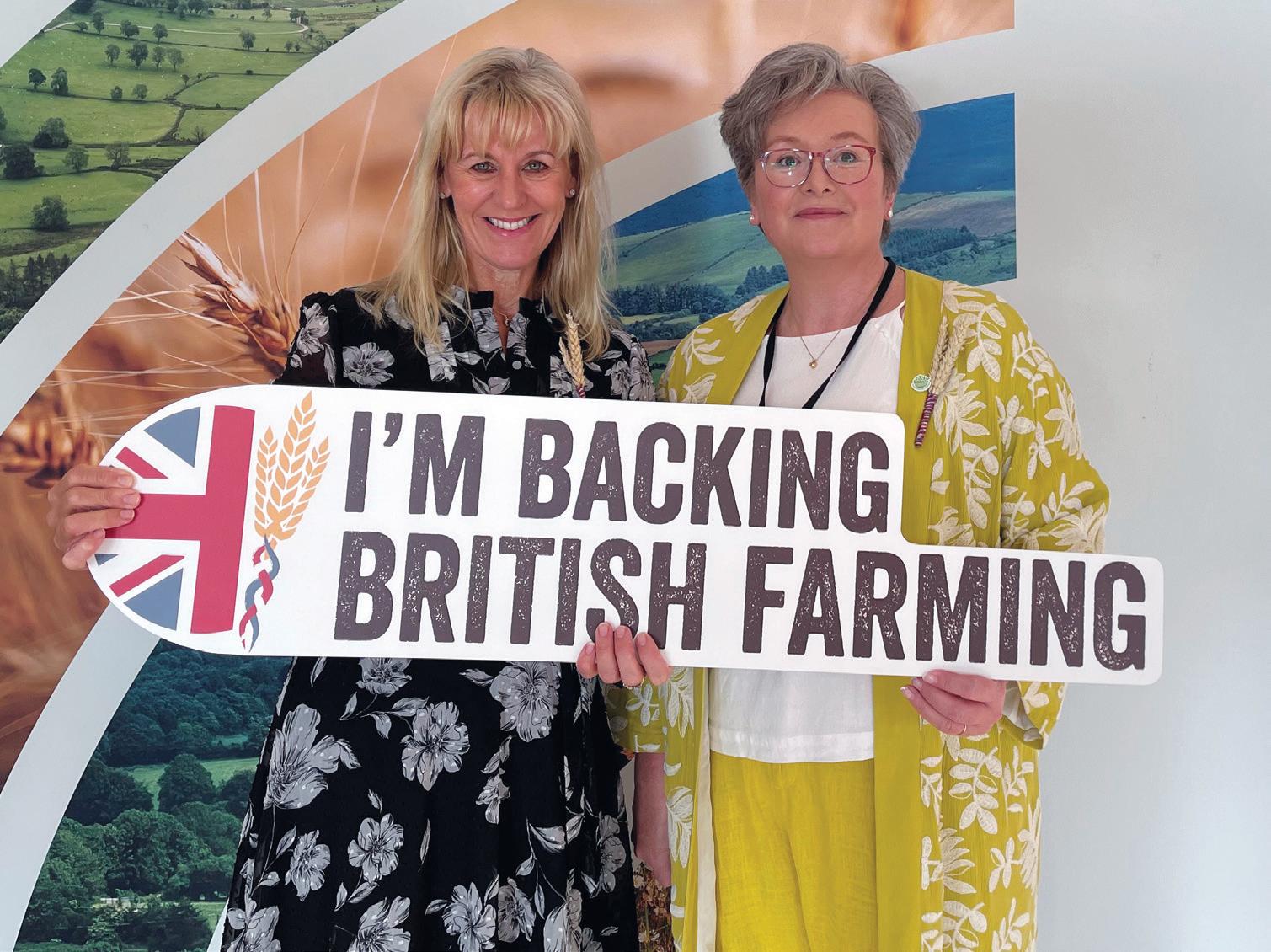
UK producers are world beating, with high standards and phenomenal products rich in nutrients and of a benefit to the economy at every level. But not all of it makes it to tables; a proportion is left behind or rejected and has historically formed part of the enormous volume of food sent to landfill or energy production.
My reason for being at the launch? Well, City Harvest was announced as the NFU membership’s farm gate waste partners. Using the simple specification If you would eat it, we will collect it, we have pledged to collect from anywhere in the country, returning bins or off hiring crates, ensuring that no good food goes to waste and that hungry people in all the major cities of the UK get the food they so desperately need.
A meal cooked with British ingredients has values at every level; excellent nutrition, the care of the environment in which it is produced and the environmental benefits of local food, not imported or manufactured meals.
NFU President Minette Batters also shared the progress of the NFU’s lobbying to get a Buy British button added to retailers’ online shopping portals, enabling shoppers to sort available lines by placing home grown/ produced products at the top of the options. Backed by Prime Minister Rishi Sunak, negotiations with retailers are ongoing and the mood seemed positive that greater visibility and branding of British lines will be seen soon. Also speaking at the event was the Secretary of State Terese Coffey. While she might not be the most popular incumbent of the role, I have some sympathy for her; while Minette was speaking everyone was silent and listening to every word, but when the Minister spoke a number of private conversations and negative commentaries rumbled around the room.
How are we ever to get the focus of our government officials if we can’t be polite? To have to ask a senior, elected officer of the NFU to be quiet when the secretary of state was

TAKE SELFSUSTAINABILITY SERIOUSLY

speaking is shameful (and no, it wasn’t one of the southern elected chairs).
Ms Coffey spoke about the targets being set for export, the challenges of transitioning out of Basic Payments, the support being offered for the new pick-and-mix range of options within the Environmental Land Management scheme and supporting productivity, as well as re-announcing the £50m barn solar initiative. She also spoke about the need to change the abattoir situation, reminding those present of the £4m fund to aid the establishment of small and mobile abattoir units to encourage growth which is good for animal welfare.
Once the secretary of state had left it was the turn of the Shadow Secretary, Steve Reed. The atmosphere was a fantastic example of how incredibly early positioning ahead of the election has begun.
The mood in the room changed, he had the attention of the audience and he very clearly knew Minette and the NFU team well. Wellbriefed and erudite, Steve spoke about his drive for Labour to be the party for farmers, celebrating the very best of food and its producers. He said it was his job to scrutinise government and that he had found them lacking.
His priority list:
1. Ensuring fairer trade is open to British farmers, removing trade barriers with the EU, bringing in trade deals that will not disadvantage British farming
2. Supporting British production by public procurement, with a target of 50% of volume
3. Treating food security as a national security issue.
WWW.SOUTHEASTFARMER.NET | OCTOBER 2023 35 TO ADVERTISE CALL 01303 233883
FOCUS ON FRUIT SARAH CALCUTT
Minette Batters and Sarah Calcutt
SOUTH EASTFARMER
BESTTRADESTAND
REVERSIBLE CHAMPION
OVERALL VINTAGE CHAMPION
CONVENTIONAL CHAMPION
SOUTH EASTFARMER
RUNNERUPBESTTRADESTAND
OVERALL CHAMPION
OVERALL CLASSIC CHAMPION
OVERALL COMMERCIAL CHAMPION
HORTICULTURAL CHAMPION
45
Rommey Marsh Ploughing & Cultivation Society
TRACTOR ENTRIES RECORD ATTENDANCE
Forty ploughmen enjoyed glorious sunshine and good conditions for ploughing at this year’s Rommey Marsh Ploughing & Cultivation Society match, held at Brenzett Green on the first Sunday in September.
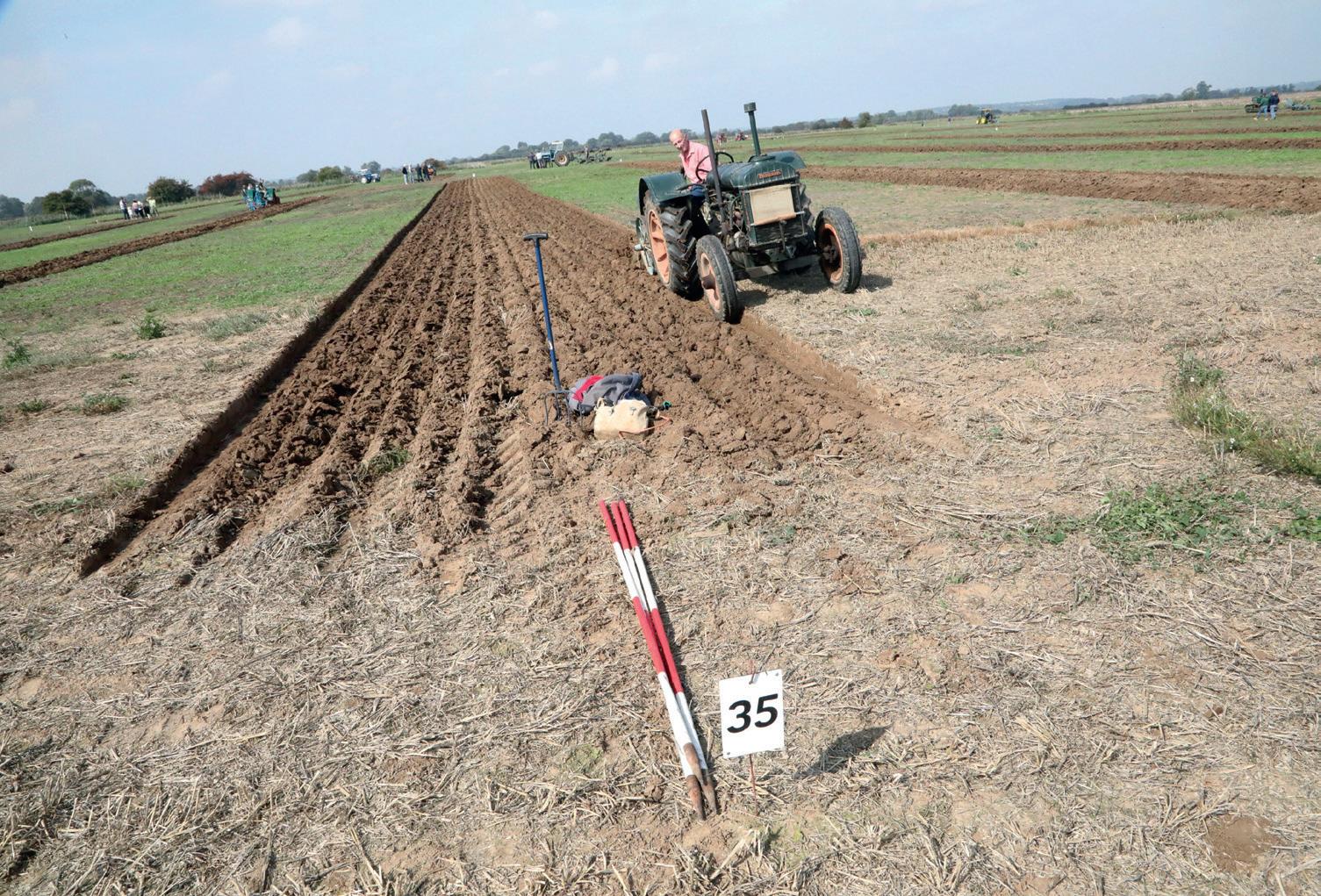
A record attendance, along with a record number of entries for the dog show, made for a great day all round, with steam ploughing one of the major attractions.
“Anyone organising these matches knows what a lot of work goes on beforehand and we benefited from having a keen, younger committee this year helping to put Romney
OVERALL CLASSIC CHAMPION
RESULTS
Overall Champion: J Dungey
Reserve Champion: I Linch
Semi digger: B Young
Classic: B Marsh
Vintage mounted: I Hogben
Vintage Trailer: J Dungey
Novice: E Lovejoy
Reversible: J Braiden
Best work done by a local ploughman: P Batt
East Grinstead and Three Counties
The East Grinstead and Three Counties Ploughing Match on 9 September was held at Newhouse Farm, Tandridge, by kind permission of Knightwood Trust Farms.
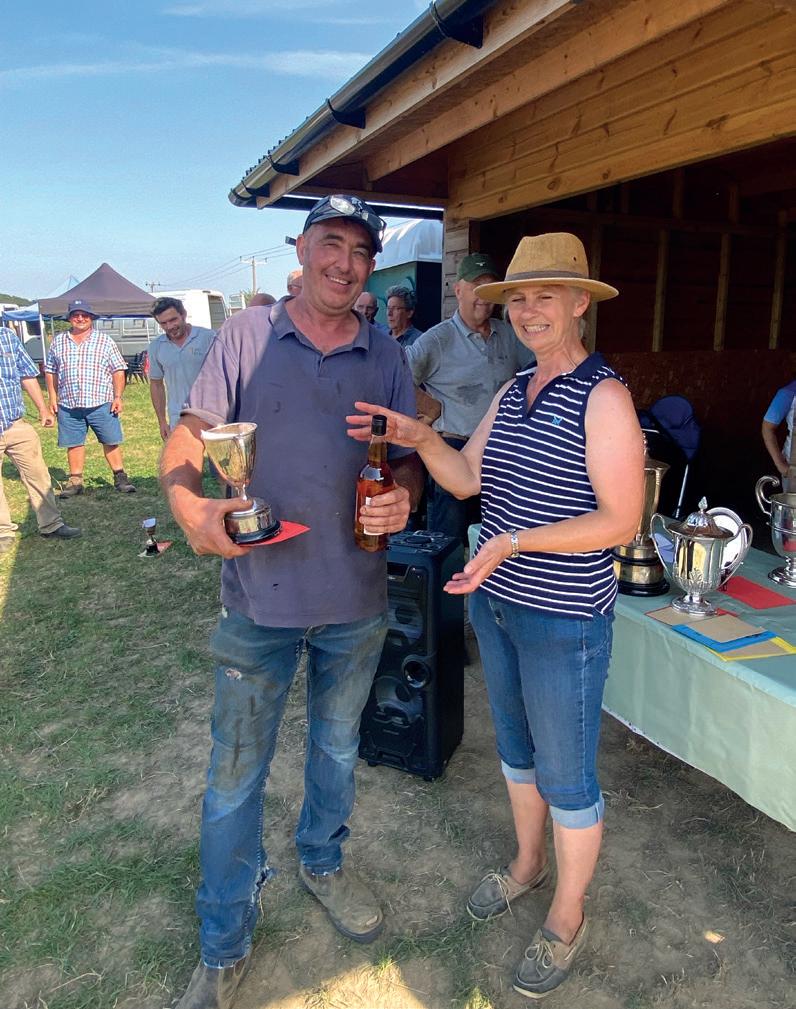
A good number of visitors enjoyed watching 45 tractor and two horse ploughing entries along with six hedge cutting entries. The cereals and children’s classes were once again a great success.
The organisers would like to thank the judges, stewards, sponsors and committee for all their hard work and support.
RESULTS
Champion: R Lawrence
Reserve Champion: M Butler
Premier reversible: S Peacock
OVERALL VINTAGE CHAMPION
CONVENTIONAL CHAMPION
SOUTH EASTFARMER
RUNNERUPBESTTRADESTAND
OVERALL CHAMPION
OVERALL COMMERCIAL CHAMPION
HORTICULTURAL CHAMPION
Open tractor and reversible ploug: M Butler
Open tractor and conventional plough: J Dyer

Classic ploughing: P Corp
Vintage tractor and trailed plough: R Lawrence
Vintage tractor and mounted plough: P Peirson
Pairs horses: I Williams
Best work by a local ploughman: G Butler
OCTOBER 2023 | WWW.SOUTHEASTFARMER.NET 36 PLOUGHING MATCHES
Champion Rob Lawrence is pictured with Claire Roberts from competition hosts Newhouse Farm
J Dungey
Ed Lovejoy
Marsh on the map,” commented society secretary Diana Wimble.
Photos: Peter Love
RECORD-BREAKING CROWD IN STUNNING WEATHER
West Grinstead and District Ploughing and Agricultural Society



Stunning early autumn sunshine shone on the West Grinstead and District Ploughing and Agricultural Society’s annual ploughing match and show, kindly hosted by John and Alison Ford at Priors Byne Farm, Partridge Green, West Sussex.
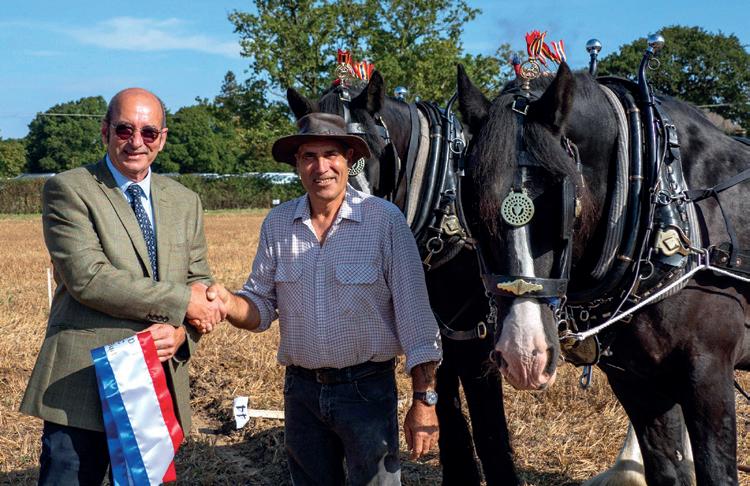
Society Secretary Rowan Allan commented: “It was a super day blessed by stunning early autumn sunshine, with a record crowd enjoying this wonderful site in the heart of the society’s area with panoramic views across the Sussex Weald to the South Downs.”
Thousands of visitors from across Sussex and adjoining counties enjoyed the show, with nearly 60 vintage and modern tractor and plough combinations competing, along with three teams of horses, an impressive steam engine display, old threshing machines and other steam engines.
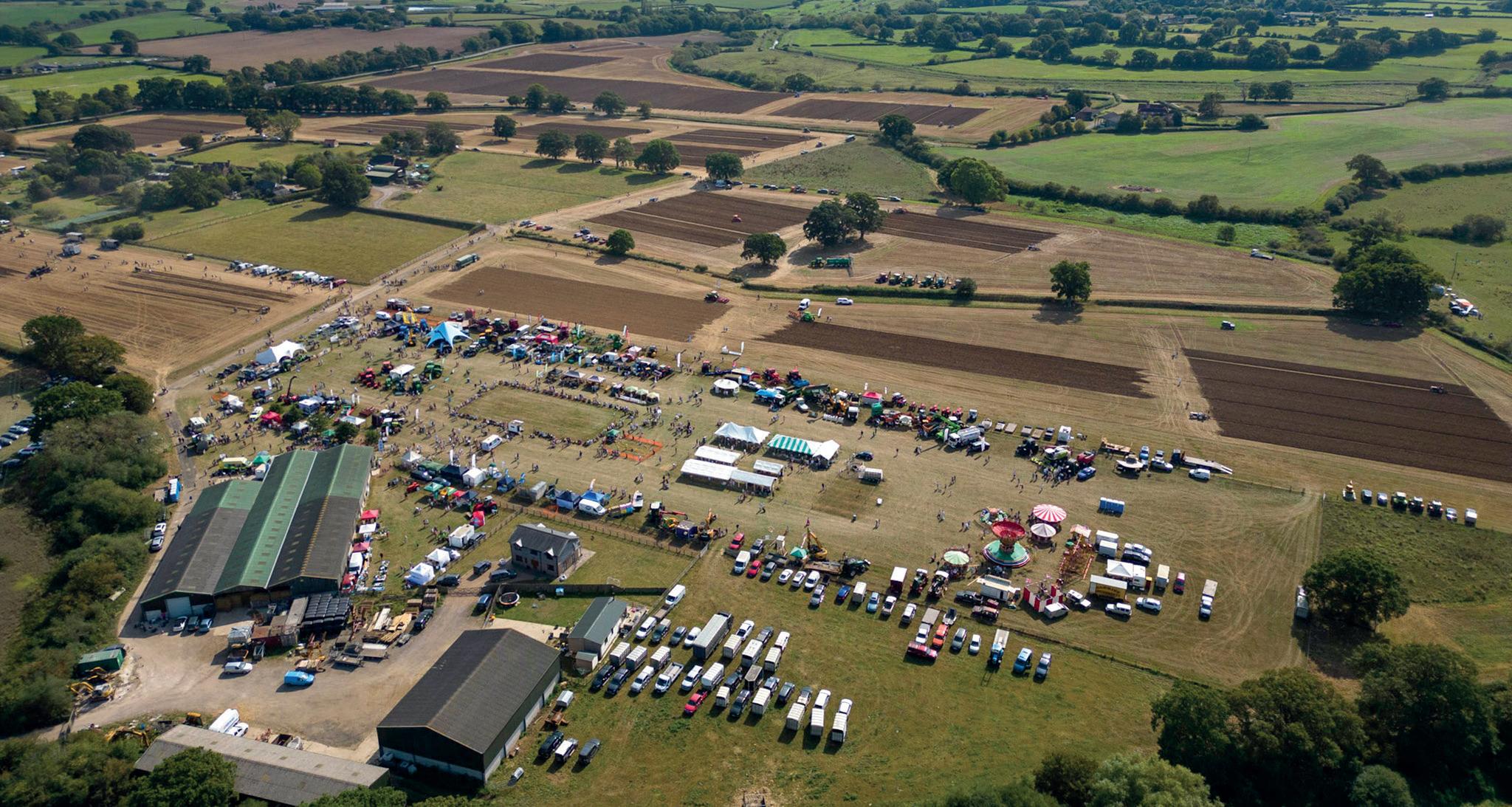
Overall Champion and Vintage Champion was Gary Rutter from Waterlooville, with a 1941 Fordson tractor and Ransomes two-furrow plough.
Rowan went on: “Brinsbury College and other local farmers worked hard at preparing their cattle for the show ring, including many
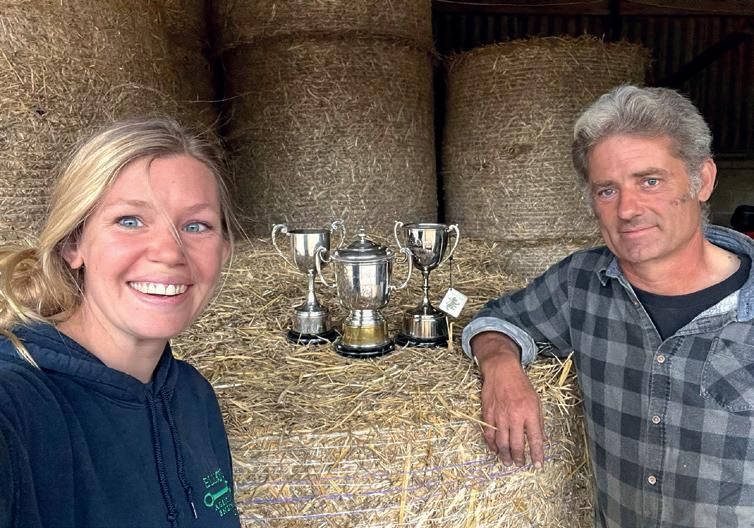
calves for the young persons’ handling classes. There was also a number of sheep classes and the ever-popular children’s lamb-handling class split into three age groups.
“There was a bumper range of trade stands and exhibits, both large and small and with lots of delicious local produce stalls, plus a colourful range of domestic and children’s classes alongside the field produce entries.”
Harris’ funfair entertained young and old, while the main ring included the livestock show, a falconry display, a tractor and plough demonstration, a well-fought tug-of-war which finished with a pull-off enjoyed by a flock of young children, a parade of the Crawley and Horsham hounds, terrier and ferret racing, a gun dog scurry and a clay pigeon shoot.
Frans de Boer, the society’s chairman commented: “Great thanks are owed to all the committee and supporters for their hard work in organising a very successful day and a super site.”
The society holds an extensive range of field competitions through the year, while charities being supported this year include the Farming Community Network, the Stroke Association


and Kent, Surrey and Sussex Air Ambulance. The society also supports the community through its bursary scheme and local schools education awards.
RESULTS
Champion: Gary Rutter
Best Novice: Stepehen Ulrich
Best Ploughman (Reversible): Tim Foster
Premier Ploughing: William Tupper
Horse Ploughing: Tony Parks
Best Vintage Ploughing (Trailed): Gary Rutter
Best Vintage Ploughing (Hydraulic):
David Hoare
Best Classic Ploughing: Phillip Corp
Champion Vintage Ploughing: Gary Rutter
WWW.SOUTHEASTFARMER.NET | OCTOBER 2023 37 TO ADVERTISE CALL 01303 233883
Gary Rutter
REVERSIBLE CHAMPION CONVENTIONAL CHAMPION OVERALL CHAMPION HORTICULTURAL CHAMPION
PLOUGHING MATCHES
East Kent
TOSSING THESHEAF CHAMPION
OVERALL RUN-ROUND CHAMPION
SOUTH EASTFARMER
RUNNERUPBESTTRADESTAND
SOUTH EASTFARMER
OVERALL CLASSIC CHAMPION
BESTTRADESTAND
OVERALL COMMERCIAL CHAMPION
REVERSIBLE CHAMPION
OVERALL VINTAGE CHAMPION
CONVENTIONAL CHAMPION
SOUTH EASTFARMER
RUNNERUPBESTTRADESTAND
OVERALL CHAMPION
SUNNY SKIES
CONVENTIONAL CHAMPION
Weald of Kent
OVERALL CHAMPION
HORTICULTURAL CHAMPION
The Weald of Kent Ploughing Match took place under sunny skies at Reed Court Farm, Hunton Road, Chainhurst, by kind permission of Fridays Ltd.

RESULTS
Reversible Champion: R Bulpitt
Conventional Champion: I Linch
Conventional ploughs: P Baseby
Classic class: I Linch
Vintage A open vintage trailer ploughs: A West
Vintage B open vintage trailer ploughs: T Offen
Open vintage mounted ploughs: M Jones
Open vintage mounted ploughs: P Wylie
SOUTH EASTFARMER
Open reversible ploughs: R Bulpitt
Local reversible ploughs: M Tong
BESTTRADESTAND
Single furrow horticultural: P Harris
Novice class: E Watson
OVERALL CLASSIC CHAMPION
OVERALL COMMERCIAL CHAMPION
HORTICULTURAL CHAMPION
OVERALL VINTAGE CHAMPION
SOUTH EASTFARMER
RUNNERUPBESTTRADESTAND
OVERALL CHAM
OVERALL C CHAM
Guy Eckley, chairman of the Weald of Kent Ploughing Match Association, commented: “We had a terrific turnout at this year’s match, with a good number of ploughs entered and a public attendance of around 4,000.
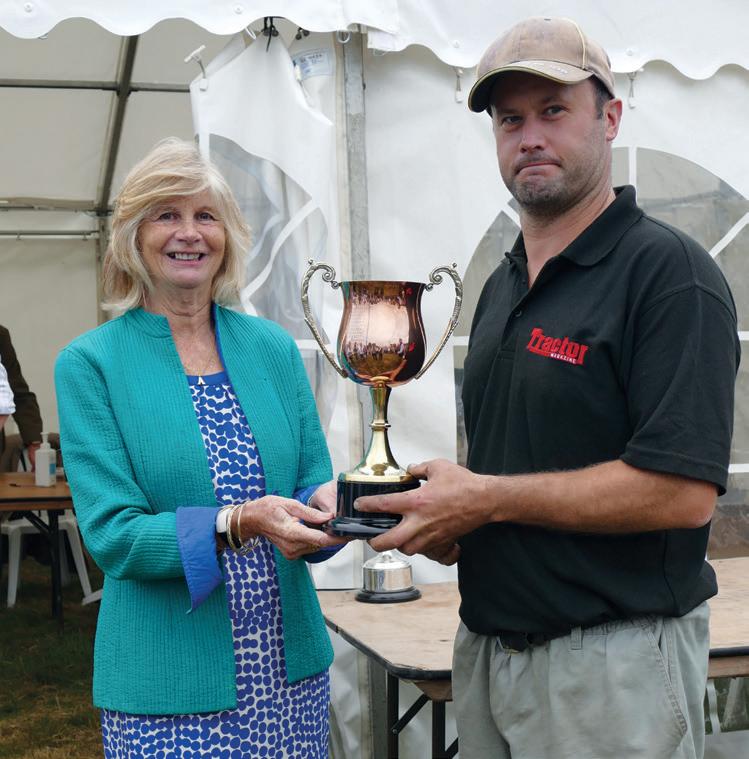
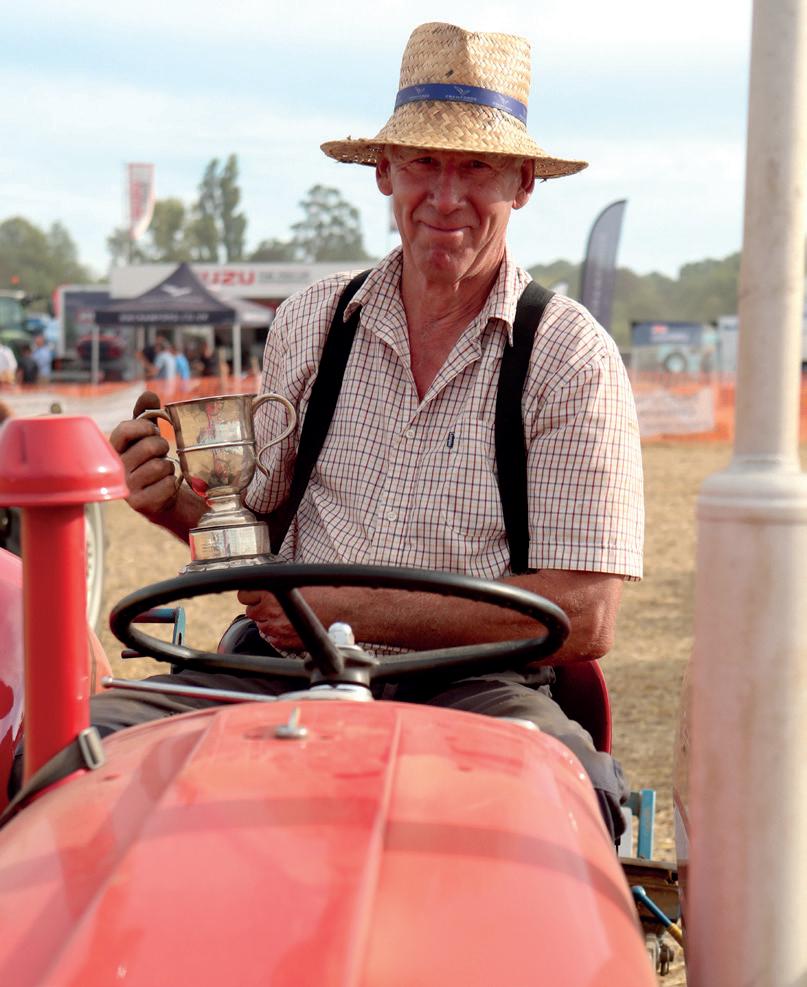
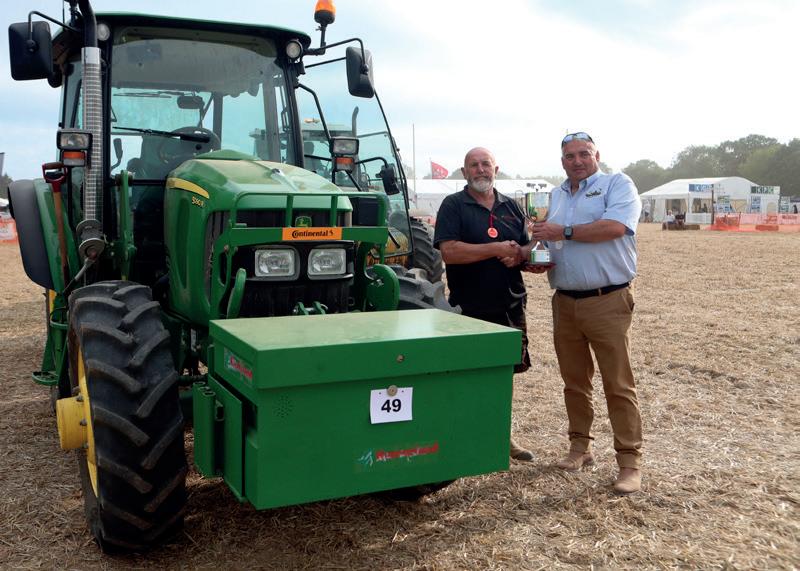
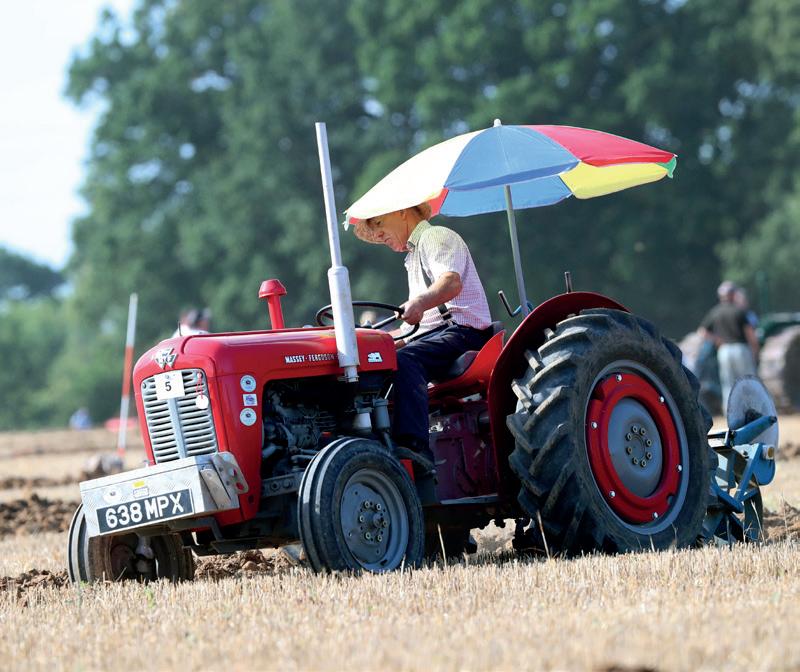
REVERSIBLE CHAMPION
“Congratulations to all the cup winners, who will receive their trophies on Wednesday 15 November at the final part of the match, the beer and hop competition at Marden Hockey Club, which is open to all and starts at 6pm.”
CONVENTIONAL CHAMPION
SOUTH EASTFARMER
BESTTRADESTAND
REVERSIBLE CHAMPION
OVERALL CHAMPION
OVERALL VINTAGE CHAMPION
CONVENTIONAL CHAMPION
Best Trade Stand sponsored by South East Farmer: Richard Thomas and Jo Forknall presenting six wines that featured top 100 at the Vineyard & Winery Show to Laura Nesfield of BTF Partnership
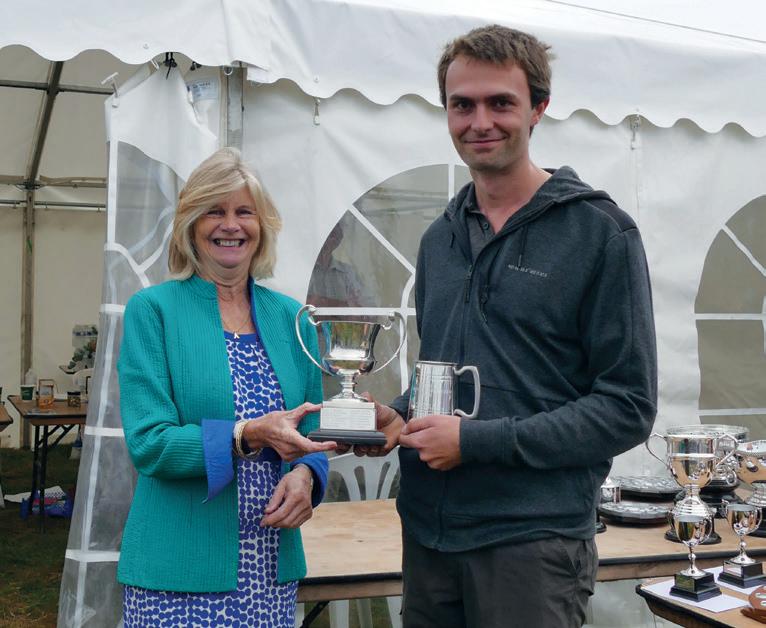
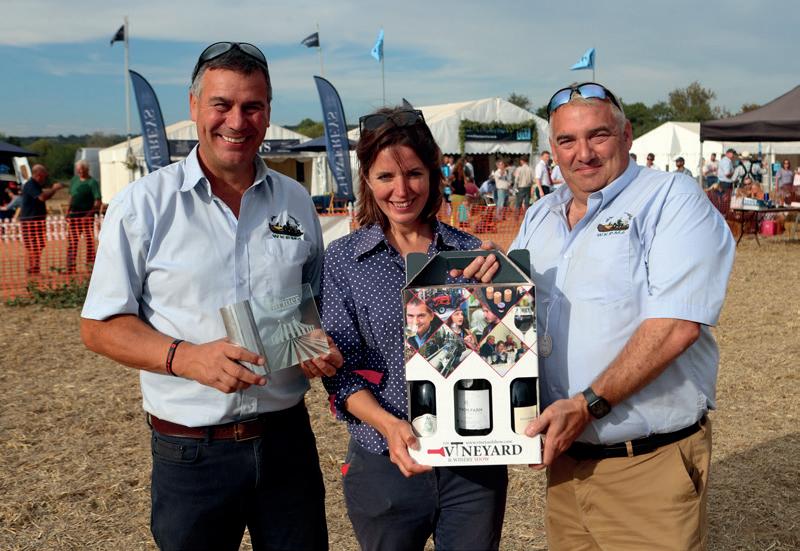
SOUTH EAS
HORTIC CHAM
RUNNERUPBES
OVER CHAMP
SOUTH EASTFARMER
BESTTRADESTAND
REVERSIBLE
OCTOBER 2023 | WWW.SOUTHEASTFARMER.NET 38
Photos: Gary Hawkins
Ian Linch
Mr Batchellor
Mr West
Ron Bulpitt
MER D
VINTAGE CHAMPION
Unlock your land
Since 2016, Unyoked has been partnering with landowners to diversify revenue by unlocking previously unused land for sustainable tourism.
Unlock your land
Unyoked builds and operates off-grid cabins.



We’re looking for hosts with properties within 1-3 hrs of major metro areas. Want to find out more? Apply now.
Since 2016, we’ve been partnering with landowners to diversify revenue by unlocking secluded nature locations for short stays.

We’re looking for hosts with properties of 100 acres or more, wIthin 2 hours of London, Manchester and Edinburgh. Want to find out more? Apply now.
www.unyoked.co/host
www.unyoked.co/host
Or text for a call back: 07361 590286
Phone Gus Kell: 0414 389 152
Images by Richard Gaston, Will Darkin, Daniel Casson
ELVED PHILLIPS ARABLE NOTES



As usual grain markets wait for no one. Brazil is seizing the opportunity to sell a lot of maize to China. Russia has about one third of the world’s supply of wheat and is literally dumping it on any country which will trade with it. Ukraine is trying to do the same, but with the added complication of having to avoid sea mines and missiles. Meanwhile its near Balkan and European neighbours are not willing to make the same mistake as last year by allowing the free movement of Ukrainian grain across their borders.
Some recent wheat sales, probably based on fictitious Russian floor prices, seem to be well below replacement costs. I would have thought the usual distressed Black Sea prices were low enough, without making short sales at these levels as well.
Elsewhere, Australian wheat crop estimates continue to fall as the weather complex El Niño builds in the Southern Hemisphere, yet Argentina is hoping to offset some of the Australian shortfall. We will have to wait and see. In the UK, wheat harvest estimates continue to be revised downwards as the true extent of the poor harvest weather is realised, especially in the later-combined areas.
A lot of wheat had to be cut at 20% moisture, with low bushel weights and sprouting taking their toll. When the wheat is finally dry, in many areas it will be well below last year’s yield. Winter feed barley fared better and, in many cases, has outyielded wheat. Some believe the total crop will be under 14 million tonnes. If so, our exportable surplus becomes very manageable.
The UK is facing fierce competition from Denmark and Germany into its traditional export homes of Ireland and Spain. Many
TWO-TIER MARKET
Northern UK countries have an unexpected surplus of feed wheat because of the failure of their milling wheat crops, so our feed wheat exports are not competitive currently. That said, if our ethanol production continues as it has started, that could lead to a wheat consumption of between 1.4 and 1.8 million tonnes, which would remove much of our surplus. The rally of crude oil prices should help this.
That may mean that, like a few years ago, we end up with a two-tier market where all the feed wheat north of Birmingham is required for ethanol and in the south it has to go to feed compounders or for export. Internationally, consumers lack cover after November and in the UK they need to cover all of January to June. This is why there is a more than usually high carry per tonne from now until then.
Feed barley looks cheap everywhere. Australia, having made up with China, has sold them one million tonnes for shipment up to December. China still wants more, but Australia doesn’t have the export capacity until the New Year, so France has resumed some export sales to China over the next few months. It looks like Russia, Ukraine and Australia have all the barley stocks, whereas North America and Europe don’t. We have the lowest world production and stocks of barley for 10 years!
So, I think our barley will have its day eventually. It is strange that Spain, after its disastrous growing season, is not taking the volumes of feed and malting barley that it was importing from us last year; so far, anyway.
UK malting barley prices have eased during the past month. Partly this is due to our maltsters coming to terms with the available quality and realising it’s commercially usable. Scotland has had a worse time of it, with distillers having to accept higher nitrogen than usual and high levels of skinned grain. The background is lower beer and spirit sales. A higher carry in of malt and malting barley also meant some maltsters had cover up to October.
The malting premiums are still historically very high. This is frightening maltsters, who think they should be lower, so if you have the quality there is nothing wrong with cashing it in, especially if you need to sell before Christmas. My view, however, is that it’s probable that if you add up the export sales already made and the supply agreements to be priced with continental maltsters, the UK may have already committed its malting barley export surplus up to June 2024.
I am absolutely certain, because of the lower crops in Scandinavia, France, UK and Germany, unlike this year there will be no carry out of malting barley in Europe from the 2023 to the 2024 crop. And that applies to milling wheat as well.
Lastly, some of the malting barley stored is already borderline on germination, with pre-germination, fusarium and split grain, so it will struggle to retain its germination. You know how to look after it, but inevitably more malting barley will be lost through the winter, so further reducing our surplus.
ELVED PHILLIPS Openfield OCTOBER 2023 | WWW.SOUTHEASTFARMER.NET 40
GRAIN STORAGE FERTILISER SEED T: 01264 321 595 www.openfield.co.uk
PROFOUND IMPLICATIONS
We all have to hope that the government’s recently announced delay in the roll-out of the Sustainable Farming Initiative (SFI) is not linked to its cooling on environmentalism generally. Desperate to improve his government’s chances in the General Election, PM Rishi Sunak has taken a good look at the recent Uxbridge and South Ruislip by-election, where the Tory vote held up remarkably well, due (it is believed) to voter anger at the extension of the Ultra Low Emission Zone charge into the constituency.
Before the Uxbridge result it had never really occurred to me that anti-clean air could become such a populist cause. This kind of environmentalism, I naively thought, is just common sense; we all live on this planet and, if we destroy it, we will all be the losers as a consequence.
But, post Uxbridge, it seems that the consensus regarding green policies has been shattered. If people in a constituency will vote in large numbers against a scheme that would immediately clean up the air everyone there was breathing (with the polluters paying the cost of the scheme), what chance is there of an electorate voting for policies with long term goals like net-zero carbon emissions by 2050?
The implications for UK farmers of this new political divide could be profound, as farming is right in the forefront of government environmental policies. How, for instance, will the CAP money that used to be spent on the BPS now be recycled? Michael Gove, when he was DEFRA secretary of state, set the tone for how farmers in Great Britain would be rewarded post-Brexit through the Environmental Land Management scheme (ELMS). Tax payers’ money would only be paid to farmers for ‘public goods’ such as improved on-farm biodiversity, cleaner water or reductions in greenhouse gas emissions like methane and CO2 from farms.
Much of the current interest in owning farmland is the excitement around expectations that farmers will be paid substantial sums to use some of their land for biodiversity net gain. Everyone who wants to, say, build a house, or factory, will need to pay a landowner to offset the impact of their development on wildlife if they can’t achieve a net gain on their own site.
I’ve been considering investing in min-till equipment on the arable enterprise, but on my limited acreage such a heavy outlay requires considerable faith that the money can be recouped through the incentives promised by ELMS. But my confidence has now been shaken, and, with arable commodity prices below break even, I’ve already decided to postpone my decision.
It has to be hoped that the Government’s slamming on of the proverbial brakes regarding commitments to net-zero 2050 and other nature-friendly policies is only a temporary aberration. But Sunak’s desperate electoral gamble has already done damage as everyone, farmers included, will now be more cautious about investing in the capital assets and technology necessary to bring about a net-zero future for the UK.

• Ultimate Soil Scanning – High definition in-field scanning of major field properties including pH, Organic Matter, Electrical Conductivity and Topography
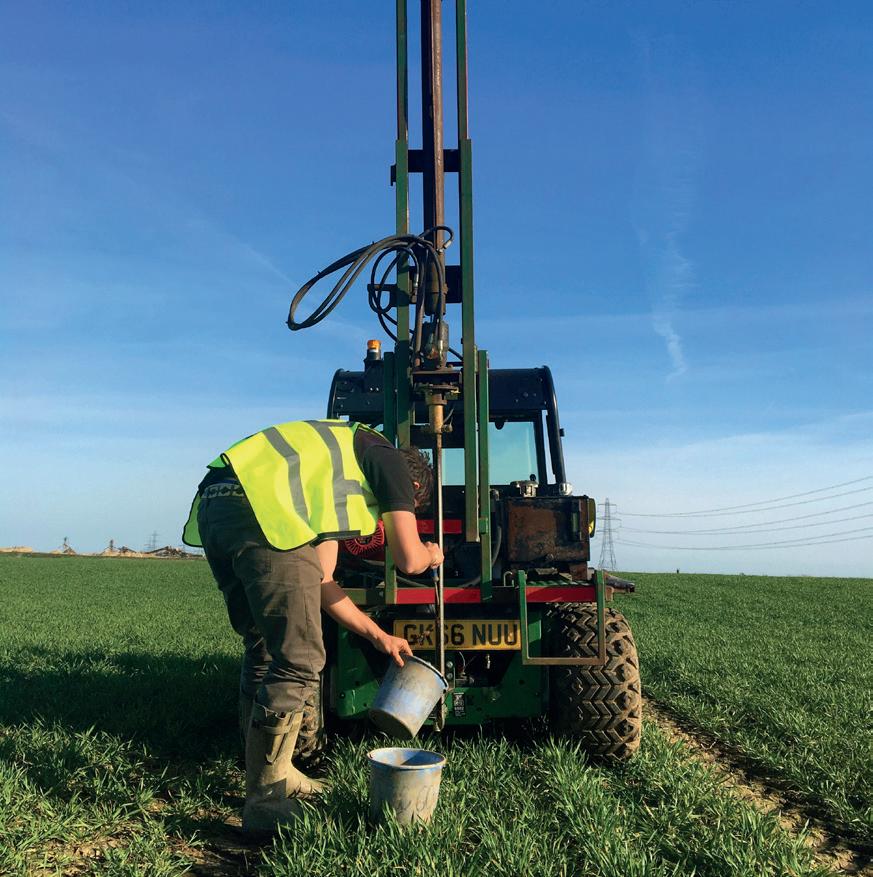
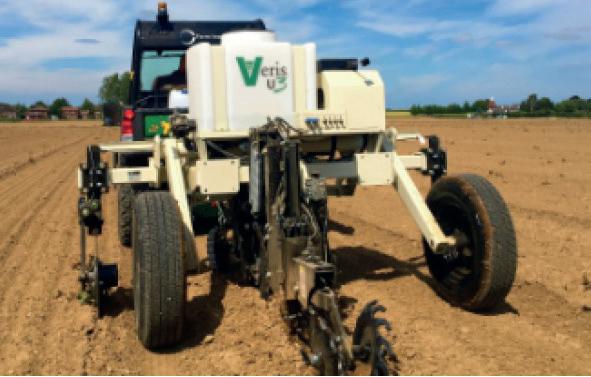
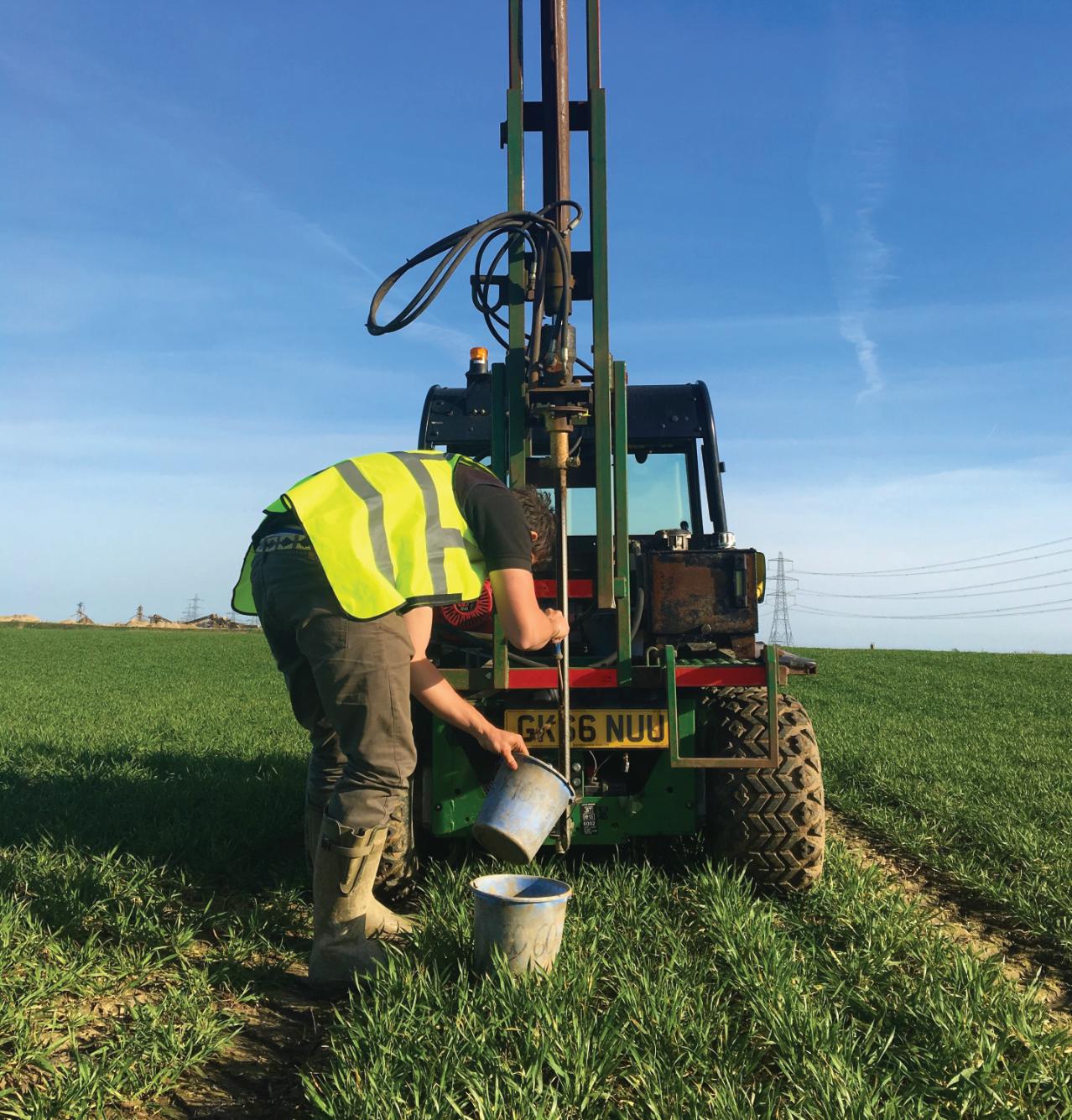


• Precision Soil Sampling and Mapping
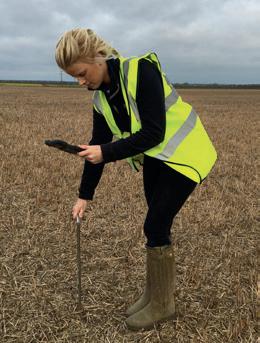

• Biomass Imagery
• Standard Soil Sampling – P, K, Mg and pH

• Potato/Pea Cyst Nematode Analysis (PCN)
• Deep Core Nitrogen Sampling
• Manure, Slurry and Product Analysis


• Lime supply and variable rate application
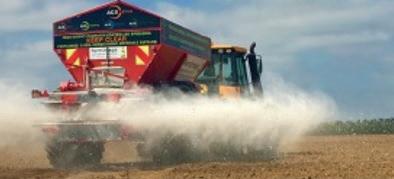
WWW.SOUTHEASTFARMER.NET | OCTOBER 2023 41 TO ADVERTISE CALL 01303 233883 STEPHEN CARR
STEPHEN CARR
Stephen farms near Eastbourne in East Sussex in partnership with his wife and four of his daughters. The farm has a pub, the Sussex Ox at Milton Street, which serves the farm's pedigree Sussex beef, Southdown-cross lamb and fruit and vegetables from the farmhouse kitchen-garden.
productssupplied, andspreadtoyourfarm. Offering20years’experience insoil servicestailoredforyouand yourbusiness Soilsmartsampling,GPSprecision, Verissoilscanning,NCore,Ph,PCN 01233 740247 enquiries@farmimage.co.uk www.farmimage.co.uk
PLACING PHOSPHATE DELIVERS CLEAR BENEFITS
Suffolk farmer Tom Jewers is one grower who has seen clear yield benefits from applying placement phosphate fertiliser in winter wheat over two consecutive years, giving him confidence to potentially expand its use across all 190 ha of wheat this autumn.
Mr Jewers, who hosts the Helix East demonstration, first tried placement phosphate fertiliser in winter wheat during 2021/22, after previously experimenting with starter fertilisers in spring crops.
A tramline trial in a field of KWS Extase first wheat, on clay loam soil, was direct-drilled with the farm’s Weaving GD on 30 September. Most was untreated, but two tramlines received different placement fertiliser products; 7 kg/ha of Primary-P, and 10 kg/ha of Crystal Green.
“We saw a clear visual response in crop establishment in autumn 2021, which we hadn’t seen previously with placement fertilisers in spring crops,” he said.

Yield responses over the untreated control (10.29 t/ha) were similar for both products, at 0.6 t/ha and 0.8 t/ha respectively.
Mr Jewers increased placement fertiliser use the following year to 150 ha, receiving some funding to support this via the Landscape Enterprise Networks project (www.landscapeenterprisenetworks.com) to help offset potential costs, such as depletion of soil indices.
He also conducted another Helix trial, applying 7 kg/ha of Primary-P across most of a field of Gleam second wheat, direct-drilled
ROB JEWERS
T: 07824 397942
E: rob.jewers@hlhltd.co.uk
Canterbury: 01227 830064 www.hlhltd.co.uk
on 14 October. One tramline was untreated, while a biological phosphate liberator product was applied to another.
Initial analysis of combine yield data from harvest 2023 indicates a potential 2 t/ha uplift in the Primary-P treated field over the untreated, with distinct differences visible on the yield map (see image).
“It’s only provisional combine yield data, which needs to be validated in Omnia, but it is really promising,” said Mr Jewers. Placement fertiliser trials elsewhere in Helix have also shown good yield responses in recent years, albeit with some variability between sites.
REDUCING PHOSPHATE
Hutchinsons crop nutrition specialist Rob Jewers said placement fertilisers offer an effective way of reducing total phosphate use and delivering financial and environmental benefits, and are being increasingly supported by water companies (see box).
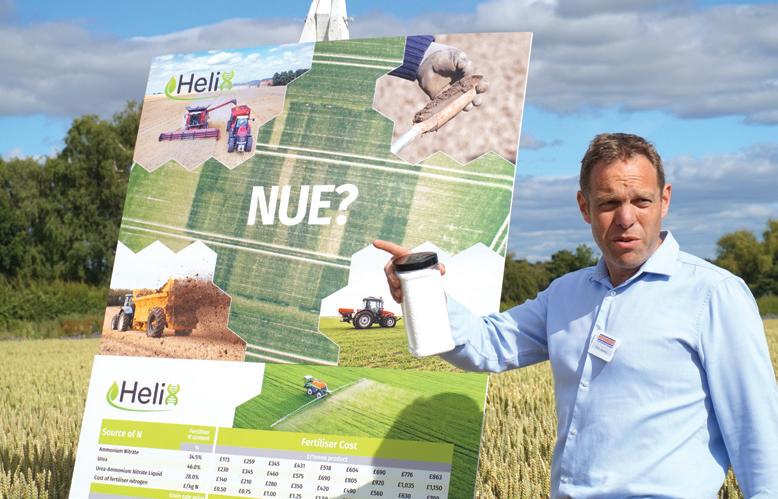
They work by stimulating early root growth and allowing crops to better utilise what is already in the soil.
“It definitely seems like the right approach,” said Tom Jewers. “We’re applying 90% less phosphate compared with previously when we might have used 150 kg/ha of TSP every couple of years to maintain and build soil indices, so there’s a benefit in pure cost terms, but it also helps water quality.”
Regular soil testing will monitor any changes in soil indices, he noted.
FUNDING AVAILABLE
Protecting and enhancing the health of watercourses and ground water is a priority for water companies such as Anglian Water, which is one of several offering support for farmers to reduce raw water quality risks within their catchments.
This includes their annual farm innovation grant, which supports innovative solutions to reduce raw water quality issues such as nitrates, phosphates and/or soil loss in priority catchments across the region.
Up to £7,500 per holding is available, and unlike other grant schemes, there is no specific list of qualifying options. Applications are judged against certain criteria, including: funds requested versus farmer funding; location and connectivity to a raw drinking water source; potential benefits and learnings; likely risk reduction.
The application window runs from 2 October to 12 November 2023.
See www.ricardo.com/FIG2023
OCTOBER 2023 | WWW.SOUTHEASTFARMER.NET 42
AGRONOMY
Applying placement fertiliser with seed is increasingly being used as a way of reducing fertiliser use while benefiting crop establishment, the environment and the bottom line.
What a fabulous day spent at the East Kent ploughing match. There's so much to see and do, and as always, it’s our annual catch up with so many of our local farmers that we seem to see at the ploughing match. Lots of schools came to visit and attendance appeared to be up on previous years. Congratulations to all who organise it, a mammoth task by anyone’s standards. Editorial deadlines meant it was too late to alter my last column, but I felt it important to mention that a local company has managed to restore our faith in humanity. Big Bale (South East) came to our rescue in the middle of harvest this year. We had hired a brand new bale chaser from them and had used it for approximately 24 hours when we had to make the dreaded phone call…

A rotten tree (covered in ivy) managed to dislodge itself along our lane and narrowly missed hitting the front of our tractor, instead landing on the roof and the bale chaser. Fortunately no one was injured, but it was a rather large wakeup call and left us without a tractor or a bale chaser. We delegated to Fergus the job of letting Big Bale know, and within five minutes he was asking Monty to drop him off at Burgess Hill (to meet Big Bale halfway) to collect a new tractor and chaser which we could have for the remainder of our hire agreement. It was an incredible offer from an incredible company that enabled us to carry on carting bales without any issues. Thank you
INCREDIBLE OFFER RESCUES HARVEST




doesn’t seem to be enough. Harvest is always stressful enough, but without their support it would have been 10 times harder.




Mr Grumpy and I had the pleasure of enduring an hour-long webinar provided by our milk purchaser on the topic of calf rearing. The first 56 minutes of the 60min talk was spent discussing housing, milk, feeding, bedding, sexed semen etc and the last two minutes were spent discussing the price and the fact that, however unfortunate it seemed, farmers were unable to make any money out of rearing the calves and adhering to the stringent standards set out by our milk purchaser. So, not only is the milk price not profitable, neither is rearing the offspring. All other costs are rising but the milk price appears to be bucking the trend.
Drilling is now underway/completed (weather dependent), and the countdown is on until Fergus leaves for ‘down-under’. By the time you read this there will be less than two weeks to go. Mr Grumpy and I are definitely not looking forward to it, although, I am sure he will have an amazing time.
Monty has been working hard and has been
able to “remotely remote”. This involves being able to access the dairy computer system via his phone and assess all the cows that may not have been ruminating/eating/lying down as much as they should. He can then flag any cows and shed them off at milking time to assess/treat any that may need it. It’s an incredible system, all done through a transponder around the cow’s neck. He can even shed them off in his lunch break at school. Until next time stay safe.

WWW.SOUTHEASTFARMER.NET | OCTOBER 2023 43 TO ADVERTISE CALL 01303 233883 ORGANISED CHAOS ANITA HEAD
ANITA HEAD Farmer
VET DIARY
Having recently attended an online course on mental health in farming, I feel it’s worth raising this subject again. The aim of this course was to find out what role we as vets can play in spotting signs of poor mental wellbeing and offering some kind of first aid support where needed.

The real inspiration for this article came from listening to the story of Emma Picton-Jones. This incredible woman set up the DPJ foundation in memory of her husband Dan Picton-Jones (DPJ). Dan was a farmer in Wales who struggled with his mental health, leading to his suicide in 2016, leaving behind his wife and young children.
DPJ allows 24/7 access to farmers to talk about any kind of mental health issues, including bereavement. This organisation is situated in Wales and is accessible only for Welsh farmers. Here in the South East there are different institutions providing a similar service. RABI, which stands for Royal Agricultural Benevolent Institution, is probably the most well-known. Again, they have a 24/7 helpline (0800 188 4444) providing someone to talk to no matter what it is about or what time of the day.
The story of Dan makes anyone wonder how many more farmers are out there struggling. Well, here are some statistics for you. These are taken from The Big Farming Survey run by RABI.
DEFRA estimates 472,000 people work in commercial agriculture across the UK, farming 71% of UK land. Accidents in the farming sector are said to be 20 times higher than the all-industry average. On top of that, musculo-skeletal injuries are three times as likely.
Shockingly, more than one farmer per week takes his/her own life. In addition are the rates of the less visible side in mental-ill health, with
AT COLCHESTER MARKET
SHEEP TRADE HAS REMAINED CONSTANT
Finished cattle trade and cull prices have begun to stabilise and are regularly trading between 240p/kg and 300p/kg for finished cattle, with good processing cows achieving 150p/kg to 200p/kg.

Wholesalers and retailers, however, are reporting a fall in consumer demand due to the continued pressure of inflation. The hope is that as the cooler weather returns we will see an increase in demand for the staples of mince and joints.
The low cattle availability for both finished cattle and stores will offer some continued support to cattle prices throughout the autumn.
The sheep trade has remained constant in Colchester, where good, well-finished lambs with conformation are regularly trading between 250p/kg and 300p/kg.

The store lamb trade has remained buoyant, with feeders having good crops of stubble turnips available and looking to purchase lambs, but the threat of cheap imported lamb from Australia is one that needs
SPOTTING SIGNS
How many times have you said, "I’m ok", when really… you were not?
one in five farmers diagnosed as being depressed. Almost half of the farming community experiences some form of anxiety, 8% of these incidents classed as severe.
These figures speak for themselves, and with the challenges farmers face these days the likelihood is that the figures will increase. The Big Farming Survey talks about things like the Basic Payment Scheme disappearing, climate change, the dreaded Brexit and so on and so forth, having an effect on mental wellbeing.
Unfortunately, there definitely seems to still be a stigma around mental health. The word itself, I’m sure, raises eyebrows with many farmers. We must get past this and acknowledge there is a problem with mental wellbeing. A problem that, however hard it is, can be addressed if it is noticed. It's encouraging to see many campaigns now raising awareness. This will hopefully lead to people within the farming community opening up and saying: "You know what, no I am not ok’, without feeling embarrassed about it.
to be considered and something that threatens both the lamb and beef markets, with the UK now being a net beef importer.
The pig market has seen a decline in the UK breeding herd, with fewer pigs being produced, causing problems for abattoirs requiring pigs and leading to positive prices.
We hope that prices continue to rally to give producers confidence in the red meat sector. We have seen a gradual exodus of small suckler cow and flock owners this year as they have taken advantage of the high value returns for cull cows and ewes.
I fear this may continue if prices are forced down by cheaper imports coupled with the continued reduction in the Basic Payment Subsidy.
OCTOBER 2023 | WWW.SOUTHEASTFARMER.NET 44
BRASSINGTON
and on behalf of Stanfords
01206 842156 E: info@stanfords-colchester.co.uk
TIM
For
T:
www.stanfords-colchester.co.uk
Veterinary Group
01273 473232
leonille.griffiths@cliffevets.co.uk
NANJA VERKUIJL DVM MRCVS Cliffe
T:
E:
www.cliffefarm.co.uk
A TIME FOR EVERYTHING AT
Ecclesiastes 3, Verses 1-8.
This is not a religious address, though the rostrum is our pulpit and some farmers have suggested that auctioneers and clergy seem to work only one day a week! Nothing could be further from the truth for either group and, at this time of the year, we could both do with an extra day in the week.
This famous passage from scripture came to mind as a subject for this article while I was attending a beautiful funeral for one of the kindest and dearest farmer’s wives I have had the pleasure to meet in Kent and who will be missed by so many. She loved her farming and she loved her scripture.
Timing is everything in all ways of life, but somehow it is even more critical for farmers when the seasons, and their changing weather, have such a bearing on the industry, whether farming livestock, arable or fruit.
Decisions remain personal, fortunately, with farming enterprises all so very different because factors such as breeds of livestock, calving/ lambing dates, labour availability, other farming commitments and soil type, (to mention but a few) vary so greatly, but decisions, and hopefully the right ones, must nevertheless be taken with all the available information considered.
Ashford Market is open every Tuesday of the year and most Fridays in the autumn and has been so, in one form or another, for at least the past 150 years. As auctioneers we strive for integration into the thought processes of farmers so that we can assist in coming up with the right answer. We work for our customers.
From something as simple as being informed of planned numbers for the next market day through to the retirement plan or change of farming policy, the earlier the discussions start taking place the earlier the right plan is constructed and, ultimately, completed.
Mobile phone calls, texts, WhatsApp etc all have their place, but undoubtedly, the best format, certainly for anything substantial, is straightforward verbal communication. This is our domain, and being involved in decision planning makes everyone’s lives and businesses so much better and more rewarding.
Market reports, that regular source of commentary, have not been lost; they are now so much more available, along with other commentaries from auctioneers, in so many forms coming more quickly than ever so that the information that matters is with you immediately. We will supply the information; just let us know what you need.


September has got off with a bang, particularly in the sheep world, where the super abundance of dairy grass in the west has pushed prices high. South East producers have listened and acted, with huge numbers in Ashford selling to vendors' advantage.
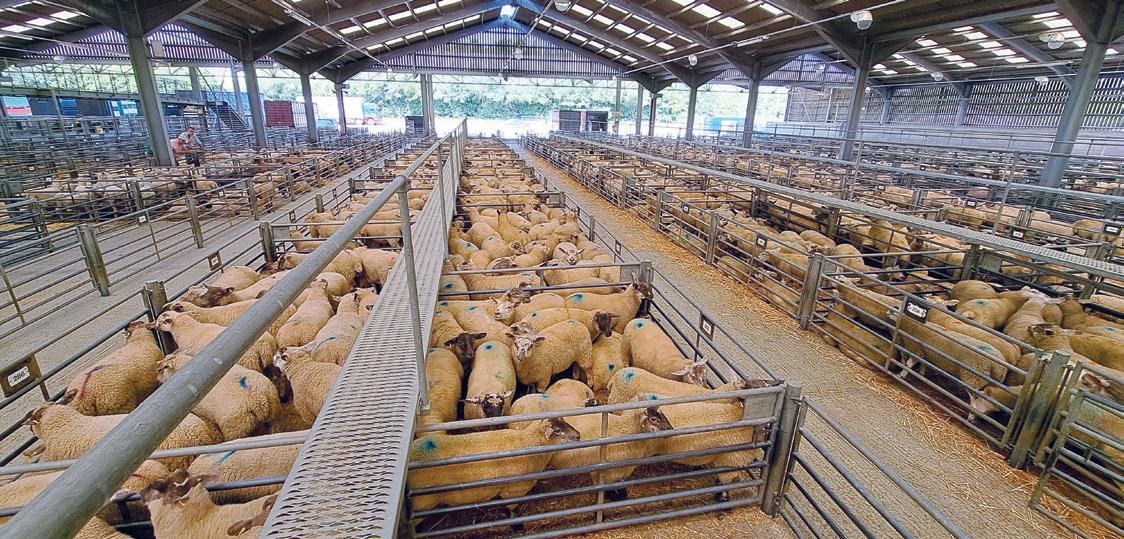
While autumn store cattle have started more slowly in 2022, when grazing was so scarce, we are encouraging producers with stronger, older cattle to market sooner rather than later as the fatteners clearly want to get flesh onto bones.
The beef trade is moving positively and will do, after a couple of summer months in the doldrums when we repeatedly reassured producers that returns would improve in due course – it’s all about timing. Younger, smaller cattle can enjoy the late grazing we have this year, but remember that there is only so much value in late grass and nights are now longer than days – timing again!
Marketing of the finished product, whether beef, lamb or pork, is critical. Get it right and there are great returns to be had. Get it wrong and it is a missed opportunity.
Please do not hesitate to talk with the auctioneering team and take their advice on board. The decision still is yours to make but more advice must always help.
100% Farm Vets
info@westpointfarmvets co uk | westpointfarmvets co uk westpo ntfarmvets westpo nt vets




100% Farm Vets info@westpointfarmvets co uk westpointfarmvets co uk
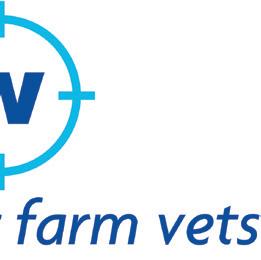

vets
Allied teams: vet tech services, foot trimmers, consultants, and front line, dedicated farm animal veterinary surgeons.



Allied teams: vet tech services, foot trimmers, consultants, and front line, dedicated farm animal veterinary surgeons

















Catering to all livestock needs: commercial, smallholdings and companion farm animals Meeting the needs of our clients with tailored services, health planning, preventative medicine and emergency care 24/7


atering to all livestock needs: commercial, smallholdings and ompanion farm animals Meeting the needs of our clients with tailored services, health planning, preventative medicine and emergency care 24/7
Efficient Sustainable Productive: Our PRO: services focus on health, welfare and productivity on commercial farms; with access to dedicated vets with specific qualifications.
Efficient Sustainable Productive: Our PRO: services focus on health, welfare and productivity on commercial farms; with access to dedicated vets with specific qualifications
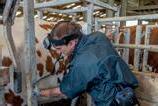



Our practices can offer: fertility and advanced breeding services, laboratory diagnostics, second opinion care, access to health schemes, export services and more
Our practices can offer: fertility and advanced breeding services, laboratory diagnostics, second opinion care, access to health schemes, export services and more

WWW.SOUTHEASTFARMER.NET | OCTOBER 2023 45 TO ADVERTISE CALL 01303 233883
PETER KINGWILL T: 01233 502222 www.hobbsparker.co.uk
ASHFORD MARKET
A s h f o r d 0 1 3 0 6 6 2 8 2 0 8 H o r s h a m 0 1 3 0 6 6 2 8 0 8 6 C h e l m s f o r d 0 1 3 0 6 6 2 8 4 8 9 W i n c h e s t e r 0 1 9 6 2 7 7 9 5 9 3
westpo ntfarmvets westpo nt
A s h f o r d 0 1 3 0 6 6 2 8 2 0 8 H o r s h a m 0 1 3 0 6 6 2 8 0 8 6 C h e l m s f o r d 0 1 3 0 6 6 2 8 4 8 9 W i n c h e s t e r 0 1 9 6 2 7 7 9 5 9 3
As the weather turns, so too will thoughts of housing. Since this is a standard feature in the farming calendar, it can be easy to take a successful transition for granted. Here are just a few considerations to be made before housing that can help optimise growth and ensure a smooth transition period.
ASSESS WHETHER CATTLE HOUSING IS FIT FOR PURPOSE

Before housing cattle, it is important to check whether or not buildings are fit for purpose. Housing assessments can be undertaken with your vet or technician team, in good time to make any necessary changes. Checks can include basic structural assessments, as well as other key areas to improve cattle health and maintenance of body condition such as trough space, ventilation, waste management and flooring.
Make sure there is enough water trough and feed space for the number of animals being housed. The amount of space required will depend not only on the number of animals but their size, and whether or not they are being fed ad lib. You can improve feed space with ring-feeders to reduce competition at troughs.
You should check the surface of feed troughs is smooth and clean as this can affect intake. It is also essential to check water troughs are clean, can refill properly (if applicable) and have an adequate flow of water. Check also that there is adequate drainage around them to prevent soaking of any bedding that could lead to lameness or spread of disease.
Ventilation is essential for a successful housing period. Fluctuations in temperature are common in the winter period, and poor airflow reduces an animal’s ability to regulate temperature adequately. Pneumonia is more prevalent in areas with poor or stagnant airflow. If this is something you have encountered on farm before, consider modifying your building’s walls or roof to reduce incidence without medical intervention. Looking back on farm records with your vet can help influence decisions on whether
AUTUMN HOUSING CONSIDERATIONS
By Dr Ami Sawran BVSc CertAVP (CP) PGCertVPS PhD MRCVS
vaccines may also help reduce the incidence of respiratory diseases.
MANAGING PARASITES
Gut parasite burdens can grow and be more readily transferred when animals are housed after time at pasture. Lungworm, which requires specific diagnostic testing, is also a potential threat to livestock health and growth. It is also important not to forget lice, which can present as hair loss and itching. Lice are very easily transmitted at housing due to animals rubbing on shared surfaces.
We have had another warm, wet period of weather, which increases the potential risk of internal parasite burdens even in adult animals. Parasite assessment and treatment to clear existing burdens should be undertaken before bringing animals in to ensure that housing is free of contamination. Faecal testing alone can be unreliable in cattle, so it is important to interpret any results alongside a working history of the farm, previous parasite diagnoses and the risk profile of your pasture. Grazing rotations, and whether or not your pastures are conductive to fluke burdens, are all important factors in your parasite management plan.
If you find that treatment is necessary, ensuring that you are using the correct
anthelmintic is paramount to prevent parasite populations from developing resistance. When worming stock make sure:
• animals are weighed, and dosed to the heavier weight (if the weights are similar)
• dosing guns are calibrated to deliver the correct measures
• the product is within date and has been appropriately stored
• the product is being applied correctly (i.e., pour-on or subcutaneous injection)
• that a wormer targeted to the parasites found on your farm, or your risk profile, is used.
TRANSITION THE DIET
Diet transitions can cause some digestive upset, particularly if changes are swift. Consider the cow’s rumen its own ecosystem, with a microbiome designed to efficiently digest grass over the summer grazing period. A sudden change of diet can upset or even kill ‘good’ bacteria in the gut, leading to poor absorption of nutrients, or in more extreme cases, bloat, acidosis or even death. To avoid acute digestive upset, opt for some long fibre forage and introduce any concentrates gradually over three to four weeks. This will help the gut microbiome adjust and work more efficiently.
This also feeds into considerations around feed space. More dominant animals may take up trough space and effectively gorge on concentrate feeds, so it is important that feed is spread well enough to allow the whole group adequate access to prevent underfeeding of some and overfeeding of others.
OCTOBER 2023 | WWW.SOUTHEASTFARMER.NET 46
ADVICE FROM THE VET
Westpoint Horsham T: 01306 628086 Westpoint Ashford T: 01306 628208 Westpoint Sevenoaks T: 01959 564383 Westpoint Winchester T: 01962 779593 Westpoint Chelmsford T: 01306 628489
If you would like to discuss anything covered in this article contact your local Westpoint practice E: info@westpointfarmvets.co.uk www.westpointfarmvets.co.uk
So, a rather difficult farming year, apart from livestock farming which, as I discovered in 2018, only ends when you no longer have any livestock. If one has been involved with, in my case, dairy cattle all one’s life, the change does take a little getting used to. Although for any of you wobbling on getting out of that increasingly thankless task, I can assure you there are other opportunities out there. And then you don’t have to suffer too much from DEFRA.
Now farming here has diversified in different directions, although life is almost as busy, but without the constant headaches one had with milkers, both human and bovine! Our first move on selling the cattle was to negotiate the purchase of a run down and neglected 260 acre mixed stock farm immediately to the north of our forest up in Argyll.
Those rugged high hills are not for stock farming as we know it down here, so within two years, in 2020, using the excellent Scottish Woodlands forestry team, most of the ‘plantable’ area was into Sitka Spruce, along with the required mix of other tree species, making the hillsides into a mixed landscape which will hopefully be fairly trouble free for some 35 to 40 years, which certainly won’t be a problem for me, or indeed probably for my immediate successors. After being involved in dairy farming, with its constant headaches, since I was 14, I am not really looking for too many future problems.
In 2008, just before he died, we had acquired from one of my oldest friends, John Gillingham, the northern end of his old dairy farm along the Arun Valley, to be run by one of my excellent farmer/contractor neighbours, producing food, maize and grass for the dairy herd. More recently much of that land is now let to him, all we retain being a 40 acre asparagus bed which is managed for us by a big local vegetable grower. Thankfully they will be responsible for cutting and harvesting the crop.

Moving then to 2020; although not being wine drinkers, we decided to let the higher, chalkier part of our old hill dairy unit to a Sussesbased vineyard. They are now completing their second harvest from what appears to have been a tremendously productive 2023 crop of grapes. It is extraordinarily rewarding to drive
THERE ARE OTHER OPPORTUNITIES
around and along the vines and see the sheer volume of huge bunches on individual vines. I think ‘cows..t’ suits grapes, without affecting the wine’s ‘bouquet’. On the downside it has several times crossed my mind how easy or otherwise it might be to find people prepared to pick and handle these huge volumes of grapes, but that’s not my problem.
However, while conscious of the concerns the wine industry is experiencing in Europe, one is keeping everything crossed that the UK is able to find the staff or afford the fast-developing machinery to harvest our English crops. It could pay them good dividends.
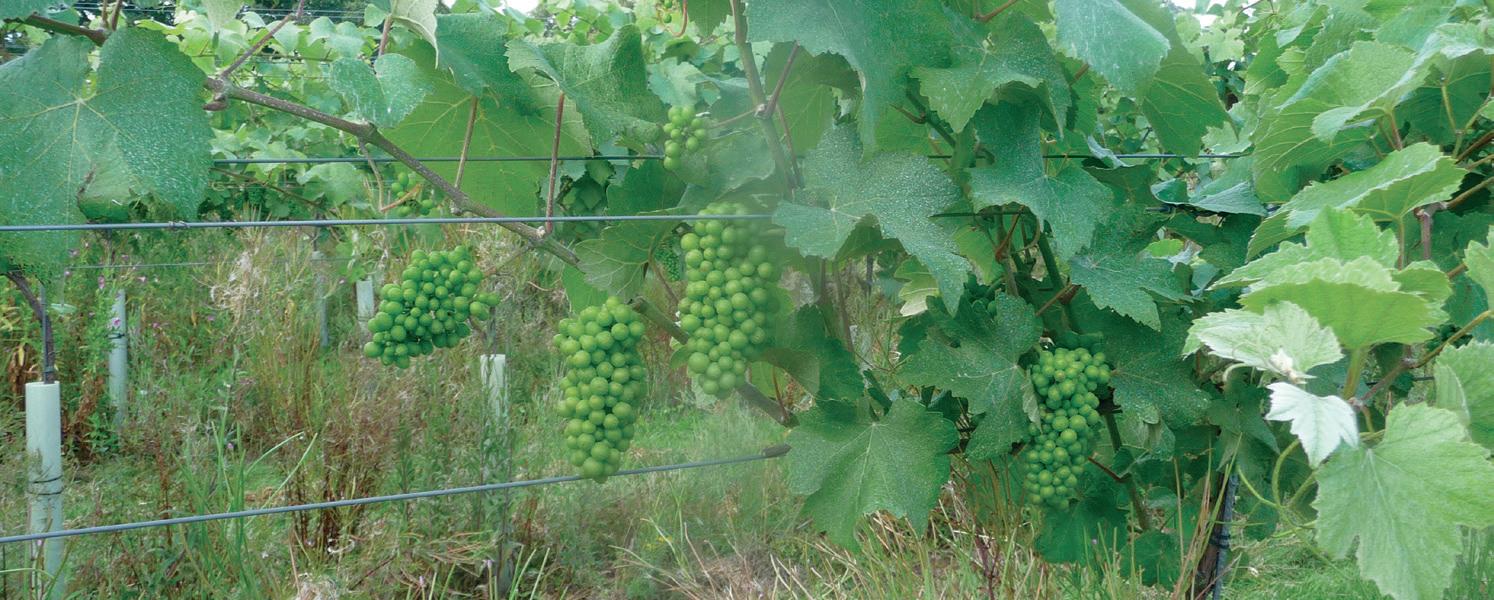
Last winter we had an annoying but not totally unexpected setback on the land recently planted to spruce up north, doubtlessly caused by the exceptional dry conditions up there in 2021, which killed some 15% of the 2020planted young spruce. The land needed urgent infilling last winter and we wait now with bated breath.
Notwithstanding these concerns, we now have the opportunity to join both forests up with the offer of a smaller but well-established 180-acre plantation of Sitka Spruce between them. Unfortunately it also contains larch, infected with pytopthora ramorum, which have to be clear felled urgently. Despite this it is quite appealing, not least because of the views it affords.
When completed, the total forest would stretch for around two-plus miles east to west, with views to the north west up over the high ground beyond Loch Lomond and the Trossachs. There are wonderful views of the old
loch itself lying just down below, while the south western scene takes in the West Coast over the Clyde from the Isle of Bute down to the Borders. I’m told that on a dry day, one can see Northern Ireland. Altogether quite spectacular.
It’s certainly a change from dairy farming in Sussex and is something to remind me of my old cows who are, along now with their progeny, on a farm close to Ballymena, just across the Irish Sea.
It’s presently all about trees here in Sussex, too, as the fast-developing biodiversity net gain scheme gathers speed. I wrote about our plans to shut off development prospects from the south of our old hamlet a few months back, which were then put on hold until the Bill was actually passed into law. Having delayed, we were more recently advised it was OK to move forward as originally planned, so we are again preparing to plant what will eventually be a 20-acre predominantly oak woodland, securing our old hamlet from any future development in that direction. Our neighbours seem very happy at the prospect.
I had been getting a steady flow of developers offering silly money to fill the land up with some 700 to 900 new homes, which I had no intention of inflicting on my neighbours, since this little place is a very old farming community with around 800 years of quite well-documented history. The only visible things it has acquired in the past 100 years is an increasingly potholed lane, a letter box built into an old flint wall, a few new homes and a couple of Victorian street lights that usually don’t work; progress we can live with!
WWW.SOUTHEASTFARMER.NET | OCTOBER 2023 47 TO ADVERTISE CALL 01303 233883
NICK ADAMES
Former dairy farmer
WEST SUSSEX DIARY NICK ADAMES
Good load on the vines
MOVING IN CIRCLES

Round, like a circle in a spiral, like a wheel within a wheel*














































In a recent conversation a friend commented on how farming matters frequently tend to move in circles, although an ascending spiral would probably be more apt; in particular how a lot of the current changes within the industry reflect many of the practices of our forebears in those days before farming had such ready access to the range of synthetics, be they fertilisers or the arsenal of pesticides, herbicides and other assorted “…cides” that we now have at our disposal.
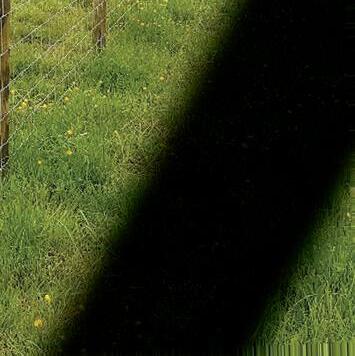

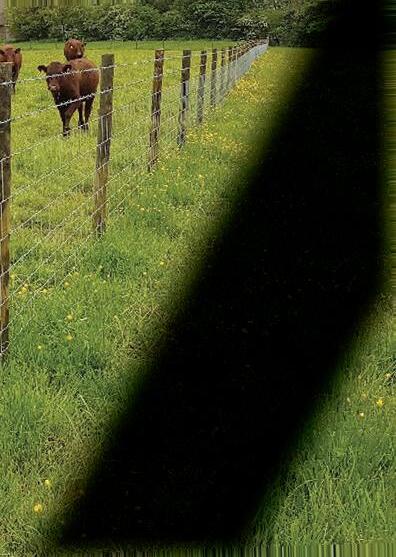
We were somewhat surprised at just how small some of those circles appear to be (a sign of age), having, at the beginning of our respective careers, seen the tail end of an era that now appears to be being “re-invented”. New sustainable trends are not quite the same “as our grandfathers did”; farming technology and science has progressed considerably in the intervening years with a commensurate growth in knowledge and understanding of how and why elements of those systems work. It is not, as some claim, a matter of merely “re-inventing”, a far too simplistic attitude that fails to recognise progress that has been made; the growing trend towards rather more sustainable practices is based largely upon readdressing many basic principles, employing
Mid-September 2023; the reality of sheep production with changing weather patterns. Whatever happened to the autumn flush of grass?




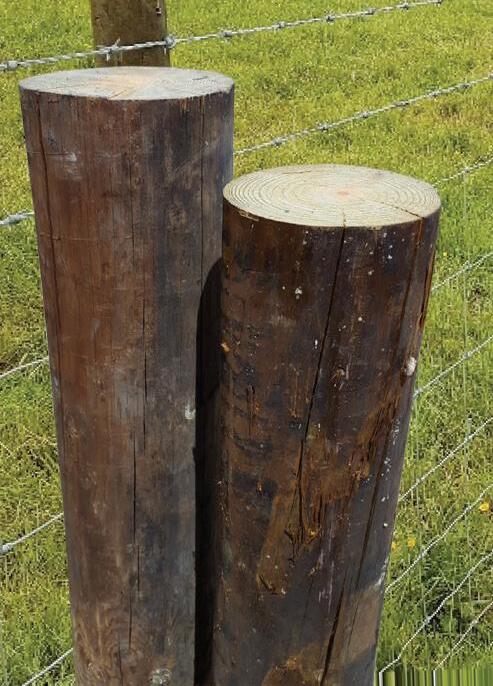

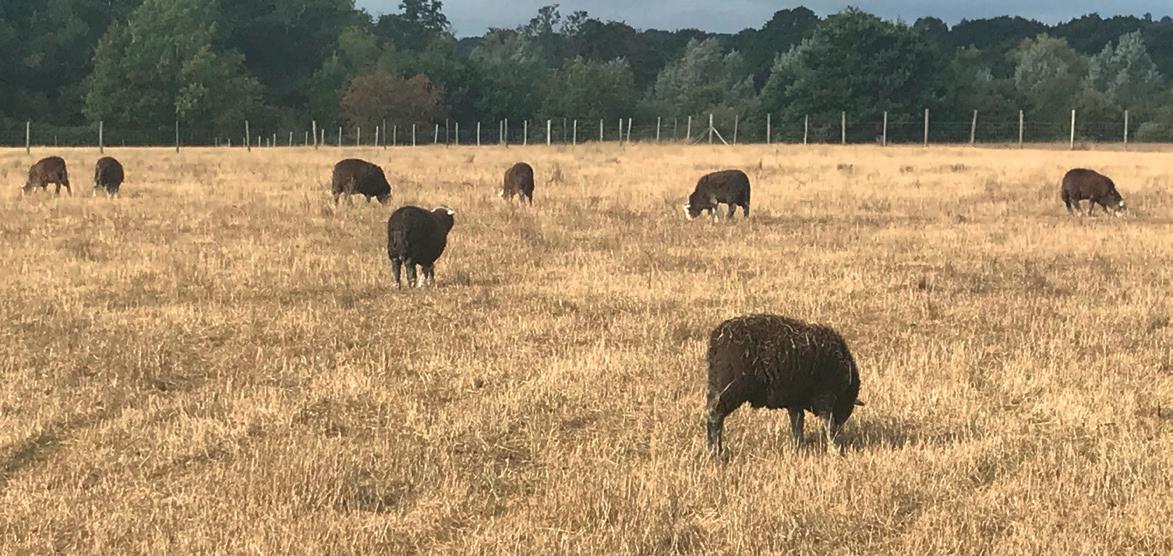
the benefits that have arisen from the increased knowledge and understanding that has accrued.





















When taken as a whole, the sheep sector has probably been the least reliant on the range of synthetics and agrichemicals available, not for any other reason than that it is, by its very nature, a sector that simply does not lend itself to the same levels of intensification as other areas. This certainly does not mean that sheep producers have been tardy in adopting new practices, quite the contrary. Who, 25 years ago, would have thought that sheep producers would be making widespread use of genomics and genetic profiling in the breeding of better-performing sheep? But it does mean that most sheep producers are more resilient





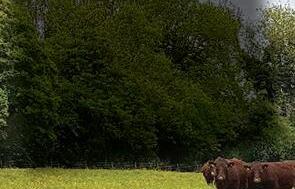
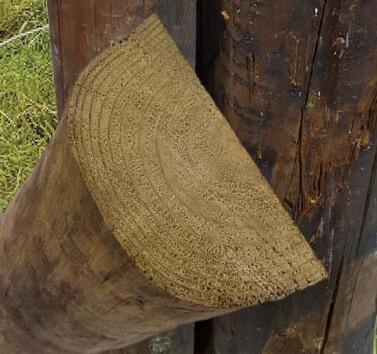
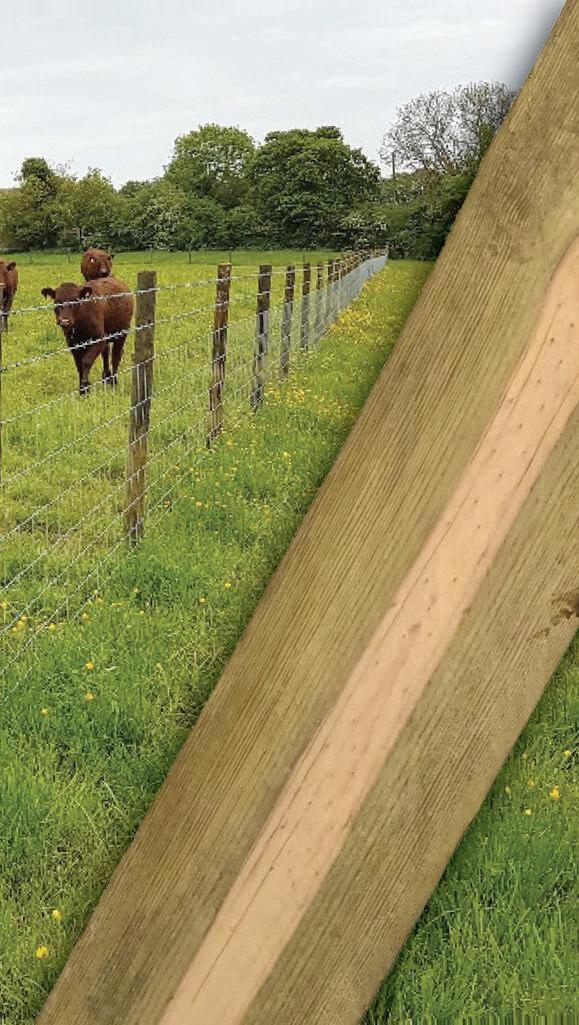
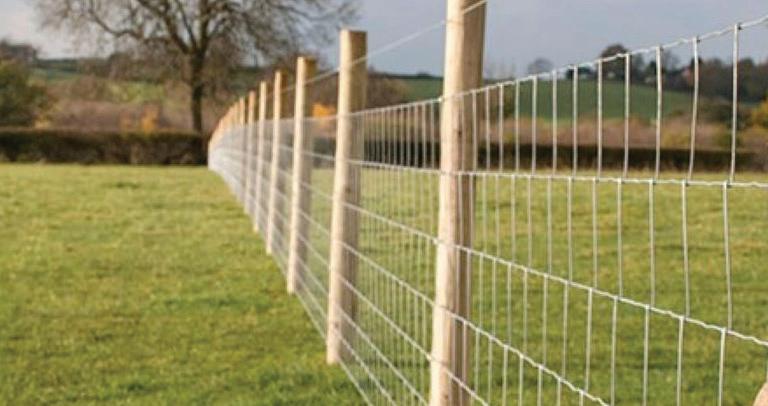

OCTOBER 2023 | WWW.SOUTHEASTFARMER.NET 48
ALAN WEST SHEEP TOPICS
PLANTING&GROWING TYING IN LIVESTOCKEQUIPMENT PRUNING LIVESTOCKEQUIPMENT TING&GROWING PLANTING&GROWING CHEMICALSTORAGE REINFORCEMENT TUNNEL POSTS&WIRE TUNNEL&SHELTER MACHINERY HARVESTING HARVESTING HARVESTING PESTCONTROL EL&SHELTER HARVESTING &GROWING CONTACT US FOR A COPY OF OUR NEW FENCING BROCHURE HARVESTING Agricare UK Ltd, Cooting Road, Aylesham Industrial Estate, Canterbury, Kent CT3 3EP Fencing Sept NEW RANGES IN STOCK Agricare Ltd Canterbury Kent 01304 842280 sales@agricareuk.com www.agricareuk.com USE ONLY THE BEST WOODEN POSTS • Slow-grown for increased strength • Sourced from sustainable forests • Naturally air-dried preserves structural integrity and strength • 100% penetration of preservative • 20 year written guarantee
ALAN WEST
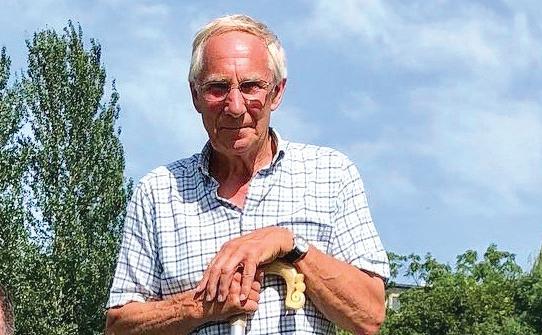
Sheep farmer
and better placed to progress more readily to rather more sustainable production systems should they choose to do so.




Talking of 25 years ago, my first Sheep Topics page was in November 1998, and it is interesting to note that, back then, the sheep sector was going through a crisis; volatile trading conditions, additional slaughter costs resulting from the introduction of specifed risk material (SRM) regulations and their impact on EU export trade resulted in low producer confidence, reflected in disappointing prices at breeding and store sheep sales. Russia had added to the somewhat depressing situation at the time (how things move in circles) by curtailing the trade in sheep hides from Turkish processors, with a commensurate crash in the numbers of UK hides going into Turkey. Prices plummeted by about £9 per pelt, removing about a further 26p/kg from already depressed lamb market prices.
But it has forever been thus; the sheep sector, through hard work, innovation and changing practices, survived, as it always will. Sheep producers have of necessity always been good innovators. A good example of the innovative skills of producers is Frank Langrish, a wellknown Romney breeder from East Sussex and ex-chair of the Wool Board who, fed up with his wool clip representing a net cost to the sheep enterprise, has decided that rather than just moan about the price of wool he should take some affirmative action.
Faced with two options, either remove the problem by going down the shedding route or improve the value of his wool clip, Frank’s background with the wool industry meant that the latter was the obvious choice.
Both fine and superfine wools retain a very strong global demand, with correspondingly good prices, and so with this in mind Frank’s aim is to move his Romney sheep into that fine wool bracket. The magic number is 30 microns; at or below that point the value of the clip doubles, which would elevate his wool clip from a net cost to a net gain; should he be able to reduce it further to 26 microns or less, that increase in the value of the wool would be four-fold.
Although the average Romney fleece hovers around the 32 to 34 micron level, Frank reckoned that, even allowing for the relatively high heritability of wool traits, it could take 20 years of selective breeding to reach this point; a timescale that, by the injection of a bit of New Zealand (NZ) genetics, could be reduced to five years. To this end Frank has imported 14 Snowline rams from NZ. A composite breed based largely on the Coopworth (Romney x Border Leicester) the Snowline is a hardy sheep, renowned for ease of lambing, unassisted in New Zealand, that will produce a meat lamb with a greater proportion of the carcass on the important rear end plus, most importantly, a finer wool bonus.
With financial support from Innovate UK for project Fabulous Fibre, Frank intends to work with other partners within the sector, including various industry organisations such as the National Sheep Association, to lift the quality of and, more importantly, the value of British wools, initially with the Romney but hoping over time to expand into other breeds such as the Cheviot and possibly the Lleyn.
*Those of a certain age will no doubt recall the musical origins of the title of this piece; others may recognise later cinematic or very much earlier biblical references.
Stimulates forage intake by up to 15% and increases forage digestibility by up to 10%




Improves DLWG by up to 36%









Promotes animal health and fertility, increasing pregnancy rates by up to 15%

Enhances normal sperm numbers by up to 20%
Typical daily intakes 100g – 150g youngstock and bulling heifers
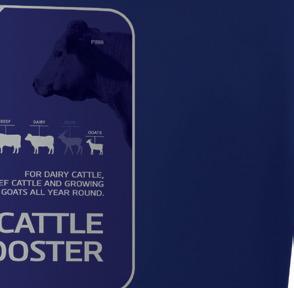
Typical daily intakes 150g – 200g sucklers and bulls
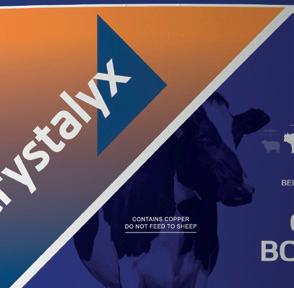
WWW.SOUTHEASTFARMER.NET | OCTOBER 2023 49 TO ADVERTISE CALL 01303 233883
RESEARCH PROVEN
IMPROVE PERFORMANCE FOR MAXIMUM PROFIT.
CATTLE BOOSTER
+44 016973 32592 | info@crystalyx-global.com Find your nearest stockist at crystalyx-global.com Crystalyx UK
2023 HERD COMPETITION
Beef farmers choose Sussex cattle for lots of different reasons, as was highlighted by the recent annual herd competition which saw judges visit pedigree Sussex herds throughout the country to discover more.
The competition is split into three categories – large, intermediate and small – and with a panel of six judges having chosen their three winners it fell to Alan Mummery of Lambert and Foster to visit the winning herds and find his overall champion. This year that honour went to the Elbridge herd near Canterbury.
“I was honoured to be asked to judge the Supreme Champion Herd of the Year 2023 for the Sussex Cattle Society. I enjoyed visits
to three outstanding, but quite different herds, and I congratulate the owners on their success in winning their individual classes. My task was not easy.
“It was fascinating to see such high quality herds all with very different management systems, different farm environments but all making Sussex cattle work as part of a profitable enterprise. Great attention was paid across all three to breeding values with decisions being data driven, something The Sussex Cattle Society is keen to encourage and has which has led it to make Signet recording free to all its members.
“It was not an easy choice, stockmanship




across all three was of the highest quality, but I decided to make the Elbridge herd the Supreme Champion because I saw cattle being managed very successfully on some very challenging marginal ground and the herd looked extremely impressive – a great advert for the breed . This, coupled with the consistent herd type from the breeding cows, to the intakes of in-calf and maiden heifers which is the aim of any breeder and I congratulate E H Holdstock & Son on their success.
“Finally, I thoroughly enjoyed my tour and it found me rather wanting to return to my previous times as one of the auctioneers to the Society!” Alan
Mummery
WINNER OF THE LARGE HERD CATEGORY: THE ELBRIDGE HERD – E.H. HOLDSTOCK
“The Elbridge herd is part of a mixed farm outside Canterbury. The farm is Red Tractor and LEAF accredited and signed up to Signet beef breeder recording.
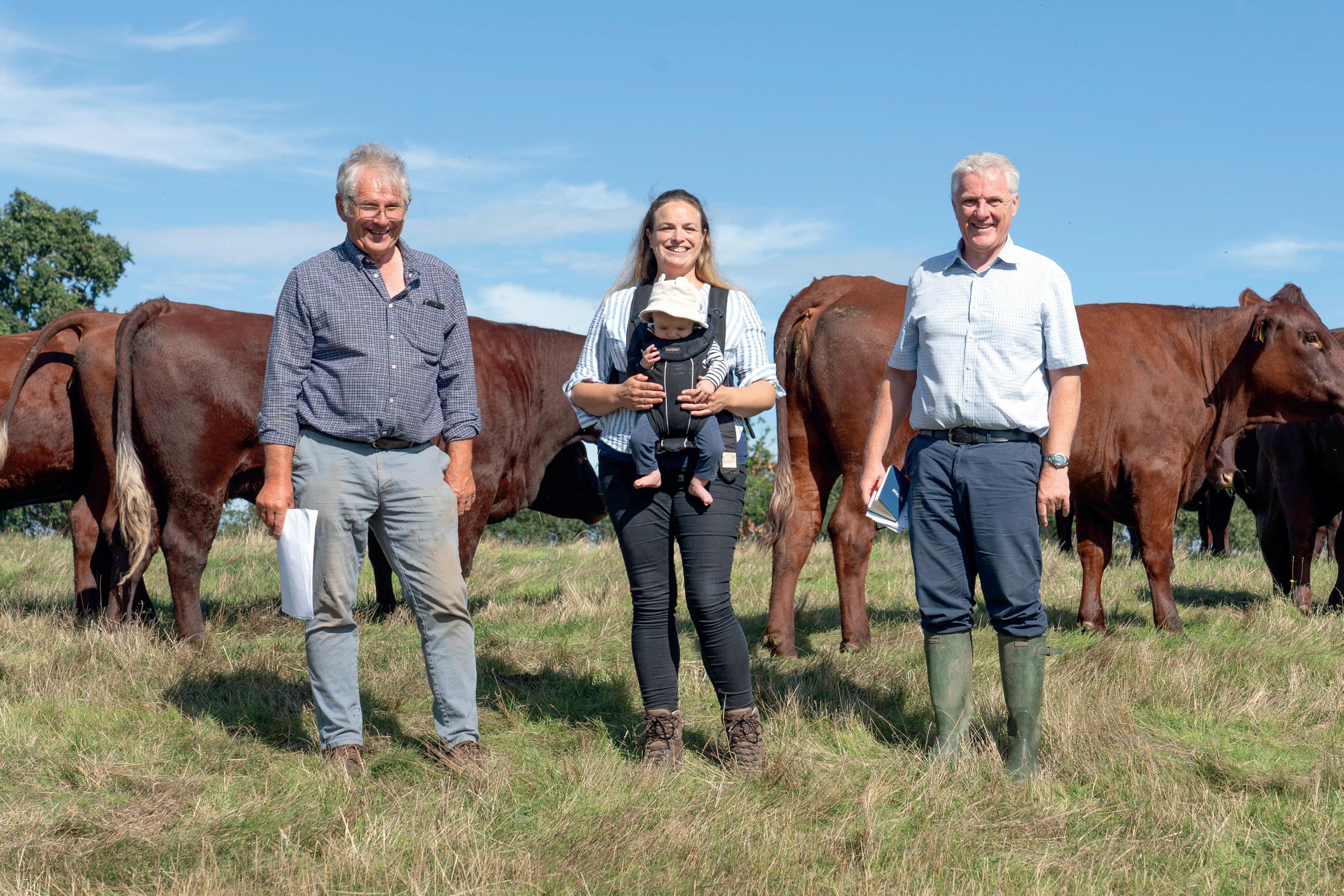
“Over the years the cow numbers have increased to currently stand at around 190 which is split between spring and autumn calving (around 110 spring and 80 autumn). All calving is outside and the spring calving cows are outside all year, grazing on stubble turnips through the winter months. We are firmly convinced that the Sussex breed is ideally suited for our farming system. The qualities of easy
care, well-natured cows that thrive off poor quality forage (which makes up a lot of our grazing) and calving mainly unassisted outside, works well for us.
“We currently have around 20 different female lines, four working pedigree bull lines and four other lines within our young bulls. We are very selective in choosing our breeding stock and we ensure that we maintain the especially desirable Sussex traits of good temperament, milkiness, sound feet, longevity and good food conversion.”
Verity Holdstock
OCTOBER 2023 | WWW.SOUTHEASTFARMER.NET 50 SUSSEX CATTLE SOCIETY
WINNER OF THE INTERMEDIATE HERD CATEGORY: THE TROTTENDEN HERD – C E & W S MILLSON
“Trottenden is a 75 ha farm outside Goudhurst of which 68 ha is permanent pasture with the remainder in small parcels of woodland. The pedigree Sussex herd was started here in 1972. We now run around 30 suckler cows, keeping their followers to sell for breeding or finishing in our beef box scheme. The cows are kept outside for as long as the ground allows and then fed on grass silage during housing – this low input system together with their easy calving and docile nature makes Sussex our preferred breed.
“The farm has been in stewardship schemes since they have been available, and from 2024 we have been accepted for Higher Level Stewardship, so with our pedigree Sussex herd we will benefit from the native breed at risk supplement on land in GS7 (regeneration towards species rich grassland) and WD6 (creation of wood pasture).”

 Vanessa McNaughton
Vanessa McNaughton
WINNER OF THE SMALL HERD CATEGORY: THE COOPERS HERD – J HOWARD & A BREWER
“Coopers Farm is a typical High Weald farm near Wadhurst of 100 acres of permanent grass and woodland. The herd of around 18 suckler cows was established in 2002 and grazes unimproved pastures until late autumn when they are overwintered inside on hay alone. The cattle are Signet recorded - which gives us a good indication of the milkiness of the cows – which, together with high herd status, is increasingly important to buyers looking for breeding stock, especially bulls.
“Two or three bull calves are kept each year and about two-thirds of the heifer calves are kept for replacements or sale for breeding, with the rest being sold through Hailsham Market. We chose Sussex as they thrive on our low input system and being the native breed of the South East
are much sought after by the public and local butchers. They are extremely docile, biddable and easy to calve; we rarely need to assist and I probably shouldn’t say it but
www.sussexcattlesociety.org.uk

on an autumn morning the picture of those dark brown cows against the High Weald background is hard to beat.”
Jane Howard
WWW.SOUTHEASTFARMER.NET | OCTOBER 2023 51 TO ADVERTISE CALL 01303 233883
01580 880105
enq@sussexcattlesociety.org.uk
Legal services for farmers & rural businesses
Call us today or visit our website: 01227 763939 furleypage.co.uk
FUNDING AGROFORESTRY – DOES IT STACK UP?
Agroforestry is a hot topic within the industry and could support a new revenue stream for farmers as a new entrepreneurial venture or as part of a ‘stacking strategy’. Jennie Wheildon, partner in law firm Shakespeare Martineau’s agricultural team, explains.
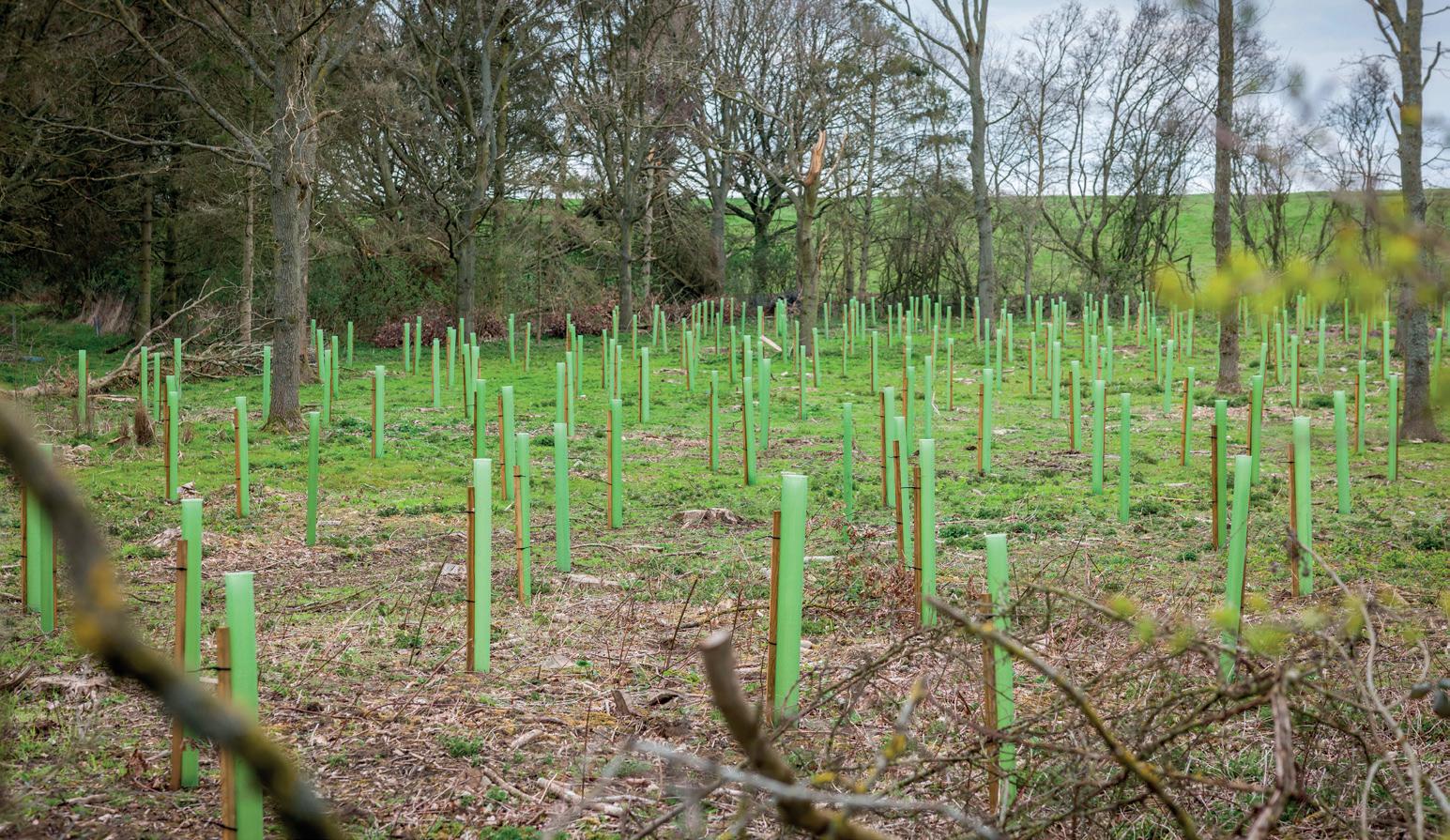
At this year’s Agroforestry Show, organised by the Soil Association and the Woodland Trust, I chaired a panel discussion about how to fund an agroforestry scheme and the cumulative benefits this can create for farmers.
Economic stacking, where multiple business enterprises take place on the farm, and environmental stacking, where multiple environmental benefits are created, can not only help generate more income and mitigate climate change, but also save on costs.
Regenerative farming and agroforestry can go neatly hand in hand. For example, we are seeing that trees planted for fruit or nut production are creating benefits for the fertility of our soils as well as providing shade for livestock, and in turn improving returns from the land.
In a post-subsidy world, farmers need to consider a mosaic of funding options and shift the mindset that making money in farming is a bad thing. For too long there has been the opinion that because public money is required to support the farming industry it is deemed a market failure. This does not need to be the precedent going forward.
We are used to the traditional models of financing land based on land values, and a number of farmers reading this will have mortgages in place over their land that have been calculated in this way. Private finance is arguably under-explored by most and, unlike most public funding, private capital will be based on outputs and forecasting, rather than inputs.
As well as banks and private equity, venture capital funding is entering the
farming market, following models seen in Europe and the USA. The UK’s agroforestry models are lagging behind our international counterparts; other countries have seen farmers designing and introducing largescale production from trees on their farms for years.
Throughout the show this year, there were considerable discussions around the type of trees that should and could be considered within the farmland design. This includes those that can be harvested after cereals or don’t grow too tall to impact other crops, as well as the impact of increasing vegan diets and producing nuts as an alternative protein source. We still have a lot to learn about agroforestry, both in practice and in funding.
To make private investment work, farmers will need strong business plans indicating long-term return on agroforestry schemes, building a case for both financial and
environmental resilience as well as risk profiling. But to achieve this we need to see more training, support and education in this area to help farmers design truly profitable agroforestry on farm and learn how to access corporates in the market for carbon capture and offsetting.
While many banks and funders are painting a rosy picture to land owners, it’s important that farmers consider several factors when engaging with private equity, venture capital or big banks. Firstly, timescales – how long does the funding arrangement last for?
Does the deal provide you with enough time to grow your crop, harvest and produce a return? Secondly, flexibility – are there any long-term expectations on the land, or can the production be flexible? Finally, shared values – does the lender align with your ethical standards? If you’re not aligned, there could be issues down the line.
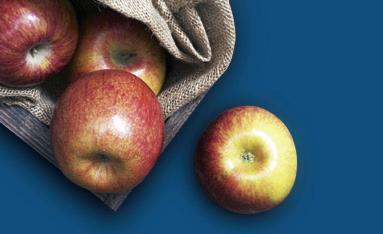
OCTOBER 2023 | WWW.SOUTHEASTFARMER.NET 52
Whether the age of robotics and artificial intelligence fills us with enthusiasm or dread, the potential for automated technologies to transform horticultural production is vast and unbounded.
The production of fresh fruit, vegetables and ornamental plants is essential to the health and wellbeing of all, yet this vital sector currently relies heavily on a precarious workforce. With the UK’s adoption of agri-robotics and other laboursaving technologies being more evolution than revolution, how do we strike the right balance between manpower and the machine?
The Government has been grappling with this question for some time. On 27 July 2022, DEFRA published its Review of Automation in Horticulture. This review was aimed at understanding what was needed to speed up the use of automated technologies to improve productivity in horticulture, and at how to reduce the sector’s dependence on low-skilled migrant workers.
The DEFRA review highlighted that the horticultural sector is still heavily reliant on seasonal workers from the EU. With the restrictions placed on immigration following Brexit, it was deemed critical to ensure the continuation of the labour supply from seasonal workers until the next generation of automation had been tried, tested, and implemented.
At the time of the review, a seasonal workers pilot scheme had run from 2019 to 2022, providing seasonal workers with a route to work in horticulture. Under Boris Johnson, the
seasonal workers’ visa route was announced for 2022 to 2024, extending the ability for seasonal workers to work in the sector.
The review, however, highlighted that the technology currently available will not have a significant impact on the sector’s labour needs in the short or even medium term, and a seasonal workforce must be secured before the next generation of automation can be adopted. Accordingly, it recommended that a longer-term seasonal workers scheme should be implemented post 2024.
DEVELOPMENTS FOLLOWING DEFRA’S REVIEW
There has been an increase in the number of visas permitted for seasonal workers in the horticulture sector each year since the schemes were introduced. The starting point post-Brexit was originally 30,000 visas per year. However, in 2023 the scheme expanded to allow 45,000 to 55,000 visas per year, after the NFU provided evidence to DEFRA detailing the labour needs in the sector.
Following DEFRA’s review, the House of Commons published a briefing on Seasonal Worker Visas and UK Agriculture on 26 June 2023. This highlighted the NFU’s wish for the scheme to be guaranteed for a further five years and noted the union’s estimate that the sector needs 70,000 seasonal workers a year. As such, the expansion of the scheme to 55,000 visas was a step forward, but the NFU did not go so far as to say this met the labour demand.
Therefore, it seems that progress must still be made to guarantee the sector’s future labour requirements.
WHAT DOES THE FUTURE HOLD FOR HORTICULTURAL SEASONAL WORKERS?
In June this year, DEFRA published its Independent Review into Labour Shortages in the Food Supply Chain. The review, as expected, emphasised that it is “vitally important” that a new scheme is introduced to replace the one ending in 2024, and that this scheme should be for a guaranteed five years or until a time when the required labour force can instead be provided through the UK’s domestic workforce. The department also advised, among other things, that the Government should consider lifting the cap on the number of visas and that these should last for a longer period (nine months rather than six), due to longer harvesting periods.
Following the publication of this review, Farming Minister Mark Spencer said that the Government “will look closely at the findings” and respond in the autumn. No formal response has yet been provided, and as such the future and introduction of a new seasonal workers scheme remains uncertain.
Given many of our clients are balancing the adoption of new technologies with meeting workforce needs, Brachers’ agricultural law specialists will be following these developments closely.

WWW.SOUTHEASTFARMER.NET | OCTOBER 2023 53 TO ADVERTISE CALL 01303 233883 LEGAL ABIGAIL BRIGHTWELL Senior Associate, Brachers LLP Abigail Brightwell is member of Brachers’ dedicated agricultural law team who specialises in employment law. T: 01622 655281 E: abigailbrightwell@brachers.co.uk www.brachers.co.uk AUTOMATION
HORTICULTURE –
NOW?
IN
WHERE ARE WE
Maidstone | Canterbury www.brachers.co.uk
Client feedback, Chambers and Partners and The Legal 500
A “knowledgeable and responsive” team of “excellent solicitors who know their specialisms inside out”
Will farmers have greater flexibility to provide houses on their land through permitted development?
On September 25th, the consultation period for proposed changes to the Permitted Development (PD) Order closed. Throughout this process, valuable input has been sought regarding various aspects, including potential modifications to new industrial and warehouse buildings, non-domestic extensions, market opening periods, and adjustments to specific PD rights that facilitate expanded agricultural diversification and development opportunities.
However, what might pique the interest of many is the proposed alterations to specific PD rights related to converting buildings into residential dwellings. In particular, the Government has been eager to gather opinions on the PD policy concerning the conversion of agricultural buildings into homes, often referred to as ‘Class Q.’ One particularly significant proposal is the potential to increase the maximum number of homes that can be created on an agricultural unit through Class Q from 5 to 10. Simultaneously, there’s consideration to introduce an overall maximum developable area of 1,000 square meters of floorspace, an increase from the current 845 square meters. Views are also being sought on the possibility of allowing up to 4 meters of rear extensions for certain agricultural buildings intended for conversion.
Wind of change
Nevertheless (and despite back-pedalling on various ‘green ambitions’ of late), the Government acknowledges the need to accelerate its efforts in order to satisfy the country’s demand for clean and sustainable energy.
On September 5th, the Government initiated a series of measures aimed at streamlining planning regulations, granting local communities greater authority in determining the fate of onshore wind projects. This strategic move seeks to achieve two primary objectives: reduce electricity costs for consumers and bolster national energy security.


The key aspects of these measures encompass the expansion of methods to identify suitable locations for onshore wind developments, including community-driven initiatives, and the expedited allocation of sites, offering alternatives to the traditional local planning process. By doing so, the Government aims to

Another crucial point of discussion is the amendment of rights to enable the conversion of buildings into houses on agricultural units that may not have been “solely” used for agricultural purposes.



Furthermore, the proposal to permit the conversion of buildings into houses in Areas of Outstanding Natural Beauty (AONBs) and National Parks under Class Q, which is not currently possible, is most noteworthy.
If you have any queries about what is being considered by the Government more widely on the PD front, or you wish to discuss specific opportunities that may exist on your holding, please contact your local Bloomfields office.
ensure that the entire community has a voice in the decisionmaking process, rather than being overshadowed by a minority of objectors. Ultimately, the hope is that this will pave the way for an increased number of onshore wind projects to gain planning approval.
Projects will only move forward if they can demonstrate significant local backing and address the planning concerns raised by the community, so the need for a comprehensively managed team with sufficient expertise in a range of areas will be imperative. Communities supporting local wind farms may also benefit from reduced energy costs under proposals designed to incentivise further projects which may be of greater interest to those who usually default to ‘not in my backyard’. The Government will outline the next steps in this initiative during the autumn which the team at Bloomfields will continue to monitor.
Register here to get updates from Bloomfields







SPECIALISING IN PLANNING ADVICE THROUGHOUT THE SOUTH EAST West Kent 01892 831 600 | East Kent 01303 814 444 | Sussex 01435 873 999 info@bloomfieldsltd.co.uk | www.bloomfieldsltd.co.uk
If accepted, this change could open up numerous opportunities for farms seeking to diversify their portfolio.
In 2022, renewable energy sources accounted for a significant 42% of the UK’s electricity generation, marking a substantial increase from the mere 7% recorded in 2010.
CGI PRODUCED BY THE BLOOMFIELDS ARCHITECTURAL TEAM
The South East Farmland Market Experts
COMPACT RESIDENTIAL GRASSLAND FARM
CROWHURST | EAST SUSSEX,

A compact residential grassland farm to be sold as a whole or in three lots is on the market with Samuel & Son.
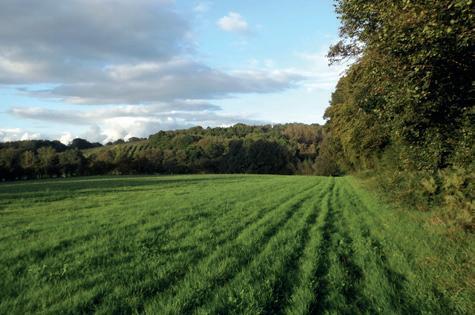


LOT 1: APPROX 0.37 ACRES
The semi-detached cottage is thought to date back in part to the 1860s with later additions. The accommodation is traditionally arranged over two floors.
The accommodation would benefit from updating and refurbishment and comprises about 1,178 sq ft, including a sitting room, kitchen with larder, utility/cloakroom, boot room and dining room and three bedrooms.
The cottage is accessed via a private lane, through the main farm. There is a small out
GUIDE PRICE: £900,000 FOR THE WHOLE IN ALL ABOUT 18.35 ACRES
house in front of the property, and a good sized garden.
LOT 2: APPROX 0.98 ACRES


Located in front of the cottage and mostly set around a concrete yard area are the farm buildings comprising a range of traditional structures, including a general purpose barn 107ft x 100ft (within the barn is an old dairy and parlour) and a Sussex barn 49ft x 45ft constructed in 2006, with some 1,504 sq ft of floor space, offering development potential (subject to all necessary consents).
Consent to convert the Sussex Barn was granted in January 2017, which has subsequently expired.

LOT 3: APPROX 16.03 ACRES OF PERMANENT PASTURE
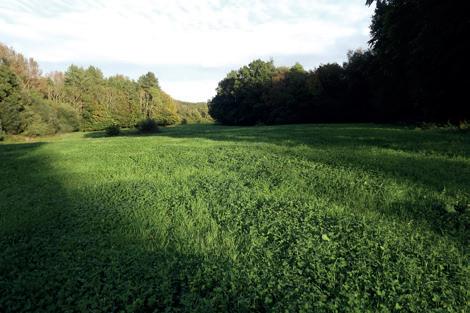
Included in this lot is the cattle/storage barn of approx. 5,278 sq ft providing a number of bays internally with half height block walls. Also included in Lot 3, offering some 16.03 acres, the land comprises two blocks of permanent pasture. The smaller block of about 4.51 acres benefits from road frontage and potential for vehicular access. Otherwise, access is currently made via the larger 11.5 acre block. The land comprises slowly permeable, seasonally wet and slightly acid but base-rich loamy and clayey soils and slightly acid loamy and clayey soils with impeded drainage and is classified as Grade 3.

55 TO ADVERTISE CALL 01303 233883
WWW.SOUTHEASTFARMER.NET | OCTOBER 2023
Any area over 20 acres considered, fencing can be supplied. Good rates paid depending on acreage and grazing period. TEL: 07976 255431 – EMAIL: frank.langrish@btinternet.com WINTER GRAZING FOR EWES AND LAMBS WANTED Grass, forage or cover crops. WATSONS EST. 1873 COUNTRY PROPERTY AGENTS AUCTIONEERS CHARTERED SURVEYORS VALUERS Tel: 01435 865077 The Estate Office - Burwash Road, Heathfield, East Sussex TN21 8RA www.watsonsestates.co.uk NINFIELD – EAST SUSSEX BODIAM 40 ACRE FARM • AOC Property for refurbishment • Good Range of Agricultural Buildings Guide Price: £850,000 21 ACRES GRASSLAND • Area of Outstanding Natural Beauty • Road frontage and access Offers in excess of: £150,000 LAND AND
BATCHELLER
FARMS SPONSORED BY
MONKHOUSE
ARTISANAL WORKSHOPS
Samuel & Son is presenting an opportunity to acquire a farm within the heart of Horam village comprising pastureland, woodland, ponds and a range of traditional buildings which have been converted into artisanal workshops and business units.
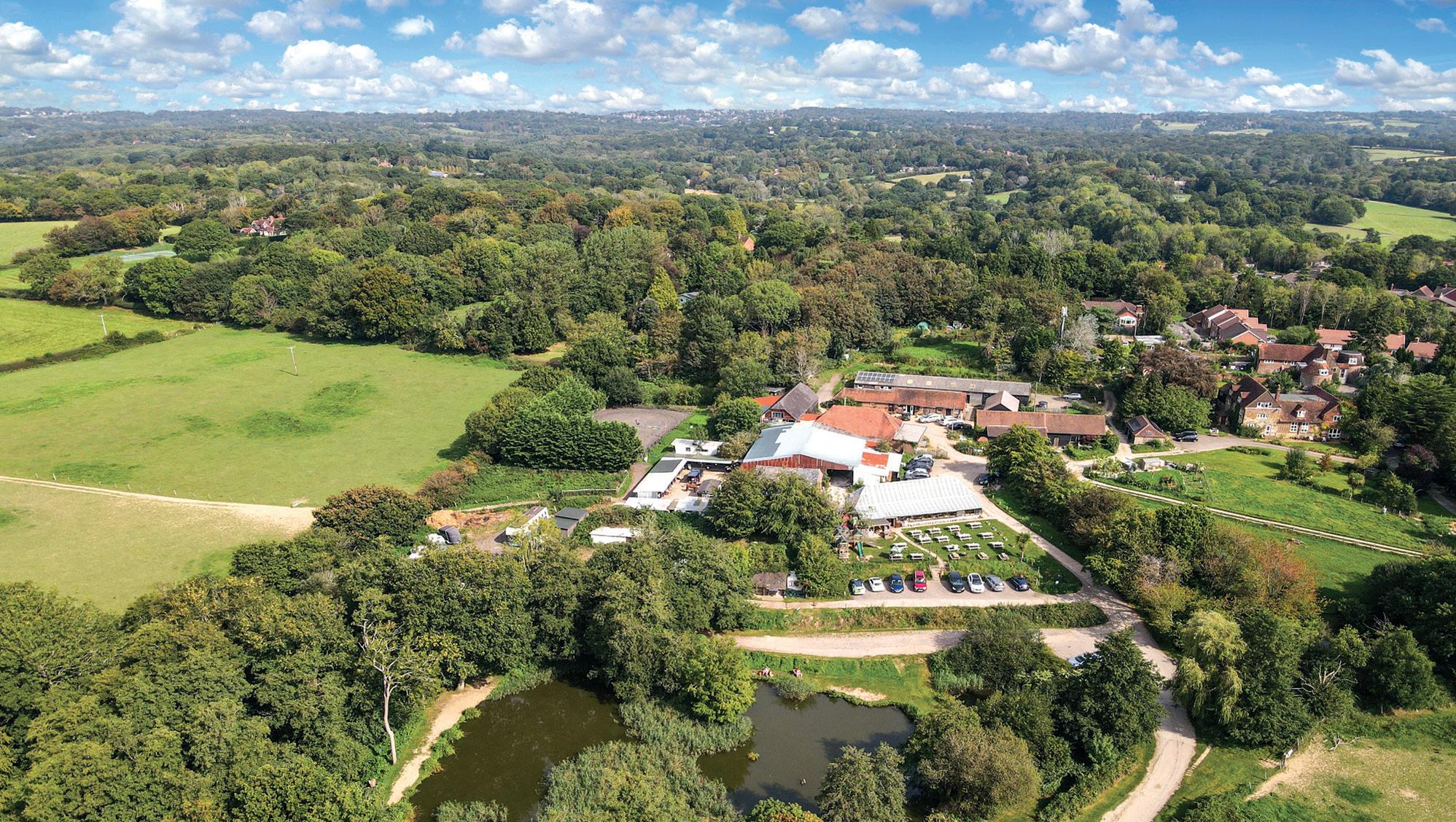
Horam Manor Farm comprises approximately 155.91 acres of woodland, ponds, streams, pasture and a range of traditional buildings that has been given new life for a variety of uses.
Previously a working dairy and arable farm, the estate was taken over by the Ministry of Defence in order to increase food production in WWII and then sold at auction after the war. It has been in the hands of the same family since.
Parts of the property are open to the public, including the popular lakeside café and Horam Manor Stables and Fishery. There is also an eclectic mix of other commercial units and studios occupied by a variety of small enterprises.
The livery is let to a well-established equestrian business offering a range of stabling options and riding lessons. This area comprises 20 timber-clad stable boxes in a U-shaped yard, with three further stables and a tack room. There is also an office and
adjoining sand school of just over 9,000 square feet, as well as 23.42 acres of grazing in paddocks.
Approximately 75.64 acres of replanted, ancient and semi-natural woodland, featuring bluebells and primroses, wood anemones, dragonflies and, in season, a proliferation of butterflies.
The landscape was shaped in Tudor times by the Tudor iron industry, with a series of hammer ponds providing the energy needed for the furnaces. Hornbeam was planted to provide fuel. There is evidence of opencast digging for iron ore, and the orchard area has yielded evidence of a temporary settlement associated with the iron industry.
The fishery is let to a long-standing fishing business and encompasses approximately 3.5 acres of ponds and associated waterways across the farm, these being stocked with carp, tench, perch and bream.
The lakeside café is let to a longstanding catering business and is a popular establishment in the village, comprising a commercial kitchen, utility area, bar, seating areas, stores, staff rest spaces and customer toilets across approximately 2,158 sq ft of accommodation. There is an additional outside
garden area of just over half an acre with bench seating overlooking the fishing ponds.
The Cartlodge extends to 1,214.06 sq ft of space used regularly for classes, parties, events and weddings. Having been run and managed in hand to date, this attractive venue generates a sizable income, with bookings already up substantially since Covid-19; a breakdown of income is available upon request.
There are 18 further traditional buildings which have been converted from their original agricultural purposes to suit a variety of smaller businesses. These converted structures are set around the main farmyard and further concrete yards and areas of hard standing that provide access and parking. There are some further traditional buildings that, while unconverted, hold additional rental potential.
Horam Manor Farm has a gross annual income of between £90,000 and £95,000. A breakdown of the income schedule is available on request.
The solar PV array extends to approximately 31 acres. The land itself is included in the sale but the client intends to retain the established rental income from the original lease until the conclusion of the lease with Solarfields Ltd in 2045.
iFor more information call Samuel & Son on 01435 810077 or email info@samuelandson.co.uk www.samuelandson.co.uk

OCTOBER 2023 | WWW.SOUTHEASTFARMER.NET 56 LAND AND FARMS
GUIDE: £1,995,000 IN ALL ABOUT 155.91 ACRES HORAM | EAST SUSSEX
Prime Surrey Hills Location
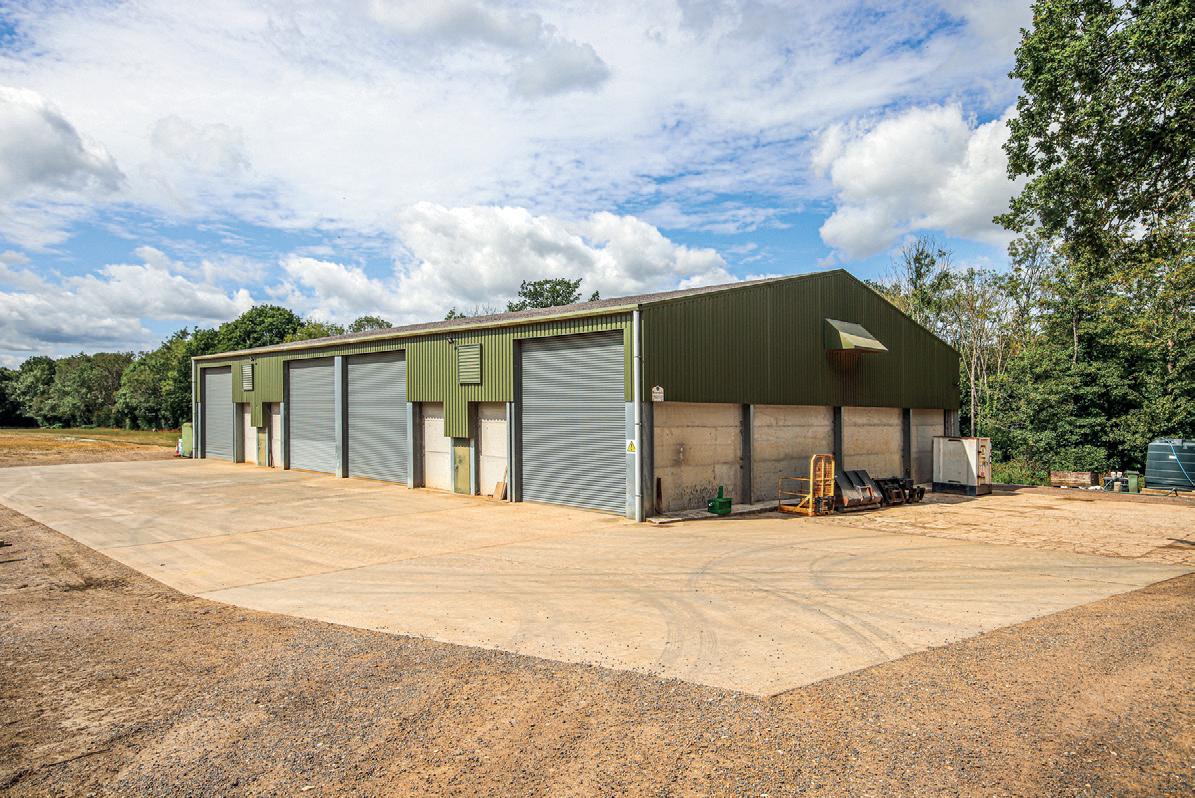
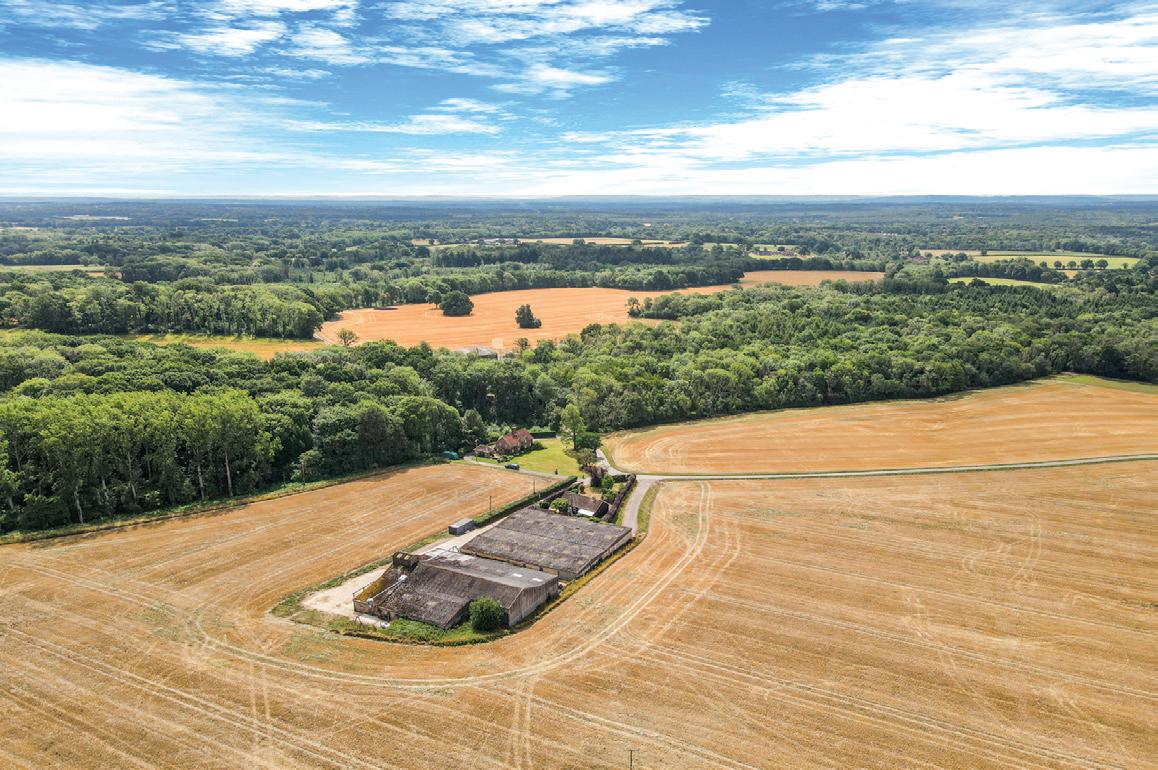

H a m b l e d o n , S u r r e y
O u t s t a n d i n g r e s i d e n t i a l a n d a g r i c u l t u r a l e s t a t e b e n e f i t t i n g f r o m f a r - r e a c h i n g v i e w s -
G r a d e I I l i s t e d 1 6 t h c e n t u r y p r i n c i p a l h o u s e w i t h a n n e x e a n d t r a d i t i o n a l b a r n -
3 b e d r o o m p e r i o d f a r m h o u s e ; 3 b e d r o o m b u n g a l o w - M o d e r n f a r m b u i l d i n g s i n c l u d i n g o f f i c e , g r a i n s t o r e a n d w o r k s h o p - A r a b l e f a r m l a n d , p a s t u r e a n d m a t u r e w o o d l a n d
F r e e h o l d | C o u n c i l T a x B a n d = H | E P C = E
A b o u t 4 8 3 a c r e s | G u i d e £ 8 . 4 m i l l i o n
Chris Spofforth
Savills Sevenoaks
07812 965 379
cspofforth@savills com
Louisa Batterbury
National Farms & Estates 020 7016 3780
louisa batterbury@savills com
savills.co.uk | savills
FOR SALE
Land at Piddinghoe, East Sussex
A useful parcel of grazing land of approx. 11.54 acres, set in the South Downs National Park, in an elevated situation with magnificent views and bridleway access.


Available as a whole or in three lots.
Guide Price: £230,000 for the whole
Hye House Farm, Crowhurst, East Sussex
On the instructions of East Sussex County Council, a residential grassland farm extending to some 18.25 acres.
Available as a whole or in lots:
Lot 1 – A 3-bed semi-detached cottage in need of modernisation.

Lot 2 – A large Sussex Barn with lapsed planning consent to convert into a dwelling. Lot 3 – Circa 16 acres of permanent pasture and an old cattle shed.
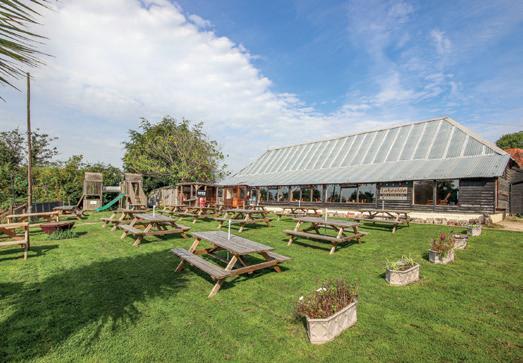
Guide Price: £900,000 for the whole
Horam Manor Farm, Horam, East Sussex
A mixed, commercial farm in immediate proximity of Horam Village, extending to some 155.91 acres.
Available as a whole or in parts. Comprising, 35.2 acres of grassland, 75.64 acres of woodland, an extensive number of ponds and a range of traditional buildings incorporating a Café/Bar, Equestrian Centre and raft of Business Units

Guide Price: £1,995,000 for the whole
Land at Crowhurst, East Sussex
On the instructions of Hastings Borough Council, two parcels of land in an elevated position off the Crowhurst Road.
Available in Lots:
Lot 1 – Approx. 8.24 acres of permanent pasture and woodland
Lot 2 – Approx. 8.63 acres of woodland and rewilded shrub land.
Guide Price: £180,000 for Lots 1&2
Coming Soon
Upper Wilting Farm, Crowhurst, East Sussex
A block of approx. 182.78 acres, comprising 36.95 acres of grassland, 59.92 acres of arable land, 26.10 acres of woodland and 55.75 acres of marshland. Guide Price: £1,500,000
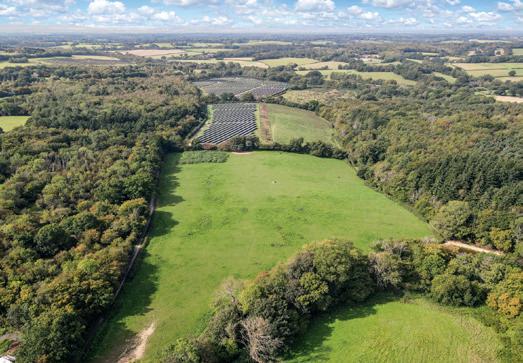
Near Robertsbridge, East Sussex
A mixed farm, extending to some 259.26 acres, with a range of traditional/modern farm buildings and a 3-bed semi-detached cottage subject to an AHA Tenancy. Price on Application
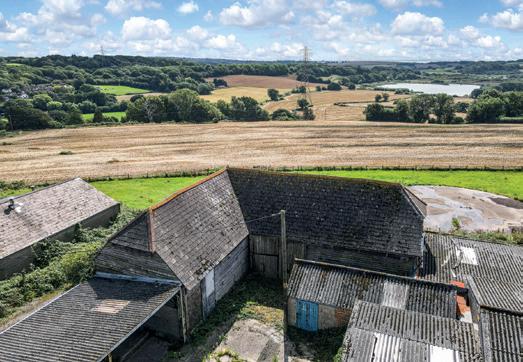
www.samuelandson.co.uk

T 01435 810077 E info@samuelandson.co.uk
OUTSTANDING FAR-REACHING VIEWS



The Markwick Estate, an outstanding residential and agricultural estate within the Surrey Hills Area of Outstanding Natural Beauty, has come to the market through Savills.
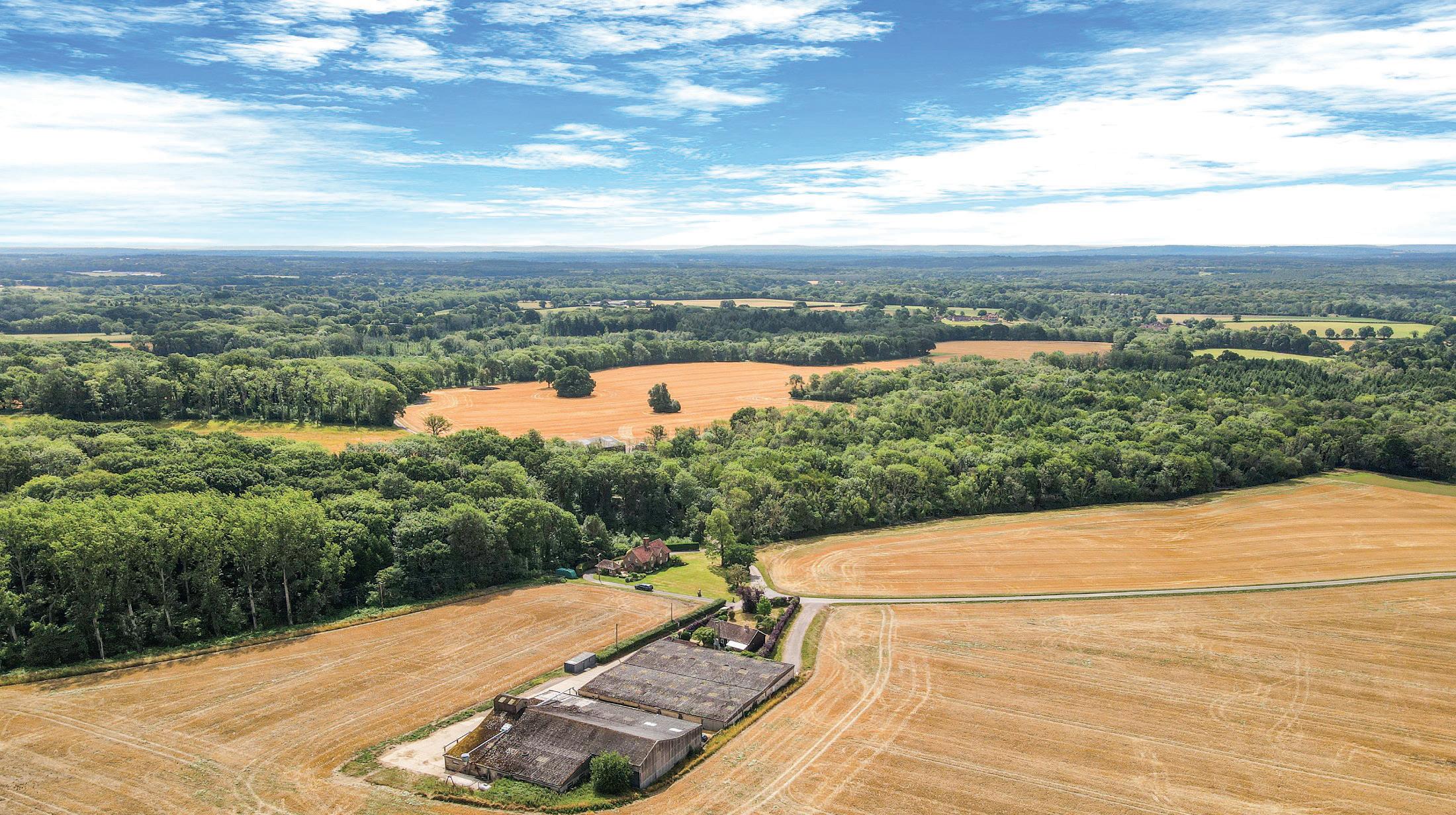
The estate, available as a whole or in three lots, sits between the villages of Dunsfold and Hambledon, near Godalming, with outstanding far-reaching views of rural Surrey and towards the South Downs National Park.
Extending to about 483 acres of predominantly farmland, pasture and mature woodland, the estate includes a Grade II listed, 16th century principal house with annexe and traditional barn, an attractive period farmhouse and bungalow and a range of modern farm buildings including a modern grain store, workshop and office. The farm is let on an FBT until September 2027.
The Markwick Estate was owned by the
late Peter John Rampton, renowned in the world of narrow-gauge railways for saving a large collection of locomotives and carriages from all over the world. At Gorebridge Green Farm Buildings, included in Lot 2, is a part-disused narrow gauge railway line that was designed to link to the main house at Markwick. Mr Rampton’s family owned the successful catalogue sales company Freemans, and lived in the village of Hambledon.
Mr Rampton bought Burgate Farm, which was adjoining his parent’s house in the mid 1960s. Mr Rampton made developments and modernised the pig farm's practices including installing a state-of-the-art piggery with automated feeder. The farm went from strength to strength and grew into an impressive, still thriving, operation. In 1968, Mr Rampton bought the
adjoining farm, which included a Surrey Hall House, dating from the 16th century. The house had suffered two fires and numerous additions so Mr Rampton partly restored the property with timber from the farm using skills and techniques employed when the property was originally constructed. He managed the restoration over many years and the astonishing level of detail is seen at Markwick House today.
Chris Spofforth, Savills rural agency team in the South East, said: “This outstanding residential, amenity and agricultural estate is in a highly sought after position partially within the Surrey Hills AONB. The views are undoubtedly some of the finest in southern England.’’
The Markwick Estate is being marketed by Savills for a guide price of £8,400,000 for the whole, or in three lots.

WWW.SOUTHEASTFARMER.NET | OCTOBER 2023 59 TO ADVERTISE CALL 01303 233883 LAND AND FARMS
For more information, contact Chris Spofforth at Savills on 01732 879 050. https://search.savills.com/property-detail/gblhralar230039 i
office@therpp.co.uk CIRENCESTER 01285 323200 CRANBROOK 01580 201888 www.therpp.co.uk Chartered Town Planners Image courtesy Olson Design Group
GUIDE PRICE £8,400,000 ABOUT 483 ACRES HAMBLEDON | SURREY
In a planning pickle... ...or just looking at development options? Don’t panic.
The professional, creative thinkers at The RPP can help.
MONITOR COSTS IN TANDEM WITH PURSUING ENVIRONMENTAL AMBITIONS
Entering a Sustainable Farming Incentive (SFI) or Countryside Stewardship (CS) scheme provides an ideal opportunity to undertake a whole-farm cost review, explains CLM’s Oli Pilbeam.
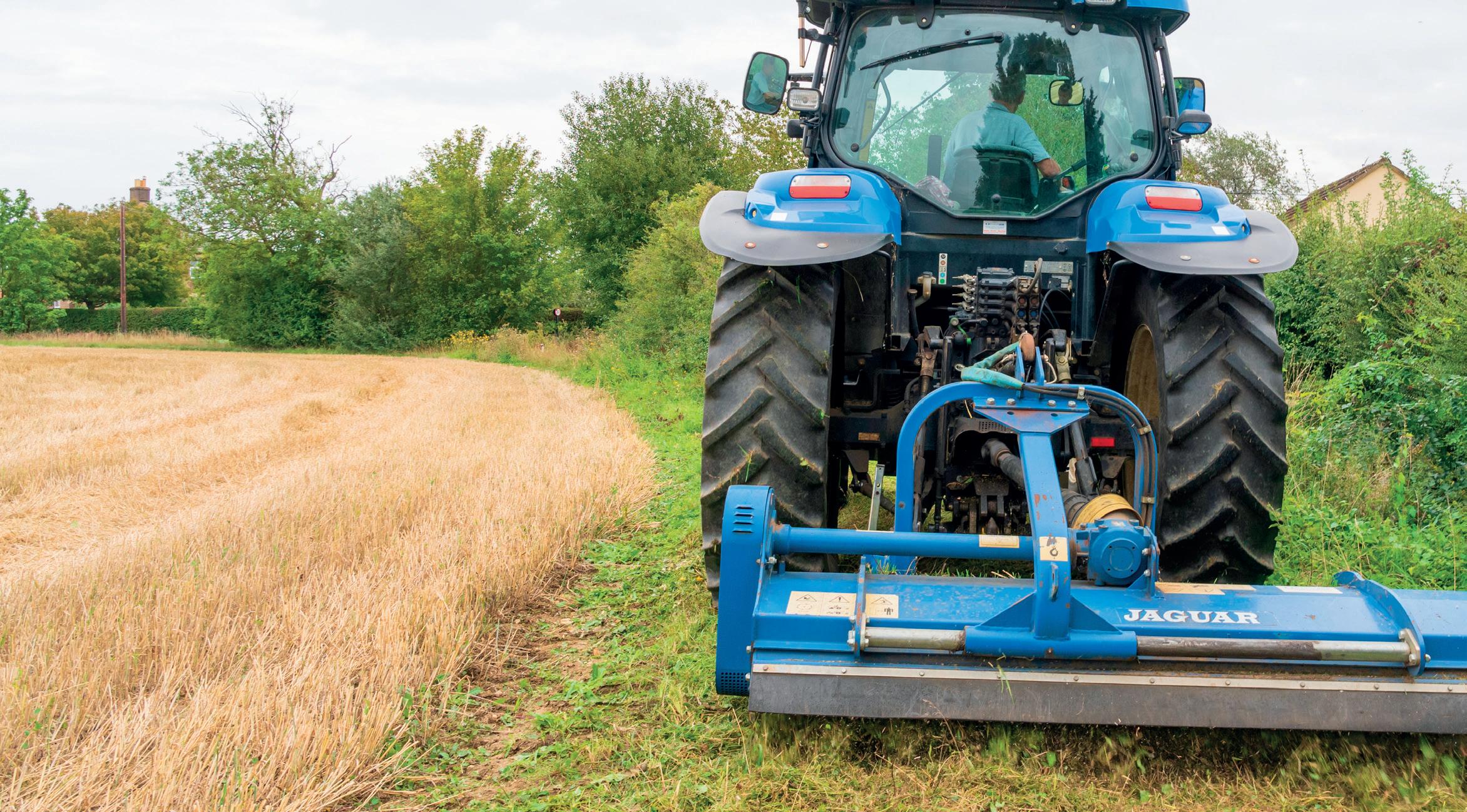
“£673/ha? I may as well put my entire farm down for that.”
That’s a comment I’ve heard a lot over the past 12 months. It’s true, some of the SFI and CS options do sound financially appealing, especially given the volatility of grain markets, fertiliser prices and increased costs of generating working capital.
Factor in the need to make up for lost BPS payments and it’s not surprising that a lot of us here, for example, on heavy Sussex soils, are tempted by payments of £673/ha (£272/ acre) for flower-rich margins and plots or £593/ha (£240/acre) for the two-year sown legume fallow.
A lot of farmers are drawn to these schemes
because of their desire to enhance the environment, but there are also advantages to receiving these ‘guaranteed’ payments. It spreads risk. The BPS payment arriving in our bank accounts every December effectively did (and to a lesser extent still does for the time being) that.
But we need to recognise that these new support schemes are not a direct replacement for BPS. Far from it. It’s important to consider the true costs that result from participation, rather than considering them as an afterthought.
Seed costs from £100 to £250/ha (£40-£100/ acre) can quickly erode the margin on some options. Unlike BPS, farmers have an obligation
to perform and a prescription to which to adhere. If seed costs are a one-off expenditure, fine, but what if you end up having to spend more in year three or four? It’s not impossible that you end up spending two or even threetimes what you initially budgeted.
Because seed is a relatively small percentage of overall costs for combinable crops, farmers don’t always focus on it as much as they should. Within stewardship schemes, though, there is money to be saved by shopping around and tailoring mixes.
In the past, farmers tended to drill their combinable crops and then turn their attention to the stewardship scheme and get the seed in the ground regardless of
OCTOBER 2023 | WWW.SOUTHEASTFARMER.NET 60 LAND MANAGEMENT
Photo: David Calvert / Shutterstock.com
conditions. Now payments (and seed costs) are higher, it’s important to get maximum value by sowing it at the right time into the right seedbed. Stewardship crops are slowly moving higher up farmers' priority lists considering the money that is now involved. Timing in both establishment and management is as critical as it is with conventional cash crops.
These specialist crops are incredibly diverse and require high attention to detail, taking more management for a hectare of flowers than for a hectare of wheat. These options need to be walked as regularly as any other crop to get the most out of them, both practically, financially and environmentally.
My role as an agronomist for Chichester Crop Consultancy (CCC), which I do in tandem with consulting for CLM, really gives me a ‘ground-up’ view of progressive agricultural businesses, helping me understand the opportunities and issues that new schemes can bring.
The two roles have a real synergy. When I’m crop walking, I can view agronomy issues in the context of the whole-farm business and my advice can encompass farm business strategy. When I have my consultant’s hat on, I find my hands-on crop (and livestock) experience is invaluable.
It’s important, for example, to focus on reducing overhead costs if entering
an environmental scheme. It may bring an opportunity to spread workloads, reducing labour hours, as well as providing opportunities to re-evaluate and slim down your machinery inventory – selling, say, a tractor if it rarely does more than 200 hours a year.
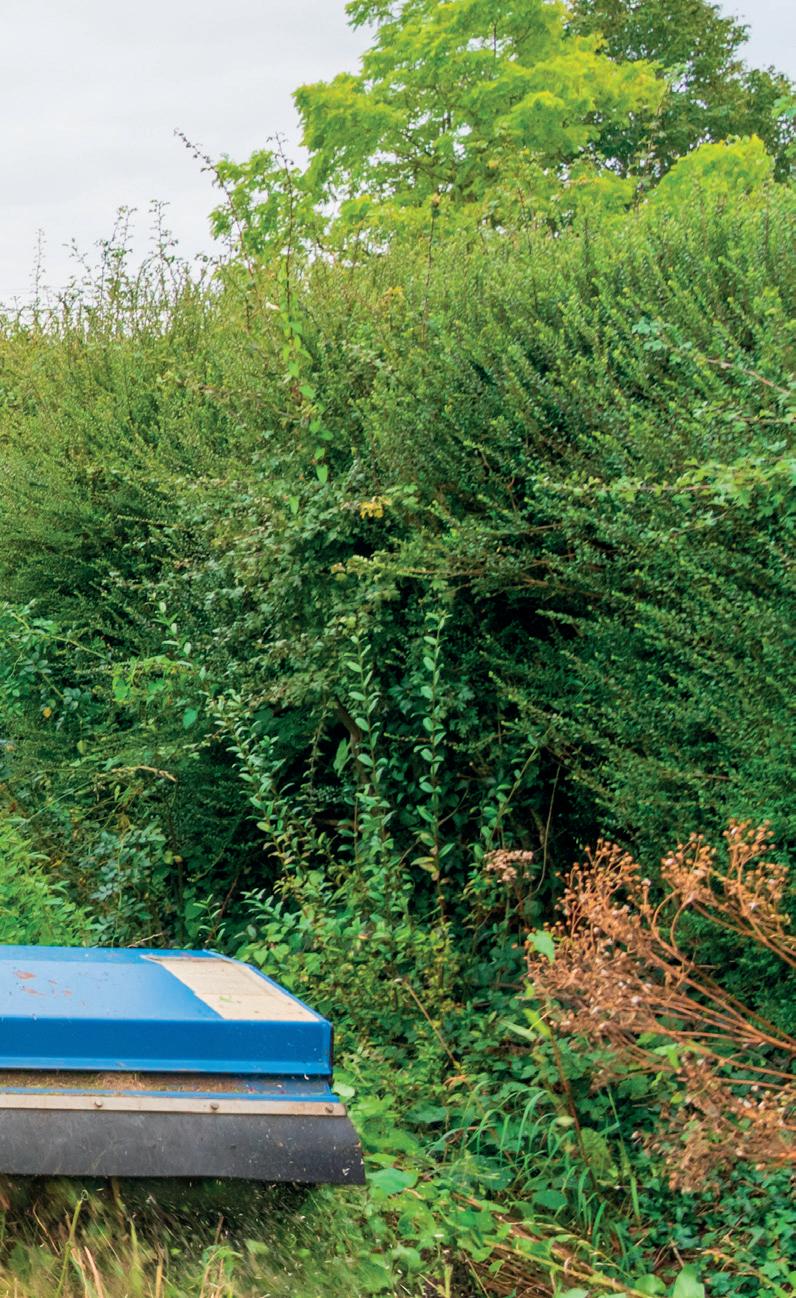
Focus on what is practically required to manage your commitment. ‘Cut and remove’ options require specialist equipment, whereas ‘mulch and incorporate’ requires flail mowers and mulchers.
Large rotational options may require a more traditional topper, but at wider widths to get over the land quicker, especially when you would be topping the same option four or five times within the first season for optimum blackgrass control. I have seen some poorly managed AB15 options which have actually increased the blackgrass burden on some farms when not managed at the correct timings.
Ask yourself what you can realistically achieve. Can you manage with your current machinery, or do you need to ‘gear up’ with smaller equipment? Do you need that big combine, the finance payment on which has risen with inflated interest rates, or can you scale down now that possibly 20% of your land no longer requires combining? Is your contract farming agreement the right arrangement now that the goalposts have moved?
While farmers are contractually obliged to manage the options under CS correctly, to make it pay we must resist the urge to spend large sums of capital doing so. If you need to add front-mounted and rear-mounted flails or a new fancy tractor with front PTO to your machinery list, the savings made in direct costs can soon become masked in overexpenditure on indirect costs.
Meanwhile, now a proportion of your farm is in stewardship there might be an opportunity to reduce your labour bill, as some of the work won’t clash with the traditional peak combining period.
Entering schemes such as CS and SFI makes a lot of environmental sense, boosting biodiversity, improving soil health and contributing to such aims as cleaner water, but it can also make great financial sense. It’s important, though, to make decisions about participation in the context of your whole business, especially when it comes to costs.
MEET OLI
Oli Pilbeam, who joins the CLM team this month, is an experienced farm manager, having run a 2,800ha arable business in Lincolnshire. He also has experience of dairy and sheep enterprises.
Originally from East Sussex, he is ‘returning home’, becoming the fifth generation on the family farm, which comprises arable, livestock, commercial lettings and a solar farm. Oli will provide a complete farm management consultancy service to CLM clients, assisting with budgeting, overhead costs analysis, benchmarking, farm business strategy plans and succession planning in tandem with carrying out agronomy throughout Kent and Sussex for the independent firm Chichester Crop Consultancy (CCC).

WWW.SOUTHEASTFARMER.NET | OCTOBER 2023 61 TO ADVERTISE CALL 01303 233883 OLI PILBEAM CLM T: 01892 770339 E: oli@c-l-m.co.uk www.c-l-m.co.uk



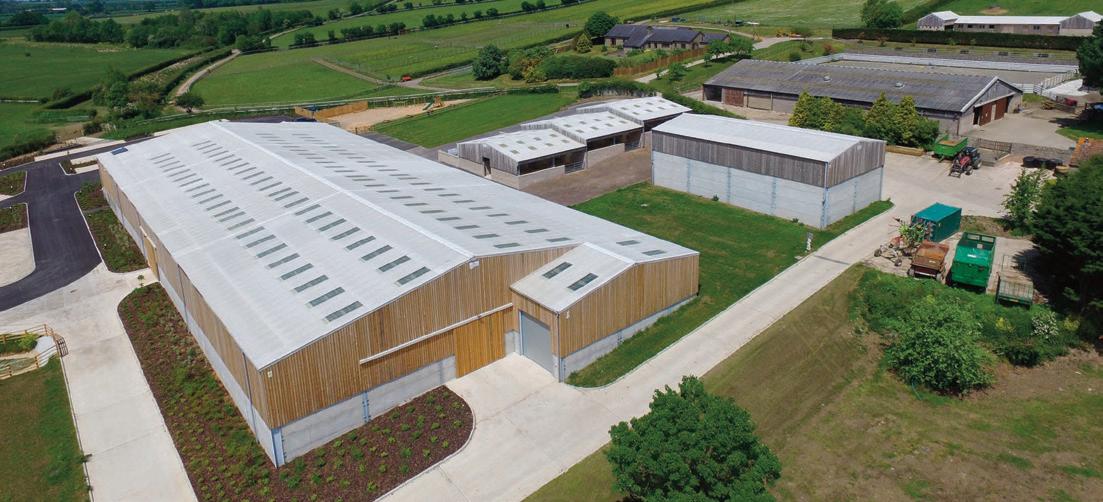

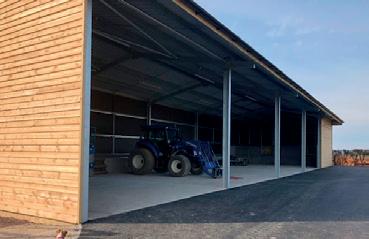

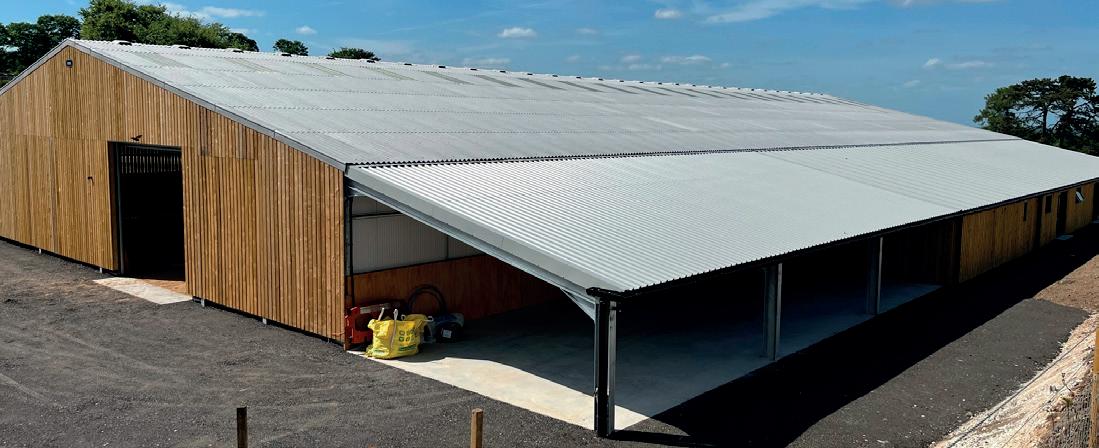



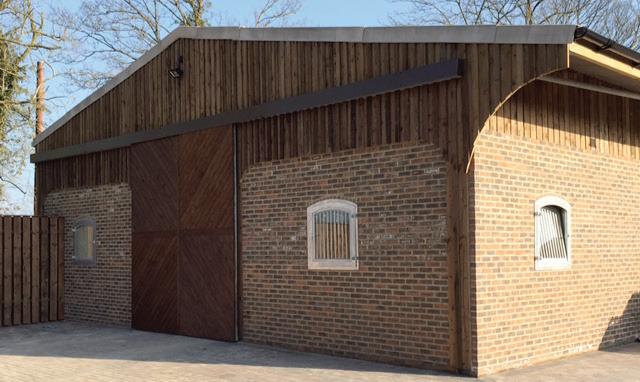



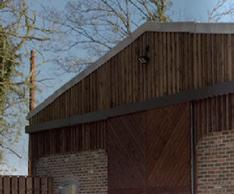



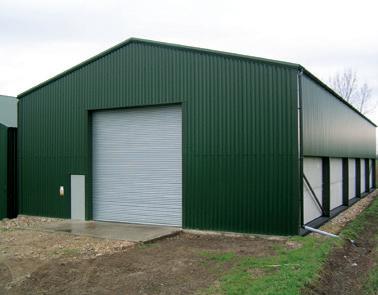
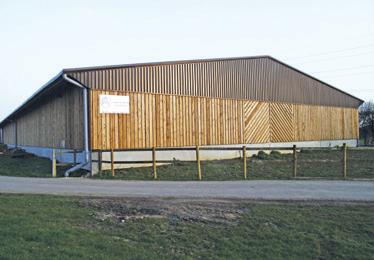



OCTOBER 2023 | WWW.SOUTHEASTFARMER.NET 62 CLASSIFIEDS CONSTRUCTION CONSTRUCTION Industrial & Commercial | Structural Steelwork | Agricultural & Equestrian Contact us for a free quotation 01269 831831 enquiry@shufflebottom.co.uk www.shufflebottom.co.uk Shufflebottom Ltd Cross Hands Business Park, Cross Hands, Llanelli, Carmarthenshire SA14 6RE Shufflebottom Agricultural Buildings Steel-frame buildings for your farm + Supply only or supply & erect + Construction all over the UK + Award winning company Strength, Security, Style Office 01825 371500 � info@formabuild.co.uk www.formabuild.co.uk We specialise in the supply and construction of steel framed buildings together with the repair and refurbishment of existing farm buildings. Based in the heart of Sussex, covering the South East. Sussex builders since at least 1605. Forma offer all aspects of steel framed construction and cladding together with groundworks and electrical fit out if required. formabuild.co.uk 100% British designed & built Over 35 Years experience Site visits Call to arrange a site survey All our panels are marked Gary White 07812 599679 Jason White 07941 274751 Based in Lewes, East Sussex G.E.WHITE & SONS Ltd All refurbishments & repairs undertaken. Call for a free quote today. AGRICULTURAL, EQUESTRIAN & INDUSTRIAL STEEL FRAMED BUILDINGS We supply CONCRETE PANELS – Any size to suit your needs All aspects of steel work, cladding & groundwork. Family run business with 45 years experience. “You tried the others, now try the brothers” All our buildings are marked www.gjelgarconstruction.co.uk For more information contact us: t: 01233 623739 m: 07860 414227 e: office@gjelgarconstruction.co.uk • Steel frame buildings • Sheeting and cladding • Guttering and repairs • Groundworks and drainage • Demolition and asbestos removal • Refurbishment and change of use • Concrete frame and steel frame repairs • Insurance and general repairs • Concrete floor and block paving G.
ELGAR CONSTRUCTION Ltd
J.












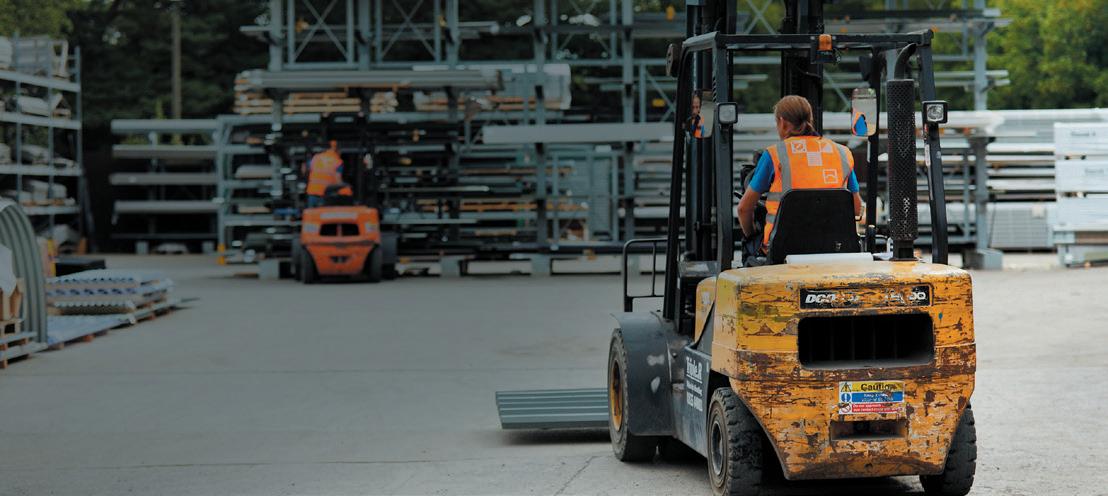
WWW.SOUTHEASTFARMER.NET | OCTOBER 2023 63 TO ADVERTISE CALL 01303 233883 CLASSIFIEDS CONSTRUCTION CONSTRUCTION CONSTRUCTION Agriculture ~ Cold Storage ~ Equestrian ~ Industrial ~ Waste Recycling • Agricultural Buildings • Cold Store Buildings • Equestrian Buildings • Industrial Buildings • Waste Recycling Buildings • Structural Steel • Drawing Services • Design Services • Mezzanine Floors • Custom Steelwork 01323 890403 www.danddconstruction.co.uk info@danddconstruction.co.uk To advertise in South East Farmer telephone 01303 233883 Steel frame buildings for all your farming and agricultural needs. Visit our website or find us on social media to learn more... Arrange a site visit with one of our contracts managers to discuss your project in more detail by emailing enquiries@kenwardgroundworks.co.uk or call 01403 210218 www.kenwardgroundworks.co.uk Kenward Construction based in Horsham, West Sussex offer a full design and build service for your next steel framed building including composite cladding, concrete panels, roller shutter doors and bespoke designs to meet individual planning conditions. Kenward Construction also offer a wide range of services offering a truly one stop shop for your next farm building project. Demolition, plant hire, access roads, drainage, sewage treatment plants, rainwater harvesting, biobed wash downs, paving, concrete foundations / slabs, walling and site landscaping. ENWARD FREEPHONE: 01233 659129 from BT land-line charlie.woodger@btinternet.com REFURBS, BIG 6 ROOF SHEETS, ROOF LIGHTS, RIDGES, VERGES, VALLEY GUTTERS, BOX GUTTERS, BOUNDARY GUTTERS, ASBESTOS, SHEETING Single Sheet To Whole Roof Roller Shutters Accidental or Storm Damage Works Demolition Refurbishments Waste Clearances CALL TO DISCUSS YOUR PROJECT! ALL WORKS KENT & SUSSEX Professional Services to the Agricultural, Industrial & Equestrian Sectors FARM BUILDING REPAIRS Supplying profiled roofing products to contractors, builders and farmers for over 40 years visit www.southernsheeting.co.uk for our full range or call 01342 590 357 to speak to our friendly sales team Our main products off the shelf include: • Profiled steel sheeting • Insulated panels • Fibre cement • Rooflights • Onduline • Fixings and accessories NATIONWIDE DELIVERY • EXTENSIVE RANGES IN STOCK LARGE DISCOUNTS AVAILABLETOFARMERSOUTHERNMEMBERS
JPR ROOFING &
MOBILE: 07813 142 145
Covering: Canterbury, Dover, Kent, East & West Sussex & London
Roofing & Cladding - Strip & Re-sheet - Repairs

Metal Profile - Fibre Cement - Insulated - Timber Boarding


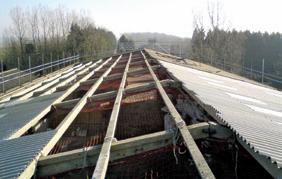
Asbestos Sheet replacements - New Roof lights
New Roofs Projects & Insulated Over-SheetingValley Gutter repairs & Re-lining



Asbestos Stripping & Environmental Waste Disposal
Refurbishments & Extensions to existing buildings



Change of Use & Rental Unit Conversions
Insurance Claim Works for Fire, Flood & Storm Damage
Same Day - Next Day, Site Visit, Inspection Service
Making Building/Premises Safe - Secure Emergency Clear-Up Operations
Asbestos Stripping & Environmental Waste Disposal
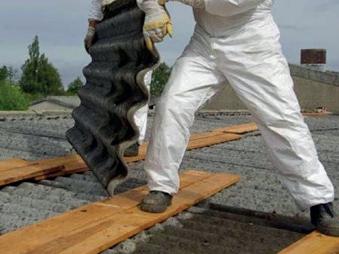
Demolition & Site Clearance Works
Ground Works, Roads, Drives & Drainage Works
Re-Instatement Works
ALL WORKS GUARANTEED
Steel frame buildings. Sheeting, cladding and oversheeting.


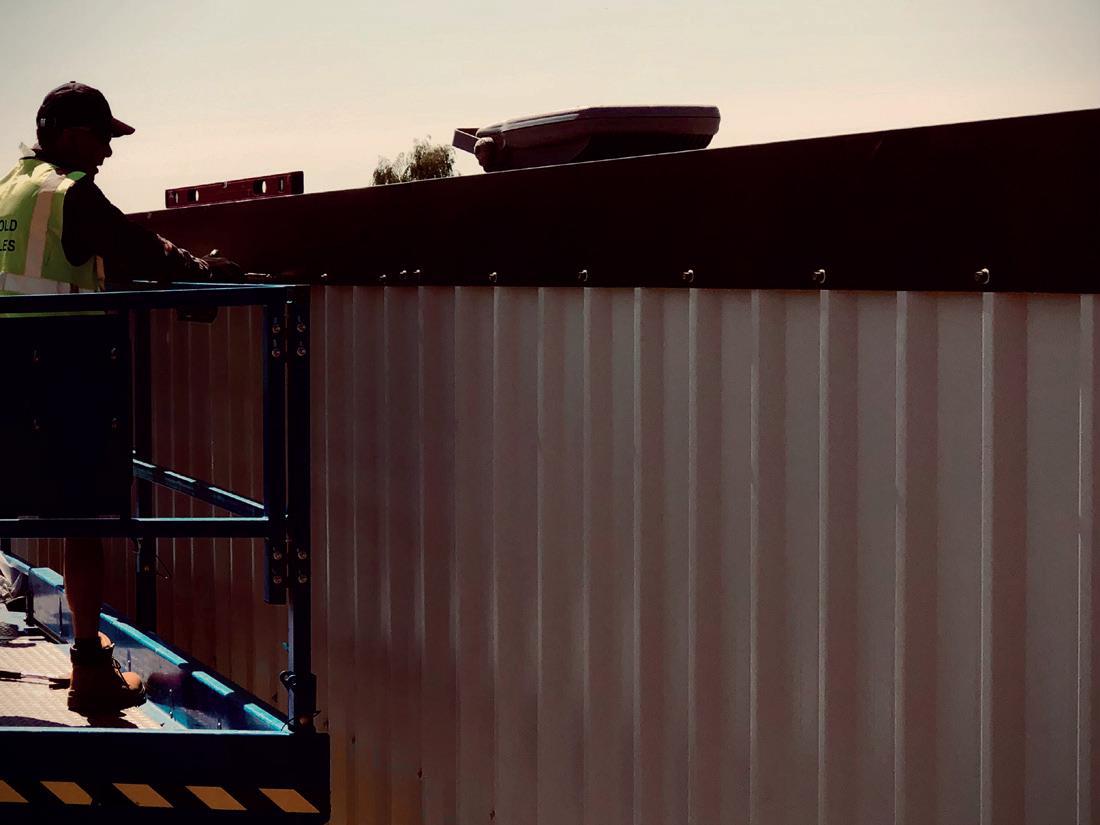

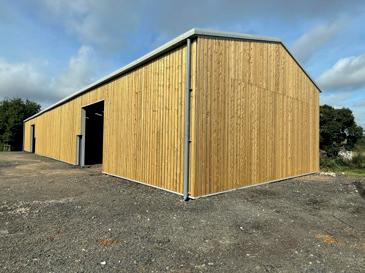
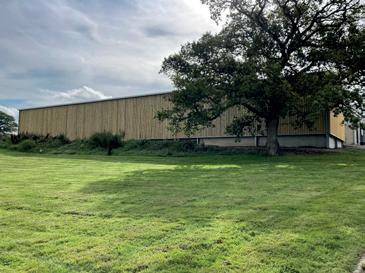


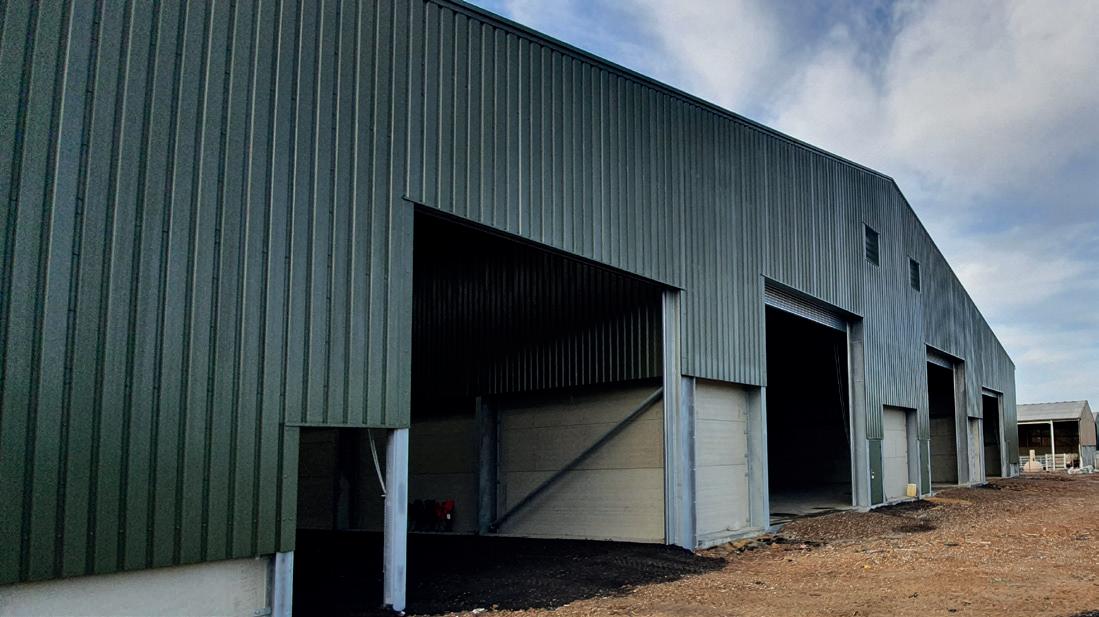


replacement, repairs and lining.
frame, concrete frame alterations and repairs.
removal. Roof light and sheet changes. Refurbishments and usage changes.
groundworks and site clearance.
OCTOBER 2023 | WWW.SOUTHEASTFARMER.NET 64 CLASSIFIEDS
CONSTRUCTION LTD
Professional Services to the Agricultural, Equestrian & Industrial Sectors.
CONSTRUCTION
in the Agricultural, Industrial and Equestrian sectors
Asbestos
24
or break in. Roller shutters, sliding and personnel doors. Condition reports and dilapidation work before solar panel installation Mezzanine floors Insurance and repair work On site welding and steel fabrication Solar panel installation ALL WORKS GUARANTEED 01227 918723 Quality of work Reliability and honesty Unbeatable on price 07784 619603 jez@JRJconstruction.co.uk www.JRJconstruction.co.uk We are a Hampshire-based family run company specialising in the refurbishment, renovation, alteration and upgrade to the external envelope of buildings within the industrial, commercial and agricultural sectors. Our services Structural Steel Cladding Systems Roof Repairs Doors Gutter Maintenance Asbestos Removal Tel: 02380 617383 Email: info@symesindustrial.co.uk Web: www.symesindustrial.co.uk Units 6 & 7, Upper Norton Farm, Sutton Scotney, Hampshire SO21 3QF Industrial Commercial Agricultural Penfold’s commercial, agricultural and residential building specialists with over 40 years experience – Standing seam – Snaplock systems – Aluminium – Zinc – Copper METAL ROOFING – Composite cladding – Metal cladding – Fibre cement cladding – Timber cladding CLADDING – Removal – Disposal – Surveys ASBESTOS REMOVAL 07864 823 476 07889 481618 Nextgen Cladding Ltd www.nextgencladding.co.uk
Specialists
Gutter
Steel
Demolition,
hour call out in the event of fire
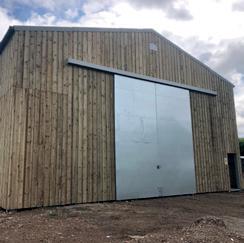







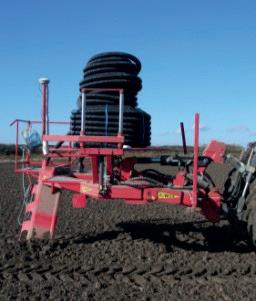

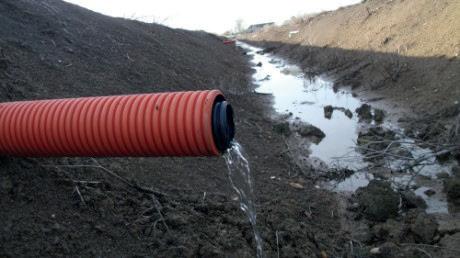
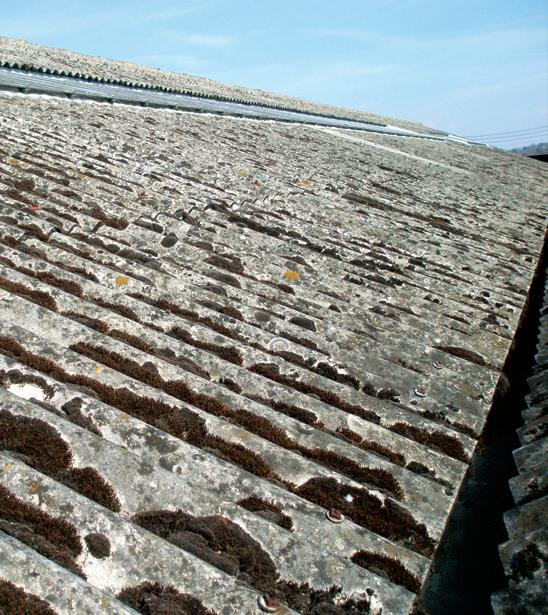
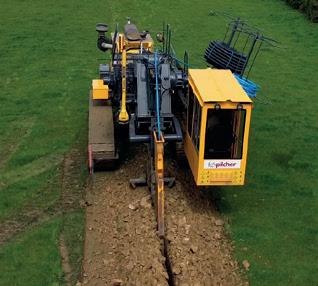
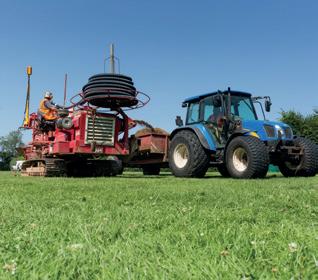
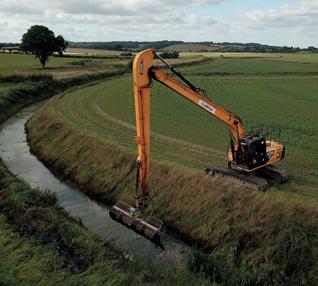
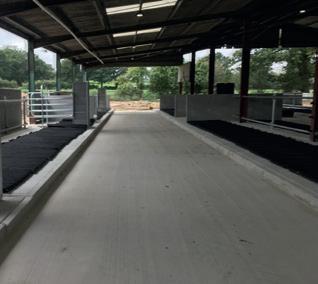

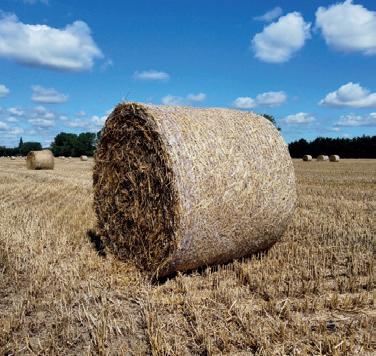
WWW.SOUTHEASTFARMER.NET | OCTOBER 2023 TO ADVERTISE CALL 01303 233883 CLASSIFIEDS To advertise in South East Farmer telephone 01303 233883 To advertise in South East Farmer telephone 01303 233883 CONTRACTORS FOR SALE Mobile: 07976 287836 Email: sales@shortlandstructures.com www.shortlandstructures.com • STEEL FRAMED BUILDINGS • CLADDING • ERECTING • • EXTENSIONS • ALTERATIONS • CONCRETE PANELS • ROLLER/SLIDING/PERSONNEL DOORS • SHORTLAND STRUCTURES LTD ● LAND DRAINAGE ● DITCHING ● POND WORK ● WATER SUPPLIES ● SEWAGE TREATMENT PLANTS ● GROUNDWORKS ● PLANT HIRE 360° EXCAVATORS FOR ESTIMATES & ENQUIRIES (01622) 890884 G & S BROWN Drainage Contractors Working with farmers since 1947 Email: info@brownsdrainage.co.uk www.brownsdrainage.co.uk SWA SW ATTWOOD & PARTNERS • FIELD MAPPING • DRAINAGE SURVEYING • DESIGN • DRAINAGE FOR FURTHER INFORMATION OR VISIT OUR WEBSITE TOM: 01795 880441 or 07943 192383 EMAIL: james@swattwood.com S W ATTWOOD & PARTNERS LAND DRAINAGE james@swattwood.com PLEASE CONTACT US OR VISIT OUR www.attwoodfarms.com GRAIN STORAGE & LAND DRAINAGE PLANT HIRE INERT TIPPING FROM £220 PER ACRE FIELD MAPPING DRAINAGE SURVEYING DESIGN DRAINAGE LAND DRAINAGE www.swjfattwood.com S W ATTWOOD & PARTNERS LAND DRAINAGE 01795 880441 EMAIL: james@swattwood.com FOR FURTHER INFORMATION PLEASE CONTACT US OR VISIT OUR www.attwoodfarms.com GRAIN STORAGE & TESTING LAND DRAINAGE PLANT HIRE INERT TIPPING CLAY SALES FROM £220 PER ACRE DRAINAGE SURVEYING S W ATTWOOD & PARTNERS LAND DRAINAGE PHONE: 01795 880441 EMAIL: james@swattwood.com FOR FURTHER INFORMATION PLEASE CONTACT US OR VISIT OUR WEBSITE: www.attwoodfarms.com GRAIN STORAGE & TESTING LAND DRAINAGE PLANT HIRE INERT TIPPING CLAY SALES FROM £220 PER ACRE DRAINAGE SURVEYING CONSTRUCTION CONTRACTORS FREEPHONE: 01233 659129 from BT land-line charlie.woodger@btinternet.com Asbestos roof sheeting removals Asbestos encapsulation Asbestos fire damage, clearance & re-instatement works Asbestos clearance & de-contamination Asbestos disposals by licenced registered company New metal roofs installed over old asbestos roofs Roof light & sheet repairs Gutter repairs Gutter replacements & re-lining Strip & refurbishment works Change of use projects Demolition & Groundworks CALL TO DISCUSS YOUR PROJECT! Professional Services to the Agricultural, Industrial & Equestrian Sectors ALL RISKS LTD ASBESTOS ROOF REMOVALS LAND DRAINAGE, EARTHWORKS, GROUNDWORKS & CONSTRUCTION FULL LAND DRAINAGE SERVICE Sportsfields, amenity and irrigation systems using Mastenbroek trenchers PONDS, LAKES & RESERVOIRS Construction and maintenance GROUNDWORKS & CONSTRUCTION Primary excavations, aggregate sub-base, agricultural construction and concreting ENVIRONMENTAL HABITATS Water course maintenance and improvement works For all enquiries call 01233 860404 or 07770 867625 (Harvey) HAY FOR SALE • Large round bales £30 each • Large rectangular bales (limited quantity left) £38 each • Small conventional bales £4.50 each From clean grass, smells lovely! Free local delivery. Near Guildford, Surrey Please phone/text Oliver on 07415 749999 4FT ROUND WHEAT STRAW BALES £20 +VAT each. Discounts for bulk orders Located in West Kent ■ churchfarmryarsh@gmail.com ■ 07921 576141
Cleft




Fencing
Fencing













Straining
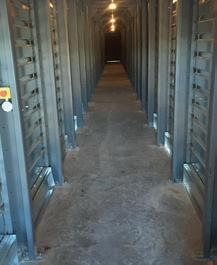










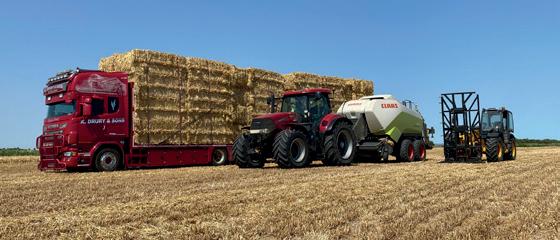


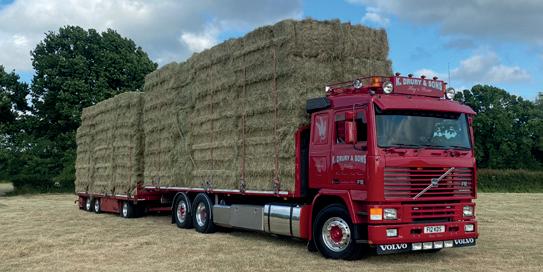
Chestnut


OCTOBER 2023 | WWW.SOUTHEASTFARMER.NET 66 CLASSIFIEDS HAULIERS CONTAINERS FENCING HAY & STRAW IN STOCK | ROUND & BIG SQUARE BALES 07860 728204 Hay & Straw Merchant | Machinery Haulage Find us on Facebook FENCING CROP DRYING CWP fencing
07985 298221 colin@cwpfencing.co.uk
Sweet Chestnut Wanted Cleft post and rail
Tel:
Standing
field gates
stakes
posts
fencing
07985298221 colin@cwpfencing.co.uk
Sweet Chestnut Wanted Cleft post and rail
field gates
stakes
posts
fencing Tel: 07985298221 colin@cwpfencing.co.uk
Sweet Chestnut Wanted Cleft post and rail
field gates
Tel:
Standing
Cleft
Fencing
Straining
Chestnut
Standing
Cleft
stakes
posts
fencing Redhill Farm Services: Fencing Division ALL TYPES OF FENCING & GATES Supplied and erected & Repairs Tel: 01737 821220 Mob: 07768 931891 Email: redhillfarmservices@gmail.com STORAGE TANKS Visit www.smdd.co.uk or call 01594 833308 Buy from stock. Visit us to collect or same day dispatch with nationwide delivery. New and recycled IBC tanks. Plastic and steel drums. Water tanks & plenty of fittings. Smiths of the Forest of Dean The Tank and Drum Experts Visit www.smdd.co.uk or call 01594 833308 Buy from stock. Visit us to collect or same day dispatch with nationwide delivery. New and recycled IBC tanks. Plastic and steel drums. Water tanks & plenty of fittings. Smiths of the Forest of Dean The Tank and Drum Experts Container Sales & Rental New & Used Guaranteed Wind/Watertight equipment 10ft, 20ft & 40ft Equipment available Crawley – viewing by appointment only Freight Container Services (FCS) 01403 268723 • 01636 616335 • 07831 142 401 sales@fcs-uk.co.uk www.freightcontainerservices.com Specialists in agricultural, deer and equestrian fencing and gates T: 01622 831 781 | M: 07710 179 600 enquiries@woodchurchfencing.co.uk | www.woodchurchfencing.co.uk IRRIGATION PHILIP JUNIPER Fencing Services Covering the South East Tel: (01403) 700509 Mobile: 07836 219344 www.philipjuniper.co.uk Specialists in Stock, Deer and Equestrian Fencing Enquiries FieldWaterInstallations@gmail.com 01580 891728 or 07768 626131 www.fwi-trenching.co.uk Why dig when we can trench it? Trencher with operator for installing: • Irrigation and water pipes • Utility cables and ducting • Repairs to water pipes • Impact moling Est 1993 www.pellcroft.com | sales@pellcroft.com | 01526 342466 PELLCROFT Manufacturers of centrifugal, low volume and portable fans, air tunnels, drive over oors, grain stirrers and gas burners
Straining
Chestnut
COMPLETE OUR CROSSWORD TO WIN
Two bottles of Monks Delight, two bottles of Special Mead and one bottle of Special Reserve














ACROSS
1 Evaluation (9)
5 To make happier (5)
8 Lacking depth of flavour (7)


9 Metamorphic rock used as construction material (5)
11 Energy and style (4)
12 Mite infestation of skin (7)
13 Modify, separate, tell apart (13)
15 A tool used for cutting (6)
17 Grain (6)

20 Village in Dorset (7)
23 Leave out (4)
24 Frequent, recurring constantly (9)
25 Man made fibre (9)
26 Jot down (4)
DOWN
1 Able to move quickly (5)

2 A type of food made from wheat (5)
3 Responsible for the death of Cleopatra (3)
4 Cocktail containing brandy (7)
6 Evidence of moths (5)
7 Utmost, maximum, greatest (7)
10 Uproar, street fight (4)
13 Not evergreen (9)
14 ---- of Grain [on the Hoo Peninsula] (4)
16 Hot drink (3)
17 Lesson, meaning, import (5)
18 Tree (3)
19 Hit (6)
21 Item of clothing (5)
22 Pale purple (5)
23 An aromatic flavourful vegetable (5)







PRIZE ANAGRAM: Apple variety (8,6)


Email your replies with your name, address and phone number to sef.ed@kelsey.co.uk

Correct entries will be entered into a draw which will take place on 24 October. The winner will be announced in the November edition.
For a winter warmer we are offering readers the chance to win two bottles of Monks Delight, two bottles of Special Mead and one bottle of Special Reserve. For more information about the vineyards, please visit www.biddendenvineyards.com or call 01580 291726.













LAST MONTH’S ANSWERS:
Correct answer: Eye Spot


LAST MONTH’S WINNER: Jack Ayles from Etchingham, East Sussx

WWW.SOUTHEASTFARMER.NET | OCTOBER 2023 67 TO ADVERTISE CALL 01303 233883 ®
VI NE YA R DS
VI NE YA R DS
CROSSWORD
To enter, simply unscramble the anagram (8,6) using the green squares.
*Subject to availability
1 2 3 4 5 6 7 8 9 10 11 12 13 14 15 16 17 18 19 20 21 22 23 24 25 26 1 2 3 4 5 6 7 8 9 10 11 12 13 14 15 16 17 18 19 20 21 22 23 24 25 26 R O M A N E S C O C R U S H E O E H A U R I V E R M E O N A D O P T U I O L F I P N E E M O T H E L L O O E E R F A R M E R S M A R K E T R A H E I G H T R U N N E R I I E T M C G N A U G H T Y B U S H H M R I R O S T I P U L A T E O U E S N O G P R E T E N D I N G M O T H
Crossword by Rebecca Farmer, Broadstairs, Kent
Specialists in controlled atmosphere stores

Rapid chilling systems for soft fruit and fresh produce

Secondary cooling systems with energy efficient defrosting using air source heat pump technology
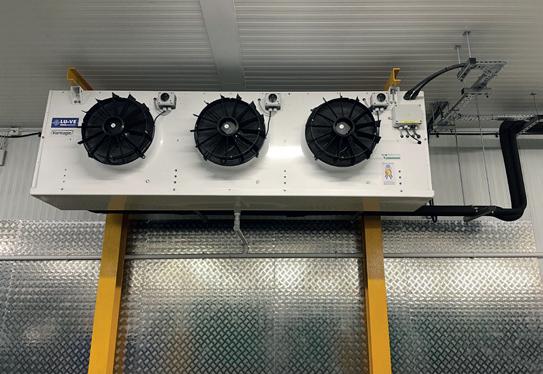
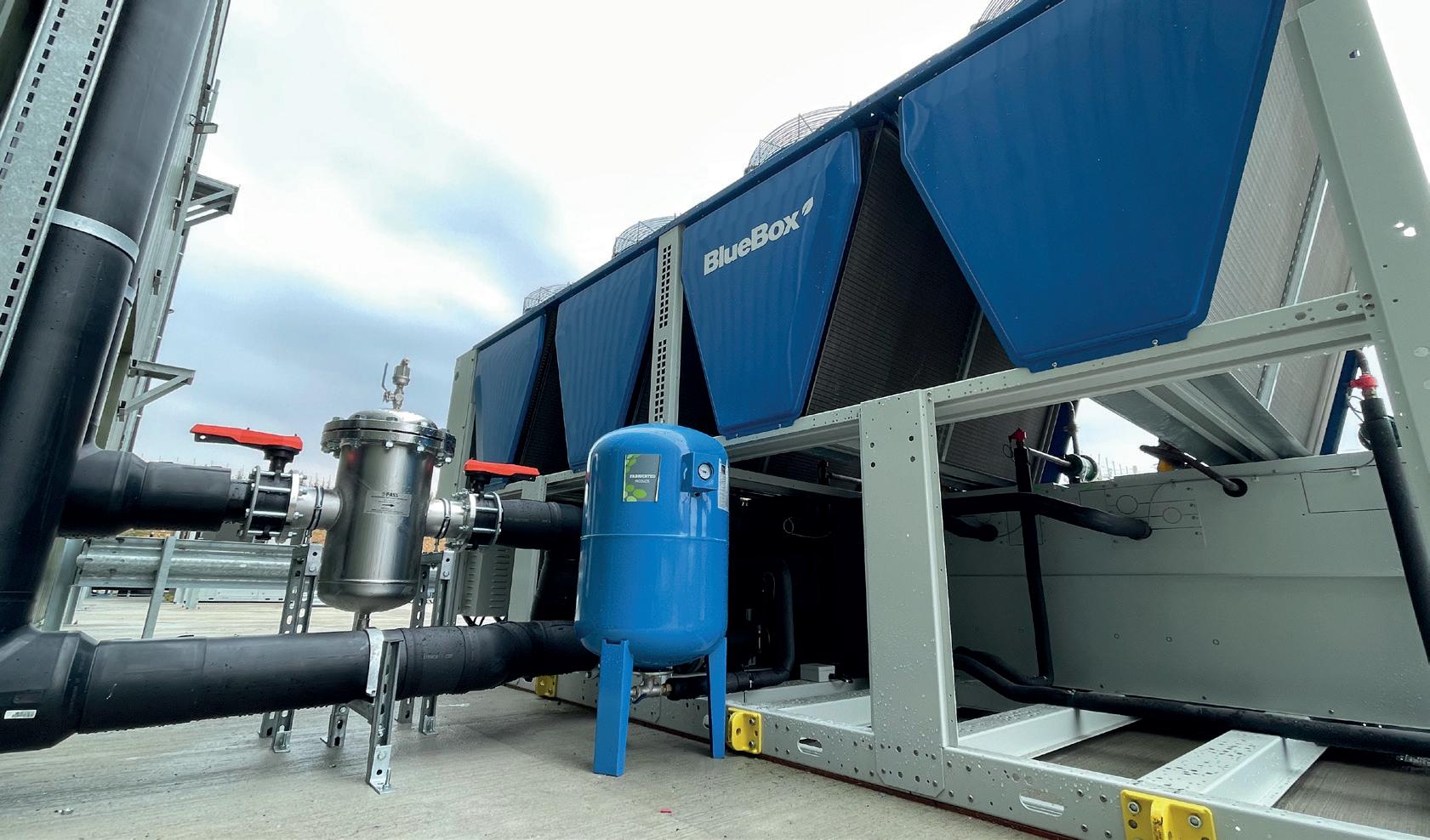

Retrofitting of existing high cost electrical defrost heaters with air source heat pumps

Electrical engineers and contracting
Refrigeration and Electrical service, maintenance, and breakdown cover

Testing and certification to NICEIC Mains power solutions for distribution and installations
Temperature controlled wine storage solutions using DX or Secondary refrigeration with heating options
Qualified to install EV chargers
Refrigeration gas leak detection systems
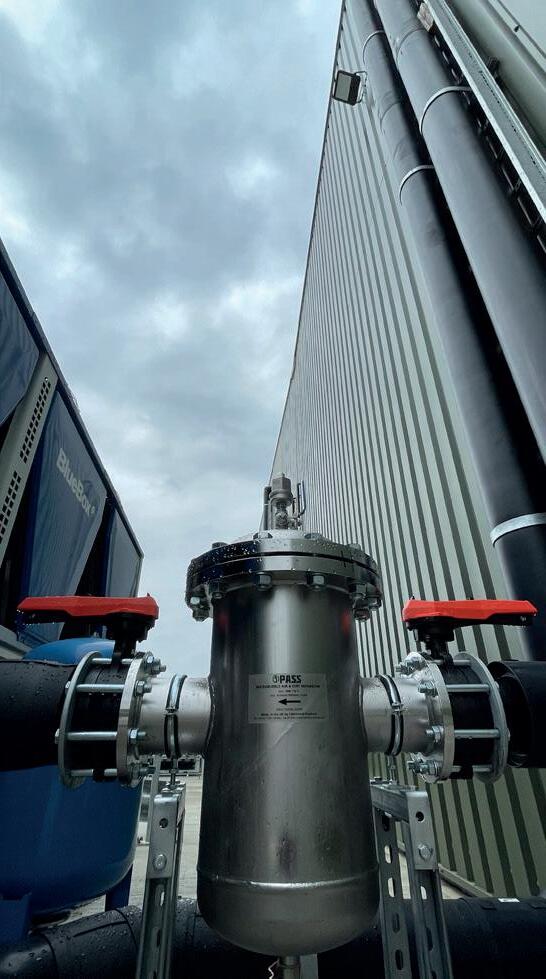
F-gas compliance and record keeping
Refrigeration system controls with remote monitoring

TEL: 01622 861989 www.orchardcooling.co.uk | info@orchardcooling.co.uk Rumwood Green Farm, Sutton Road, Langley, Maidstone, Kent ME17 3ND “Ecologicool” RefrigerationSystems
Dave Reynolds Director 07418 005959 Sean Macoy Service Director 07872 557934 Rob Burbridge Director 07858 195633 Paul Kennett F.Inst.R Refrigeration systems 07903 462933 Heather Borland Admin 01622 861989
Excellence in Electrotechnical & Engineering Services
Knowledge where it counts is critical to providing the right cooling system to ensure produce is kept in excellent condition during storage.





































































































 By
By














































































































































































































































































































































































































































































































 Vanessa McNaughton
Vanessa McNaughton



































































































































































































